Is it Possible to Get My PhD After My MBA?

In academia, numerous accomplishments can be achieved. You can earn a dual degree and have expertise in multiple fields, or further your career potential by going back to school . But what about progressing from an MBA to a PhD?
In regards to higher education, many consider earning a PhD, or doctorate degree, the pinnacle of success. Usually, due to passion for a particular industry or subject, a PhD candidate will spend years of rigorous research to unpack its intricacies and become a leading expert in the field. At the end of their studies, they are able to finally see their work come to fruition when they receive their doctorate and join alongside other scholars. However, is it typical for an MBA graduate to move onto pursuing their PhD? And is there a specific purpose? Are there different types of PhD programs? What is the difference between a PhD and DBA?
To answer the budding question: yes, you can pursue your PhD after earning your MBA, and choosing to earn a doctorate is entirely up to you and your aspirations. To help you better understand if getting a PhD is the right choice, we look at the path an MBA graduate can take to earn their PhD, one of the higher purposes of a doctorate, and the different types of academic programs.

What is a PhD, and What is it Used For?
By definition, a PhD is a Doctor of Philosophy in a particular discipline, which is why it's also referred to as a doctorate. This focus is typically for individuals highly passionate about a specific subject matter, driven by the pursuit to understand it better through rigorous research. A majority of students seeking their PhD are eager researchers, although there are always exceptions, and each carries out years of highly intensive research to conclude their original thesis and earn their doctorate.
In terms of translating your education into a career, a doctorate can be used in a plethora of fields, especially if one’s thesis is around a wider subject matter and can be a discipline applied to various industries (take organizational development, for example). For those who are passionate about a career in research, a doctoral degree is a perfect fit. Possibly the most popular field for those with a doctorate is a fruitful career in academia, teaching their subject matter to others interested in the same area. Many graduates become faculty members at business schools upon completing their PhD and provide their expertise to their students. Regardless of which industry you choose, you can be assured that a PhD will provide you with numerous opportunities.
How Long Does it Take to Progress from an MBA to PhD?
The timeframe for earning your PhD can vary depending on program and location. Many countries have varying timelines of how long the completion of a doctoral program will take. In the United States, the average is around 4-5 years of completion after receiving your Master of Business Administration.
Do You Need an MBA to Get a PhD?
To be accepted into a doctoral program, you must have a master’s degree. It does not have to be a Master of Business Administration, but it does need to be a master’s of some form. Depending on your area of specialization, it could be advantageous to earn your MBA in pursuit of a PhD if you are planning to embark on a career in business upon completion of your doctorate. Additionally, one important aspect to consider is the program itself. It is important to look into a program’s requirements before applying to meet the eligibility criteria.
The Difference Between a DBA and a PhD
For those specifically interested in a career in business, a Doctor of Business Administration (DBA) is a highly beneficial doctoral program. A DBA focuses on a broader spectrum of business disciplines, dedicating research toward multiple corporate facets, and practical implementation. On the contrary, a PhD narrows into a specific area of discipline and research, emphasizing theory, and it’s potential implications. While both are heavily centered around research and implementation, a DBA sets business executives and leaders on a path to discover new possibilities for their organizations and businesses. In a way, it allows established business professionals to “trailblaze” the way for new and innovative ideas that can disrupt the market and set a precedent for the future of business.
Get Your MBA or DBA at Pepperdine Graziadio Business School
At Pepperdine Graziadio, we proudly offer degrees to accommodate business professionals at any stage of their lives and careers. Our full and part-time MBA programs are designed to prepare candidates for a successful career in values-based business leadership. All of our MBA programs offer a personalized learning approach executed by our world-class faculty. Each program is characterized by its top-ranked business curriculum that can be coupled with an academic concentration.
Our Executive Doctor of Business Administration (DBA) program has been carefully designed for the tenured business leader looking to drive groundbreaking innovations. This rigorous program allows candidates to gain in-depth knowledge and finetune their expertise through applied research. Also, executives enjoy learning alongside changemakers in various industries and participating in exclusive opportunities available only to DBA candidates.
Learn more about which programs fit your career aspirations and academic interests.
Learn more about how to achieve your career goals with a degree from Pepperdine Graziadio Business School.
Help Us Shape the Content You Love:
Blog Topic Feedback Survey.
Pick the topics you love from the dropdown menus below.
Select the topic that most interests you.
Additional Suggested Topic
- Student Life
- Graduate Programs
- Center for Applied Research
- Master's Degree
- Faculty Research
- Sustainability
- Entrepreneurship
- Talent Management
- Part-Time MBA
Copyright © 2024 Pepperdine University
- Privacy Policy
- GDPR Privacy Notice
- Clery Notice
- Terms of Use
- Title IX
- Web Accessibility
- SUGGESTED TOPICS
- The Magazine
- Newsletters
- Managing Yourself
- Managing Teams
- Work-life Balance
- The Big Idea
- Data & Visuals
- Reading Lists
- Case Selections
- HBR Learning
- Topic Feeds
- Account Settings
- Email Preferences
Why a Doctorate in Business Administration Is Becoming More Valuable
Sponsor content from upGrad.

At the turn of the 20th century, the world was industrializing at a rapid pace. Businesses were growing larger and more complex, with more employees working in more diversified divisions spread across more geographical boundaries.
As a result, demand grew for people who had special training in managing the general operations of a business, which led to the creation and proliferation of the Master of Business Administration (MBA) degree.
More than 100 years later, MBAs have become a commodity that no longer serve organizations’ core needs.
In today’s age of data and information, knowledge has become the most valuable resource. Companies don’t necessarily need more general managers who can assess broad patterns across multiple industries—they need people with deep expertise in specific domains who can analyze data and generate unique insights that lead to better business decisions.
That’s why Doctorate in Business Administration (DBA) holders are becoming increasingly valuable in the modern workplace.
DBA is a professional degree representing the highest level of qualification in management. In contrast to an MBA, it takes students on a different path toward acquiring and using business knowledge.
For an MBA, students spend two years taking a broad range of practical courses to learn about several pillars of business—such as accounting, finance, marketing, leadership, operations, strategy, and ethics—to help them become effective leaders across many industries.
By contrast, DBAs spend up to two years studying academic literature across several domains and up to two additional years designing and executing an original research project: a dissertation focused on one domain. The primary goal of a DBA is to produce scholarly individuals who have deep expertise in a field of management.
When seeking executive-level positions, DBAs’ “Dr.” titles are likely to help them stand out from their peers. DBAs can also pursue high-level positions in areas such as consulting by becoming subject-matter experts—or maintain ties with academia as full-time or adjunct professors.
DBAs’ training gives them diverse career options. The academic literature they read gives them expertise in understanding management theories that can help them analyze real-world situations and differentiate the signal from the noise. A DBA specializing in innovation can assess whether newcomers to a market pose a credible threat as a disruptive innovation to an existing company.
Students then learn advanced scientific techniques in quantitative and/or qualitative methodologies, which trains them in analyzing data to generate valid inferences that their organizations can use for decision-making purposes. Rather than relying on gut feel and graphs, DBAs can use powerful techniques such as sampling data to reduce bias, using statistical regressions to identify the strongest factors that influence an outcome, or designing an experiment to gain 100% certainty over the causal relationship between variables.
Finally, DBAs combine their business knowledge with analytical skills to design and execute original research studies, making them the world’s leading experts in particular domains.
DBAs also stand out because they represent only 2% of all people who hold higher degrees in business. In 2021, more than 250,000 students graduated with MBAs or specialist degrees in business; only 5,000 graduated with doctorates.
While a DBA may represent an attractive option that can be highly valuable to organizations today, they are not necessarily recommended for everyone.
To help you determine whether a DBA is right for you, the most important question to ask yourself centers on whether you’re satisfied with the tools and frameworks you use to analyze data and information to make important business decisions. If you’ve ever found yourself wondering where these frameworks come from—or whether there might be a better way to make decisions—consider applying to a DBA program. These programs are designed to channel deep intellectual interests and passions toward producing business knowledge that’s both theoretically novel and practically relevant.
DBA training may help you develop deeper knowledge than an MBA program will while opening doors to more ambitious careers in industry or academia. While MBA degrees are designed to meet the needs of 20th-century businesses, DBAs can help meet the needs of organizations today—and well into the future.
Learn more about how earning a DBA can help you step up your career.
- Harvard Business School →
- Doctoral Programs →
PhD Programs
- Accounting & Management
- Business Economics
- Health Policy (Management)
- Organizational Behavior
- Technology & Operations Management
Students in our PhD programs are encouraged from day one to think of this experience as their first job in business academia—a training ground for a challenging and rewarding career generating rigorous, relevant research that influences practice.
Our doctoral students work with faculty and access resources throughout HBS and Harvard University. The PhD program curriculum requires coursework at HBS and other Harvard discipline departments, and with HBS and Harvard faculty on advisory committees. Faculty throughout Harvard guide the programs through their participation on advisory committees.
How do I know which program is right for me?
There are many paths, but we are one HBS. Our PhD students draw on diverse personal and professional backgrounds to pursue an ever-expanding range of research topics. Explore more here about each program’s requirements & curriculum, read student profiles for each discipline as well as student research , and placement information.
The PhD in Business Administration grounds students in the disciplinary theories and research methods that form the foundation of an academic career. Jointly administered by HBS and GSAS, the program has five areas of study: Accounting and Management , Management , Marketing , Strategy , and Technology and Operations Management . All areas of study involve roughly two years of coursework culminating in a field exam. The remaining years of the program are spent conducting independent research, working on co-authored publications, and writing the dissertation. Students join these programs from a wide range of backgrounds, from consulting to engineering. Many applicants possess liberal arts degrees, as there is not a requirement to possess a business degree before joining the program
The PhD in Business Economics provides students the opportunity to study in both Harvard’s world-class Economics Department and Harvard Business School. Throughout the program, coursework includes exploration of microeconomic theory, macroeconomic theory, probability and statistics, and econometrics. While some students join the Business Economics program directly from undergraduate or masters programs, others have worked in economic consulting firms or as research assistants at universities or intergovernmental organizations.
The PhD program in Health Policy (Management) is rooted in data-driven research on the managerial, operational, and strategic issues facing a wide range of organizations. Coursework includes the study of microeconomic theory, management, research methods, and statistics. The backgrounds of students in this program are quite varied, with some coming from public health or the healthcare industry, while others arrive at the program with a background in disciplinary research
The PhD program in Organizational Behavior offers two tracks: either a micro or macro approach. In the micro track, students focus on the study of interpersonal relationships within organizations and the effects that groups have on individuals. Students in the macro track use sociological methods to examine organizations, groups, and markets as a whole, including topics such as the influence of individuals on organizational change, or the relationship between social missions and financial objectives. Jointly administered by HBS and GSAS, the program includes core disciplinary training in sociology or psychology, as well as additional coursework in organizational behavior.
Accounting & Management
Business economics , health policy (management) , management , marketing , organizational behavior , strategy , technology & operations management .
Smart. Open. Grounded. Inventive. Read our Ideas Made to Matter.
Which program is right for you?

Through intellectual rigor and experiential learning, this full-time, two-year MBA program develops leaders who make a difference in the world.
A rigorous, hands-on program that prepares adaptive problem solvers for premier finance careers.
A 12-month program focused on applying the tools of modern data science, optimization and machine learning to solve real-world business problems.
Earn your MBA and SM in engineering with this transformative two-year program.
Combine an international MBA with a deep dive into management science. A special opportunity for partner and affiliate schools only.
A doctoral program that produces outstanding scholars who are leading in their fields of research.
Bring a business perspective to your technical and quantitative expertise with a bachelor’s degree in management, business analytics, or finance.
A joint program for mid-career professionals that integrates engineering and systems thinking. Earn your master’s degree in engineering and management.
An interdisciplinary program that combines engineering, management, and design, leading to a master’s degree in engineering and management.
Executive Programs
A full-time MBA program for mid-career leaders eager to dedicate one year of discovery for a lifetime of impact.
This 20-month MBA program equips experienced executives to enhance their impact on their organizations and the world.
Non-degree programs for senior executives and high-potential managers.
A non-degree, customizable program for mid-career professionals.
PhD Program
Program overview.
Now Reading 1 of 4
Rigorous, discipline-based research is the hallmark of the MIT Sloan PhD Program. The program is committed to educating scholars who will lead in their fields of research—those with outstanding intellectual skills who will carry forward productive research on the complex organizational, financial, and technological issues that characterize an increasingly competitive and challenging business world.
Start here.
Learn more about the program, how to apply, and find answers to common questions.
Admissions Events
Check out our event schedule, and learn when you can chat with us in person or online.
Start Your Application
Visit this section to find important admissions deadlines, along with a link to our application.
Click here for answers to many of the most frequently asked questions.
PhD studies at MIT Sloan are intense and individual in nature, demanding a great deal of time, initiative, and discipline from every candidate. But the rewards of such rigor are tremendous: MIT Sloan PhD graduates go on to teach and conduct research at the world's most prestigious universities.
PhD Program curriculum at MIT Sloan is organized under the following three academic areas: Behavior & Policy Sciences; Economics, Finance & Accounting; and Management Science. Our nine research groups correspond with one of the academic areas, as noted below.
MIT Sloan PhD Research Groups
Behavioral & policy sciences.
Economic Sociology
Institute for Work & Employment Research
Organization Studies
Technological Innovation, Entrepreneurship & Strategic Management
Economics, Finance & Accounting
Accounting
Management Science
Information Technology
System Dynamics
Those interested in a PhD in Operations Research should visit the Operations Research Center .

PhD Program Structure
Additional information including coursework and thesis requirements.

MIT Sloan Predoctoral Opportunities
MIT Sloan is eager to provide a diverse group of talented students with early-career exposure to research techniques as well as support in considering research career paths.
Rising Scholars Conference
The fourth annual Rising Scholars Conference on October 25 and 26 gathers diverse PhD students from across the country to present their research.
Now Reading 2 of 4
The goal of the MIT Sloan PhD Program's admissions process is to select a small number of people who are most likely to successfully complete our rigorous and demanding program and then thrive in academic research careers. The admission selection process is highly competitive; we aim for a class size of nineteen students, admitted from a pool of hundreds of applicants.
What We Seek
- Outstanding intellectual ability
- Excellent academic records
- Previous work in disciplines related to the intended area of concentration
- Strong commitment to a career in research
MIT Sloan PhD Program Admissions Requirements Common Questions
Dates and Deadlines
Admissions for 2024 is closed. The next opportunity to apply will be for 2025 admission. The 2025 application will open in September 2024.
More information on program requirements and application components
Students in good academic standing in our program receive a funding package that includes tuition, medical insurance, and a fellowship stipend and/or TA/RA salary. We also provide a new laptop computer and a conference travel/research budget.
Funding Information
Throughout the year, we organize events that give you a chance to learn more about the program and determine if a PhD in Management is right for you.
PhD Program Events
July phd program overview.
During this webinar, you will hear from the PhD Program team and have the chance to ask questions about the application and admissions process.
August PhD Program Overview
Discover your doctoral path.
An event for prospective students with Boston-area management programs
September 12 PhD Program Overview
Complete PhD Admissions Event Calendar
Unlike formulaic approaches to training scholars, the PhD Program at MIT Sloan allows students to choose their own adventure and develop a unique scholarly identity. This can be daunting, but students are given a wide range of support along the way - most notably having access to world class faculty and coursework both at MIT and in the broader academic community around Boston.
Now Reading 3 of 4

Profiles of our current students
MIT Sloan produces top-notch PhDs in management. Immersed in MIT Sloan's distinctive culture, upcoming graduates are poised to innovate in management research and education.
Academic Job Market
Doctoral candidates on the current academic market
Academic Placements
Graduates of the MIT Sloan PhD Program are researching and teaching at top schools around the world.
view recent placements
MIT Sloan Experience
Now Reading 4 of 4
The PhD Program is integral to the research of MIT Sloan's world-class faculty. With a reputation as risk-takers who are unafraid to embrace the unconventional, they are engaged in exciting disciplinary and interdisciplinary research that often includes PhD students as key team members.
Research centers across MIT Sloan and MIT provide a rich setting for collaboration and exploration. In addition to exposure to the faculty, PhD students also learn from one another in a creative, supportive research community.
Throughout MIT Sloan's history, our professors have devised theories and fields of study that have had a profound impact on management theory and practice.
From Douglas McGregor's Theory X/Theory Y distinction to Nobel-recognized breakthroughs in finance by Franco Modigliani and in option pricing by Robert Merton and Myron Scholes, MIT Sloan's faculty have been unmatched innovators.
This legacy of innovative thinking and dedication to research impacts every faculty member and filters down to the students who work beside them.
Faculty Links
- Accounting Faculty
- Economic Sociology Faculty
- Finance Faculty
- Information Technology Faculty
- Institute for Work and Employment Research (IWER) Faculty
- Marketing Faculty
- Organization Studies Faculty
- System Dynamics Faculty
- Technological Innovation, Entrepreneurship, and Strategic Management (TIES) Faculty
Student Research
“MIT Sloan PhD training is a transformative experience. The heart of the process is the student’s transition from being a consumer of knowledge to being a producer of knowledge. This involves learning to ask precise, tractable questions and addressing them with creativity and rigor. Hard work is required, but the reward is the incomparable exhilaration one feels from having solved a puzzle that had bedeviled the sharpest minds in the world!” -Ezra Zuckerman Sivan Alvin J. Siteman (1948) Professor of Entrepreneurship
Sample Dissertation Abstracts - These sample Dissertation Abstracts provide examples of the work that our students have chosen to study while in the MIT Sloan PhD Program.
We believe that our doctoral program is the heart of MIT Sloan's research community and that it develops some of the best management researchers in the world. At our annual Doctoral Research Forum, we celebrate the great research that our doctoral students do, and the research community that supports that development process.
The videos of their presentations below showcase the work of our students and will give you insight into the topics they choose to research in the program.
Attention To Retention: The Informativeness of Insiders’ Decision to Retain Shares
2024 PhD Doctoral Research Forum Winner - Gabriel Voelcker
Watch more MIT Sloan PhD Program Doctoral Forum Videos

Keep Exploring
Ask a question or register your interest
Faculty Directory
Meet our faculty.

PhD in Management Program
A phd in management: where business research and education intersect.
Become an industry thought leader while preparing tomorrow’s business leaders.
Our fully funded PhD in Management is designed for ambitious students and professionals interested in a career in university teaching and research.
This residential program, based at the Samuel Curtis Johnson Graduate School of Management in Ithaca, NY, combines Ivy League rigor and real-world relevance to prepare you for successful careers in academia.

Why Get a PhD in Management?
With a strong focus on management science and applied research, this doctoral degree is ideal for someone looking to teach at the university level and contribute to the greater body of industry knowledge. Pursuing a PhD in Management is also an ideal next step for executives and senior managers who want to make a transition to academia or enhance their research skills for a successful consulting career.
Fully Funded, Highly Flexible: What Makes Cornell’s Management PhD Different?
As you explore PhD programs’ degree requirements, faculty engagement, and campus experience, Cornell stands alone.
In Cornell’s highly flexible program, you’ll choose a specific area of study and build your own dissertation committee. Our program faculty are genuinely interested and invested in your intellectual development. In this small and highly selective program, you will get to know the faculty and your peers well.
The SC Johnson Graduate School of Management is home to leading research centers and a high-impact academic journal; these open you up to unique learning and mentorship opportunities.
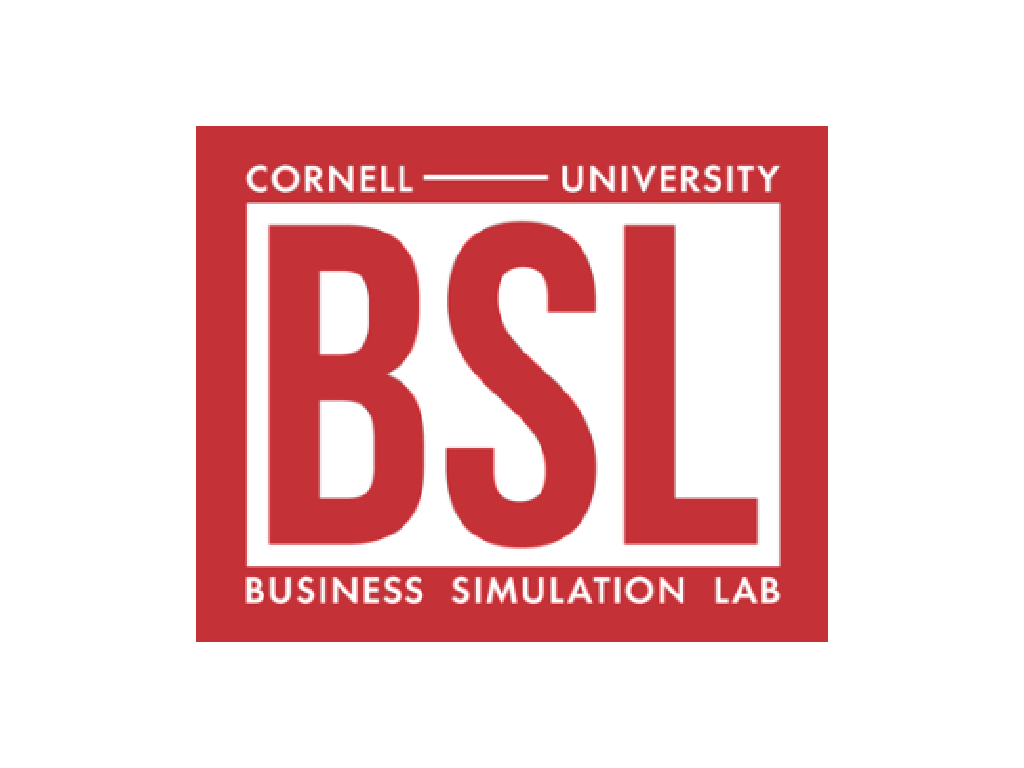
Business Simulation Lab
The Debra Paget and Jeffrey Berg Business Simulation Lab facilitates in-person and online behavioral research related to decision-making and problem-solving.
Discover More About BSL
Our Three-Pronged Approach to a PhD in Management
The Johnson School’s doctoral degree in management combines the best of theory and practice, building on a three-pronged foundation:

Hands-on Experience
Develop your research and analytical skills. You’ll work with classmates to examine existing literature and theories for class deliverables, which will often include your own original research.

Customizable Curriculum
Design your own academic pathway. You’ll choose one of six primary areas of study and create your own dissertation committee.

University-Wide Coursework
Draw on the expertise from across Cornell. You’ll get to select graduate-level courses from schools and colleges devoted to law , hospitality , engineering , labor relations , and other fields.
At a Glance: Cornell’s Fully Funded PhD in Management
The fully residential, fully funded PhD in Management program includes a tuition waiver and a stipend for living expenses. Here’s a quick overview of what to expect:

Degree Awarded
PhD in Management

Program Location
Ithaca, NY, with options in New York City

Program Format
Foundational coursework, original research, and six potential areas of study

Hear from Our Community
“PhD is a marathon, not a sprint, and collaborating with great people is paramount. At Cornell, I’ve found a place where amazing people come together, supporting my research and personal growth. Choosing Cornell means joining a community that knows how important it is to work with exceptional people to excel in the program.” – Elina Hur PhD ’23
Customize Your Path: Our Areas of Study
When you apply to the Johnson School’s PhD in Management, you will select a primary area of study. Choosing a concentration allows you to gain specialized skills and knowledge while growing a portfolio of original research.

Examine the role of accounting information in firms and financial markets. PhD-level research at Cornell explores topics such as how firms report information to investors, how accounting information is used to manage firms, and the nature of auditing.
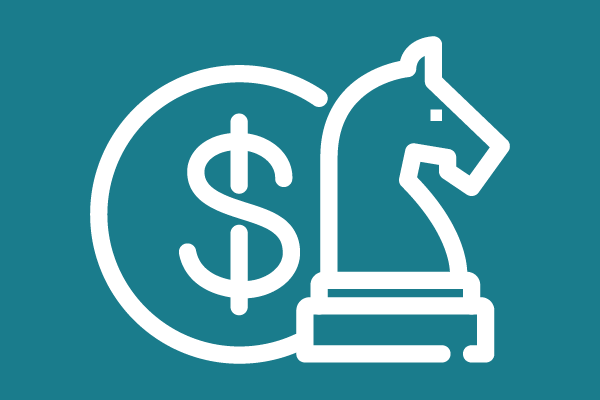
Strategy & Business Economics
Use modern tools and methodologies to gain a better understanding of the world. PhD students in this area explore many aspects of economics including industrial, behavioral, labor, and organizational.
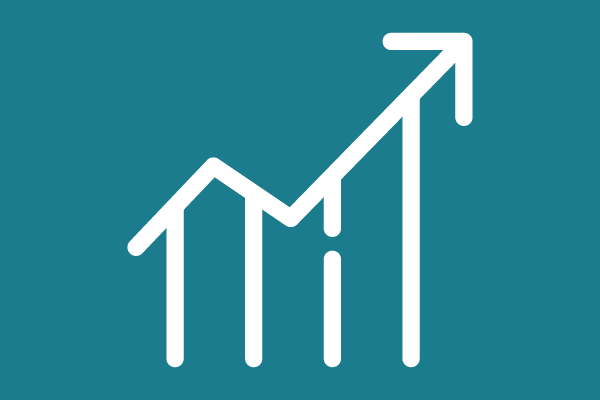
Dive deep into the financial structure and issues of organizations. Your research might look at how conflicts of interest affect corporate policy, how investor psychology affects asset pricing, or how to detect price bubbles.

Learn how theories from operations research, economics, psychology, and sociology intersect to inform corporate and consumer decisions. Your PhD studies will explore both quantitative and behavioral perspectives of marketing.

Management & Organizations
Prepare for a research-focused career in academia or industry. This versatile concentration develops skilled, innovative, analytical researchers through a broad curriculum and close faculty collaboration.

Operations, Technology, & Information Management
Develop the technical skills and behavioral analysis knowledge you need to address high-impact managerial decisions. This focus area also offers an option to complete coursework at Cornell Tech in New York City.

Idea Generation to Publication: A Career in Teaching and Research
The majority of our PhD in Management students pursue careers in academia. After graduation, many land tenure-track teaching positions at top-tier business schools and continue to advance knowledge through original research. Johnson School PhD students often field multiple offers and see starting salaries range from $150,000 to $250,000.
Finding Your Place at Cornell: Meet Our Current PhDs
Students from around the United States and across the globe arrive at the Johnson School to earn their PhD in Management —and their diverse research interests, educational backgrounds, and professional experiences make for a vibrant, enriching learning environment. MEET CURRENT PHD STUDENTS
Research and Placements: Making an Impact in the Management Field
After earning the PhD in Management, our alumni go on to teach and inspire future leaders at top-tier institutions. Not only do they teach and conduct research alongside some of the most brilliant minds in business, but they also advance the field through publishing in leading journals and presenting their work at industry conferences.
Recent PhD in Management Placements
- Piyush Anand, PhD ’21, assistant professor of marketing, Jones Graduate School of Business, Rice University
- Guarav Kankanhalli, PhD ’20, assistant professor, Joseph M. Katz Graduate School of Business, University of Pittsburgh
- Eunjee Kim, PhD ’21, assistant professor, Mays Business School, Texas A&M University
- Sarah Lim, PhD ’21, assistant professor, Gies College of Business, University of Illinois Urbana-Champaign
- Xuege Lu, PhD ’22, assistant professor, Carlson School of Management, University of Minnesota
- Subrina Shen, PhD ’21, assistant professor, McCombs School of Business, University of Texas at Austin
Recent Research Publications
- “ Do Real Estate Values Boost Corporate Borrowing? Evidence from Contract-Level Data ” in the Journal of Financial Economics (2022) — Gaurav Kankanhalli, PhD ’20, with Murillo Campello, Robert A. Connolly, and Eva Steiner
- “ Converging Tides Lift All Boats: Consensus in Evaluation Criteria Boosts Investments in Firms in Nascent Technology Sectors ” in Organization Science (2021) — Xirong (Subrina) Shen, PhD ’21, with Huisi (Jessica) Li, PhD ’20, and Pamela S. Tolbert
- “ Initial and Longer-Term Change in Unit-Level Turnover Following Leader Succession: Contingent Effects of Outgoing and Incoming Leader Characteristics ” in Organization Science (2020)— Huisi (Jessica) Li, PhD ’20, with John Hausknecht and Lisa Dragoni
“ Does Regulatory Jurisdiction Affect the Quality of Investment-Adviser Regulation? ” in American Economic Review (2019) — Alan Kwan, PhD ’17, with Ben Charoenwong and Tarik Umar
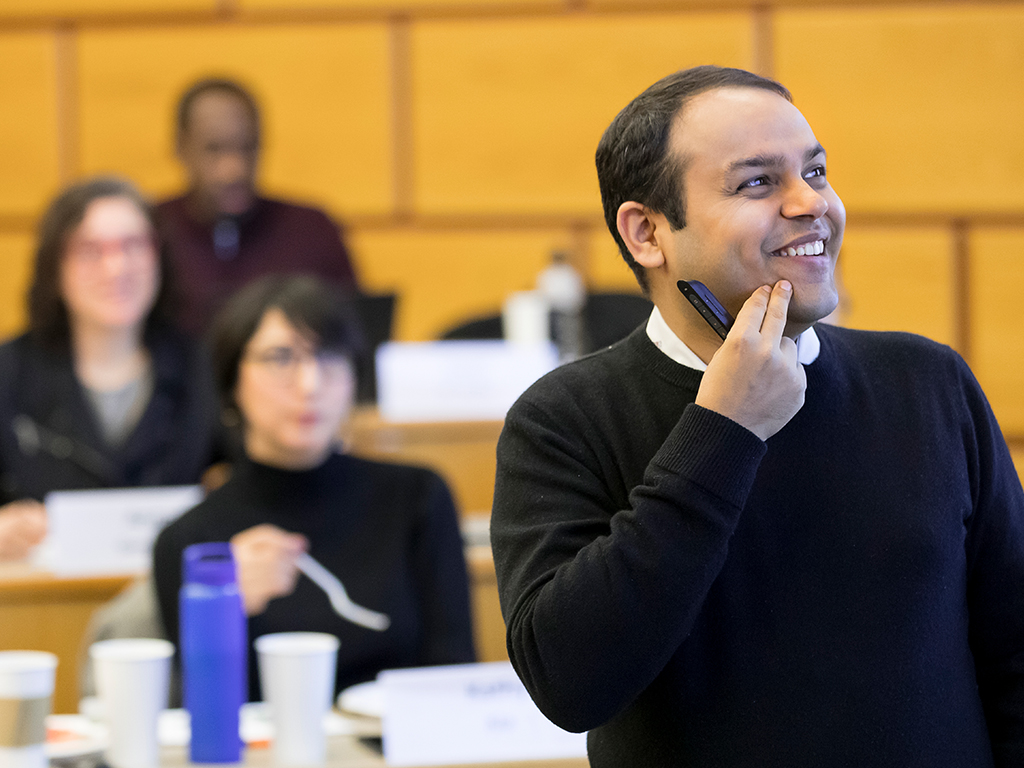
Our Faculty: Accomplished Researchers, Dedicated Teachers
When you join the PhD in Management program at the Johnson School, you’ll be part of a learning community comprising more than 100 accomplished academics and thought leaders.
Not only will you take courses with renowned professors from across the Cornell SC Johnson College of Business, but you also will have the opportunity to build your own faculty committee—a group that will become instrumental as you select your dissertation topic and embark on your original research.
Faculty Spotlight: Learn from Leading Thought Leaders
Throughout the PhD program—from foundational coursework to your dissertation—you’ll work closely with dedicated teacher-scholars like these:
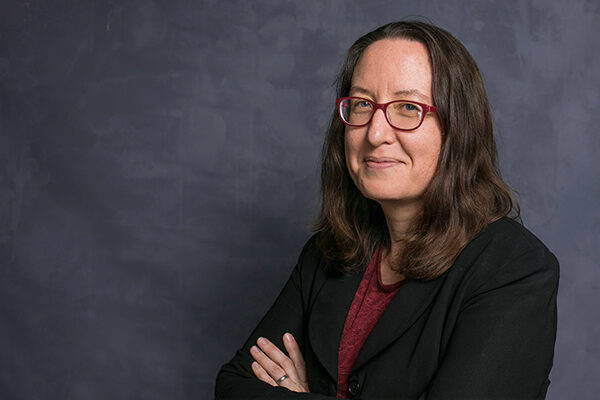
Kristina Rennekamp
Dr. Rennekamp’s research focuses on financial accounting from a behavioral perspective. She’s widely published, with work appearing in leading academic journals such as The Accounting Review , Contemporary Accounting Research , and The Journal of Financial Reporting .
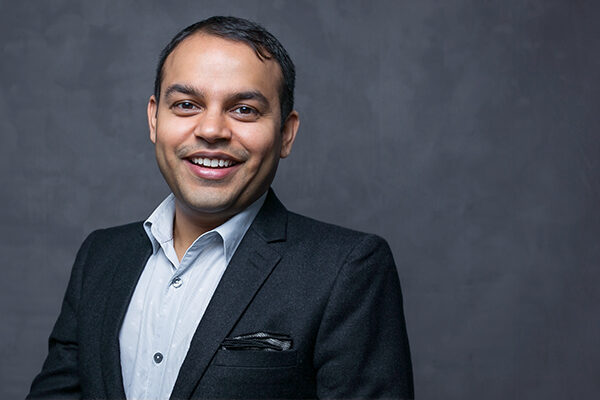
Karan Girotra
Dr. Girotra studies the digital transformation of companies, whether it’s looking at emerging tools and practices or exploring new business models. He’s frequently interviewed in an array of mainstream business media outlets, including Bloomberg BusinessWeek , Fortune , and Forbes .

Kaitlin Woolley
Dr. Woolley studies the psychological processes behind consumer motivation. She’s an award-winning educator and researcher with work published in academic journals and national media outlets including the Journal of Consumer Research , Journal of Marketing Research , and The Wall Street Journal .
EXPLORE JOHNSON SCHOOL FACULTY
What You’ll Learn: Curriculum Overview
As you pursue your PhD in business management , you’ll begin with a set of foundation courses and progress into advanced coursework in your area of interest. Through it all, your faculty committee will help make sure you’re on the right track.

Foundational Management Coursework
Early in your doctoral program, you will complete foundational coursework in management and other fields. Many of these will focus on the research process and prepare you for your dissertation.

Advanced Coursework in Your Concentration Area
As you progress in the PhD in Management program, you’ll take electives and advanced courses that align with your research area of interest; these classes can be in the Johnson School and across Cornell.

Your Dissertation: Creating Original Research
During the final part of the program, you begin work on your dissertation—the culmination of your original research. You choose the topic of research in conjunction with your committee.
VIEW PROGRAM SPECIFICS
Beyond Business: Cross-Disciplinary Collaboration and Dialogue
Tap into the experience and expertise of faculty members from across Cornell University.
Management is a broad science. Business leaders serve in a variety of roles in industries of all kinds: healthcare, consumer goods, agriculture, biotechnology, media, and consulting to name just a few. At Cornell, you can enrich your education and expand your research opportunities by taking courses and finding mentors beyond the college of business.
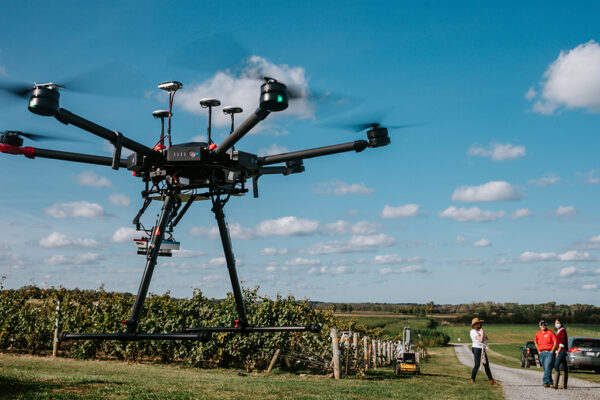
Explore fields like computer science, psychology, sociology, communication, engineering, and data science—and then connect the dots back to your management research.
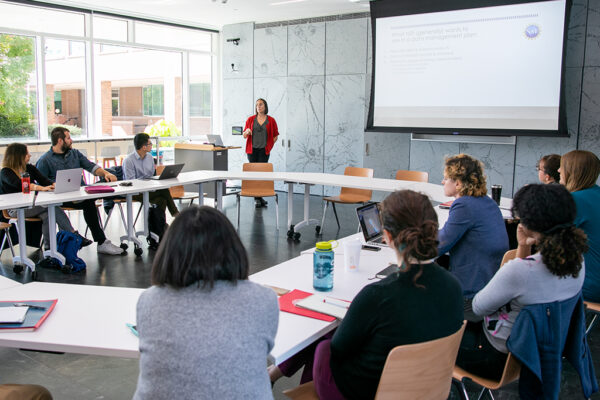
Interact with peers and professors from other disciplines by participating in student organizations and special interest groups or by attending public lectures, workshops, and networking events.

Admissions Overview: How to Apply to the Management PhD Program
The ideal candidate for the Johnson School’s doctorate degree in management will have a strong record of academic excellence, a solid understanding of the research process, and an entrepreneurial approach to problem-solving. An MBA or master’s degree is not a requirement for admission.
Our admissions page offers more details about program prerequisites, selection criteria, requirements, deadline information, and a checklist of materials you need to submit with your application.
Connect With Cornell Admissions
The Johnson School admissions team is available to answer your questions about the program and the application process. Stop in or reach out by phone or email today.
253-D Sage Hall Johnson Graduate School of Management Cornell University Ithaca, NY 14853-6201
Phone: 607-255-5340 Email: Graduate Research Programs Office

The Cornell Campus: Where You Will Learn, Grow, and Thrive
Learn, grow, and thrive on one of the most beautiful college campuses in the United States. As a PhD student, you’ll spend a lot of time in Sage Hall, a Gothic-style building dating back to 1875. You’ll find more high-tech learning spaces just off campus at the Breazzano Family Center for Business Education. You’ll also have access to the innovative campus of Cornell Tech in New York City—particularly relevant to students focused on technology and information management.
Attending Cornell also means you’ll call Ithaca, NY, home for about five years. Our eclectic downtown is full of eateries, shops, activities, and all of the amenities you’d need for everyday life. When you’re not in class or studying, you can explore all that the Finger Lakes region has to offer.
PhD in Management FAQ: What You Need to Know
Before you apply to a research-focused graduate program, you’re likely to want to do some deep research of your own. For instance, how does a fully funded PhD in Management work? What’s the typical completion time?
We have a robust Frequently Asked Questions section to help you learn more about our program, the admissions process, and dissertation requirements. For our international applicants, you’ll also find specific details about earning your PhD in Management.
May I speak to someone about my interest in the program and visit?
You are welcome to reach out to any professor with whom you see a good research fit. Our website also has a wealth of information about the program.
Is an interview part of the process?
We offer interviews only to a few applicants after their first screening.
May I talk to a professor or advisor?
You are welcome to contact any professor with whom you see a research match. Faculty are more likely to respond to specific research queries.
I have questions; may I write to this program email address?
Yes. Our response time will vary. We are not able to answer detailed questions that are better assessed by faculty during the application process.
May I schedule a campus tour?
Admissions does not offer campus tours for PhD program applicants. However, you may arrange an appointment with a faculty member.
Fraud alert – beware of third-party post-doc scams.
Cornell University recently has been made aware of fraudulent activity targeting overseas students and researchers, including at least one third party website falsely stating that it is offering a postdoctoral or visiting scholar program in association with Cornell. These scams, which may seek to obtain money and/or personal details from interested applicants, are fraudulent.
Cornell wishes to warn the public about these fraudulent activities being perpetrated purportedly in the name of Cornell, and/or its officials. Please be advised that:
- Cornell does not, nor has it, worked in collaboration with third-party companies or organizations to offer postdoctoral or research certificate programs.
- Third parties do not collect tuition or fees on behalf of Cornell.
- Cornell does not work with or endorse such organizations including, but not limited to, Shanghai Lufei Education Technology Co., Ltd. (Chinese name: 上海璐斐教育科技有限公司) and Shenzhen Guoyan Era Education Technology Co., Ltd. (Chinese name: 深圳市国研时代教育科技有限公司).
Cornell’s postdoctoral positions are listed on the Academic Career Opportunities website and postdoctoral fellowship programs are available for viewing. If you suspect a third party of falsely advertising a Cornell program, please notify [email protected]. Victims of such scams may also report them to their local law enforcement authorities for appropriate action.
Start the Application Process Today
Ready to apply to our highly selective, fully funded PhD in Management? We look forward to learning more about you and your research goals. Start the application process today at the Cornell Graduate Admissions website. [You’ll first need to register for an account or log in to an existing one.]
Stack Exchange Network
Stack Exchange network consists of 183 Q&A communities including Stack Overflow , the largest, most trusted online community for developers to learn, share their knowledge, and build their careers.
Q&A for work
Connect and share knowledge within a single location that is structured and easy to search.
Is it useful to do an MBA after PhD?
I have heard of people who have gone on to pursue an MBA after their doctorates. What are the advantages/downsides of this?
Wouldn't the companies recruiting them after MBA value their doctorate experience less compared to the experience gained at an MNC? Is there a risk of them being valued as "failed" doctorates?
- graduate-school
- business-school
- 6 MBAs and PhDs are two different things. If you want to run a business, do an MBA. – Dave Clarke Commented Jun 1, 2012 at 8:24
- It really depends on the degree and what you ultimately intend to do... What do you plan to get your PhD in, and how do you plan to use an MBA as part of your future plans? – Paul Commented Jun 2, 2012 at 14:13
- 1 Nature just had an article about it: nature.com/naturejobs/science/articles/10.1038/nj7523-523a – Gimelist Commented Nov 4, 2014 at 22:39
4 Answers 4
There are several cases where PhDs do an MBA. Some of them are:
- Bored of research as a whole.
- Irritation with academia and poor scope in Industry.
- Want to earn money.
- For furthering responsibilities at the university where one is a professor. If you do some looking around, a high amount of Deans to have an MBA along with a PhD.
No degree ever goes waste. Most people with PhD and MBA acquire director positions in companies.
- 26 "no degree ever goes waste" [citation needed] – JeffE Commented Jun 2, 2012 at 5:43
- 1 "Most people with PhD and MBA acquire director positions in companies." That seems insanely hard to believe. – xLeitix Commented Jan 4, 2014 at 16:07
A qualification regardless of level and field of study is never a waste, one needs to realize how to use it wisely and appropriately. As we navigate life we shift perspective and interests, our education choices therefore need to reflect this. Ph.D provides sound research focus, MBA provides sound business and leadership focus. The two combined is a great and electrifying combination.
- 4 A qualification regardless of level and field of study is never a waste — [citation needed] – JeffE Commented Jan 3, 2014 at 17:08
- @JeffE I can indeed think of many examples where a qualification was indeed a waste. However, a (good) MBA is not usually one of those cases. – xLeitix Commented Jan 4, 2014 at 16:06
- 2 Right. A good MBA is not one of those cases. But many (if not most ) MBAs are not good . – JeffE Commented Jan 4, 2014 at 20:08
PhD = specialist in a subject, research skills, critical mind MBA = Broad generalist, management, problem solving
The focus and scope is not the same. Also like it was said most researchers who want to climb the ladder need to take the management track which often require an MBA. Put simply an MD is an MD but a hospital manager needs to be an MD and MBA.
Also to teach at a business school other than math or economics you normally need an MBA. Best is a Phd/MBA but while a lowly MBA can teach that is not usually the case for a PhD.
- If a person is smart they will market their experience during the acquisition of their PhD as also providing them with the problem solving and management skill sets. If you are going to be successful in research or business these are good things to have. – ryetochondria Commented Nov 5, 2014 at 1:10
You must log in to answer this question.
Not the answer you're looking for browse other questions tagged phd graduate-school masters business-school ..
- Featured on Meta
- We spent a sprint addressing your requests — here’s how it went
- Upcoming initiatives on Stack Overflow and across the Stack Exchange network...
Hot Network Questions
- Did any other European leader praise China for its peace initiatives since the outbreak of the Ukraine war?
- If someone clearly believes that he has witnessed something extraordinary very clearly, why is it more reasonable to believe that they hallucinated?
- Error concerning projectile motion in respected textbook?
- These two Qatar flights with slightly different times and different flight number must actually be the same flight, right?
- Time integration of first-order ODE with higher-order information
- .Net 8 XUnit: Should my tests use real data or how to mock MySql with CQRS?
- Keyboard Ping Pong
- Alternatives to iterrow loops in python pandas dataframes
- Assigning unique ID to new points in QGIS
- Does the cosmological constant entail a mass for the graviton?
- Identify the story about an author whose work-in-progress is completed by a computer
- How can I sort all levels except the innermost level?
- Is "double-lowercase-L" a ligature (Computer Modern Italic)?
- Nilpotency of generalized cohomology
- What scientifically plausible apocalypse scenario, if any, meets my criteria?
- iMac 21" i3 very slow even on clean install of OS
- Help understanding the implications of Security Breach section of an NDA
- Equivalence of first/second choice with naive probability - I don't buy it
- 80's/90's anime about a mecha made out of bones
- Schreier-Sims algorithm for solving Rubik's cube
- Are the North Star and the moon ever visible in the night sky at the same time?
- Go the Distance
- How can I prove that '+' is same as max?
- Are there any reasons I shouldn't remove this odd nook from a basement room?
About Stanford GSB
- The Leadership
- Dean’s Updates
- School News & History
- Commencement
- Business, Government & Society
- Centers & Institutes
- Center for Entrepreneurial Studies
- Center for Social Innovation
- Stanford Seed
About the Experience
- Learning at Stanford GSB
- Experiential Learning
- Guest Speakers
- Entrepreneurship
- Social Innovation
- Communication
- Life at Stanford GSB
- Collaborative Environment
- Activities & Organizations
- Student Services
- Housing Options
- International Students
Full-Time Degree Programs
- Why Stanford MBA
- Academic Experience
- Financial Aid
- Why Stanford MSx
Research Fellows Program
- See All Programs
Non-Degree & Certificate Programs
- Executive Education
- Stanford Executive Program
- Programs for Organizations
- The Difference
- Online Programs
- Stanford LEAD
- Seed Transformation Program
- Aspire Program
- Seed Spark Program
- Faculty Profiles
- Academic Areas
- Awards & Honors
- Conferences
Faculty Research
- Publications
- Working Papers
- Case Studies
Research Hub
- Research Labs & Initiatives
- Business Library
- Data, Analytics & Research Computing
- Behavioral Lab
Research Labs
- Cities, Housing & Society Lab
- Golub Capital Social Impact Lab
Research Initiatives
- Corporate Governance Research Initiative
- Corporations and Society Initiative
- Policy and Innovation Initiative
- Rapid Decarbonization Initiative
- Stanford Latino Entrepreneurship Initiative
- Value Chain Innovation Initiative
- Venture Capital Initiative
- Career & Success
- Climate & Sustainability
- Corporate Governance
- Culture & Society
- Finance & Investing
- Government & Politics
- Leadership & Management
- Markets and Trade
- Operations & Logistics
- Opportunity & Access
- Technology & AI
- Opinion & Analysis
- Email Newsletter
Welcome, Alumni
- Communities
- Digital Communities & Tools
- Regional Chapters
- Women’s Programs
- Identity Chapters
- Find Your Reunion
- Career Resources
- Job Search Resources
- Career & Life Transitions
- Programs & Webinars
- Career Video Library
- Alumni Education
- Research Resources
- Volunteering
- Alumni News
- Class Notes
- Alumni Voices
- Contact Alumni Relations
- Upcoming Events
Admission Events & Information Sessions
- MBA Program
- MSx Program
- PhD Program
- Alumni Events
- All Other Events
- Requirements
- Requirements: Behavioral
- Requirements: Quantitative
- Requirements: Macro
- Requirements: Micro
- Annual Evaluations
- Field Examination
- Research Activities
- Research Papers
- Dissertation
- Oral Examination
- Current Students
- Entering Class Profile
- Education & CV
- GMAT & GRE
- International Applicants
- Statement of Purpose
- Letters of Recommendation
- Reapplicants
- Application Fee Waiver
- Deadline & Decisions
- Job Market Candidates
- Academic Placements
- Stay in Touch
- Fields of Study
- Student Life

Our faculty members are uncompromisingly committed to student success

Students pursue an intensely focused, highly energized academic experience in their chosen discipline

Recognized experts in their fields, our faculty continually publish groundbreaking research

Our collaborative culture enables students to support one another, and most students live on campus

Learn more about our application materials and what we look for in a candidate

Our graduates pursue tenure-track academic placements at top institutions around the world
Stanford GSB PhD Program
Discover a focus and intensity greater than you may have thought possible. As a PhD student at Stanford Graduate School of Business, you will be inspired and challenged to explore novel ideas and complex questions.
Applications for Fall 2025 will be available in September 2024.

Become an Outstanding Scholar
Our PhD Program is designed to develop outstanding scholars for careers in research and teaching at leading academic institutions throughout the world. You will embark on a challenging and meaningful experience, focusing your academic study in one of seven distinct fields within the PhD degree program.
Is a PhD Right for You?
Strong PhD candidates are full of ideas and curiosity, with a passion and aptitude for research. If you’re prepared to embark on a rigorous career in research and develop your full potential, we invite you to explore the possibilities of a PhD in business. Admitted students receive full fellowships for their doctoral studies.
Faculty Publications
Expectations and the neutrality of interest rates, real effects of supplying safe private money, how credit cycles across a financial crisis, phd student voices, school news, stanford economist guido imbens wins nobel in economic sciences, susan athey named president of american economic association, teaching through a pandemic: students recognize two faculty members for their efforts, diversifying the pool of phd students will require systemic change.
Gain valuable research experience and training in a two-year, pre-doctoral opportunity at Stanford University.
- Priorities for the GSB's Future
- See the Current DEI Report
- Supporting Data
- Research & Insights
- Share Your Thoughts
- Search Fund Primer
- Teaching & Curriculum
- Affiliated Faculty
- Faculty Advisors
- Louis W. Foster Resource Center
- Defining Social Innovation
- Impact Compass
- Global Health Innovation Insights
- Faculty Affiliates
- Student Awards & Certificates
- Changemakers
- Dean Jonathan Levin
- Dean Garth Saloner
- Dean Robert Joss
- Dean Michael Spence
- Dean Robert Jaedicke
- Dean Rene McPherson
- Dean Arjay Miller
- Dean Ernest Arbuckle
- Dean Jacob Hugh Jackson
- Dean Willard Hotchkiss
- Faculty in Memoriam
- Stanford GSB Firsts
- Class of 2024 Candidates
- Certificate & Award Recipients
- Dean’s Remarks
- Keynote Address
- Teaching Approach
- Analysis and Measurement of Impact
- The Corporate Entrepreneur: Startup in a Grown-Up Enterprise
- Data-Driven Impact
- Designing Experiments for Impact
- Digital Marketing
- The Founder’s Right Hand
- Marketing for Measurable Change
- Product Management
- Public Policy Lab: Financial Challenges Facing US Cities
- Public Policy Lab: Homelessness in California
- Lab Features
- Curricular Integration
- View From The Top
- Formation of New Ventures
- Managing Growing Enterprises
- Startup Garage
- Explore Beyond the Classroom
- Stanford Venture Studio
- Summer Program
- Workshops & Events
- The Five Lenses of Entrepreneurship
- Leadership Labs
- Executive Challenge
- Arbuckle Leadership Fellows Program
- Selection Process
- Training Schedule
- Time Commitment
- Learning Expectations
- Post-Training Opportunities
- Who Should Apply
- Introductory T-Groups
- Leadership for Society Program
- Certificate
- 2024 Awardees
- 2023 Awardees
- 2022 Awardees
- 2021 Awardees
- 2020 Awardees
- 2019 Awardees
- 2018 Awardees
- Social Management Immersion Fund
- Stanford Impact Founder Fellowships
- Stanford Impact Leader Prizes
- Social Entrepreneurship
- Stanford GSB Impact Fund
- Economic Development
- Energy & Environment
- Stanford GSB Residences
- Environmental Leadership
- Stanford GSB Artwork
- A Closer Look
- California & the Bay Area
- Voices of Stanford GSB
- Business & Beneficial Technology
- Business & Sustainability
- Business & Free Markets
- Business, Government, and Society Forum
- Get Involved
- Second Year
- Global Experiences
- JD/MBA Joint Degree
- MA Education/MBA Joint Degree
- MD/MBA Dual Degree
- MPP/MBA Joint Degree
- MS Computer Science/MBA Joint Degree
- MS Electrical Engineering/MBA Joint Degree
- MS Environment and Resources (E-IPER)/MBA Joint Degree
- Academic Calendar
- Clubs & Activities
- LGBTQ+ Students
- Military Veterans
- Minorities & People of Color
- Partners & Families
- Students with Disabilities
- Student Support
- Residential Life
- Student Voices
- MBA Alumni Voices
- A Week in the Life
- Career Support
- Employment Outcomes
- Cost of Attendance
- Knight-Hennessy Scholars Program
- Yellow Ribbon Program
- BOLD Fellows Fund
- Application Process
- Loan Forgiveness
- Contact the Financial Aid Office
- Evaluation Criteria
- English Language Proficiency
- Personal Information, Activities & Awards
- Professional Experience
- Optional Short Answer Questions
- Application Fee
- Reapplication
- Deferred Enrollment
- Joint & Dual Degrees
- Event Schedule
- Ambassadors
- New & Noteworthy
- Ask a Question
- See Why Stanford MSx
- Is MSx Right for You?
- MSx Stories
- Leadership Development
- How You Will Learn
- Admission Events
- Personal Information
- GMAT, GRE & EA
- English Proficiency Tests
- Career Change
- Career Advancement
- Daycare, Schools & Camps
- U.S. Citizens and Permanent Residents
- Faculty Mentors
- Current Fellows
- Standard Track
- Fellowship & Benefits
- Group Enrollment
- Program Formats
- Developing a Program
- Diversity & Inclusion
- Strategic Transformation
- Program Experience
- Contact Client Services
- Campus Experience
- Live Online Experience
- Silicon Valley & Bay Area
- Digital Credentials
- Faculty Spotlights
- Participant Spotlights
- Eligibility
- International Participants
- Stanford Ignite
- Frequently Asked Questions
- Operations, Information & Technology
- Organizational Behavior
- Political Economy
- Classical Liberalism
- The Eddie Lunch
- Accounting Summer Camp
- Videos, Code & Data
- California Econometrics Conference
- California Quantitative Marketing PhD Conference
- California School Conference
- China India Insights Conference
- Homo economicus, Evolving
- Political Economics (2023–24)
- Scaling Geologic Storage of CO2 (2023–24)
- A Resilient Pacific: Building Connections, Envisioning Solutions
- Adaptation and Innovation
- Changing Climate
- Civil Society
- Climate Impact Summit
- Climate Science
- Corporate Carbon Disclosures
- Earth’s Seafloor
- Environmental Justice
- Operations and Information Technology
- Organizations
- Sustainability Reporting and Control
- Taking the Pulse of the Planet
- Urban Infrastructure
- Watershed Restoration
- Junior Faculty Workshop on Financial Regulation and Banking
- Ken Singleton Celebration
- Marketing Camp
- Quantitative Marketing PhD Alumni Conference
- Presentations
- Theory and Inference in Accounting Research
- Stanford Closer Look Series
- Quick Guides
- Core Concepts
- Journal Articles
- Glossary of Terms
- Faculty & Staff
- Researchers & Students
- Research Approach
- Charitable Giving
- Financial Health
- Government Services
- Workers & Careers
- Short Course
- Adaptive & Iterative Experimentation
- Incentive Design
- Social Sciences & Behavioral Nudges
- Bandit Experiment Application
- Conferences & Events
- Reading Materials
- Energy Entrepreneurship
- Faculty & Affiliates
- SOLE Report
- Responsible Supply Chains
- Current Study Usage
- Pre-Registration Information
- Participate in a Study
- Founding Donors
- Location Information
- Participant Profile
- Network Membership
- Program Impact
- Collaborators
- Entrepreneur Profiles
- Company Spotlights
- Seed Transformation Network
- Responsibilities
- Current Coaches
- How to Apply
- Meet the Consultants
- Meet the Interns
- Intern Profiles
- Collaborate
- Research Library
- News & Insights
- Program Contacts
- Databases & Datasets
- Research Guides
- Consultations
- Research Workshops
- Career Research
- Research Data Services
- Course Reserves
- Course Research Guides
- Material Loan Periods
- Fines & Other Charges
- Document Delivery
- Interlibrary Loan
- Equipment Checkout
- Print & Scan
- MBA & MSx Students
- PhD Students
- Other Stanford Students
- Faculty Assistants
- Research Assistants
- Stanford GSB Alumni
- Telling Our Story
- Staff Directory
- Site Registration
- Alumni Directory
- Alumni Email
- Privacy Settings & My Profile
- Success Stories
- The Story of Circles
- Support Women’s Circles
- Stanford Women on Boards Initiative
- Alumnae Spotlights
- Insights & Research
- Industry & Professional
- Entrepreneurial Commitment Group
- Recent Alumni
- Half-Century Club
- Fall Reunions
- Spring Reunions
- MBA 25th Reunion
- Half-Century Club Reunion
- Faculty Lectures
- Ernest C. Arbuckle Award
- Alison Elliott Exceptional Achievement Award
- ENCORE Award
- Excellence in Leadership Award
- John W. Gardner Volunteer Leadership Award
- Robert K. Jaedicke Faculty Award
- Jack McDonald Military Service Appreciation Award
- Jerry I. Porras Latino Leadership Award
- Tapestry Award
- Student & Alumni Events
- Executive Recruiters
- Interviewing
- Land the Perfect Job with LinkedIn
- Negotiating
- Elevator Pitch
- Email Best Practices
- Resumes & Cover Letters
- Self-Assessment
- Whitney Birdwell Ball
- Margaret Brooks
- Bryn Panee Burkhart
- Margaret Chan
- Ricki Frankel
- Peter Gandolfo
- Cindy W. Greig
- Natalie Guillen
- Carly Janson
- Sloan Klein
- Sherri Appel Lassila
- Stuart Meyer
- Tanisha Parrish
- Virginia Roberson
- Philippe Taieb
- Michael Takagawa
- Terra Winston
- Johanna Wise
- Debbie Wolter
- Rebecca Zucker
- Complimentary Coaching
- Changing Careers
- Work-Life Integration
- Career Breaks
- Flexible Work
- Encore Careers
- Join a Board
- D&B Hoovers
- Data Axle (ReferenceUSA)
- EBSCO Business Source
- Global Newsstream
- Market Share Reporter
- ProQuest One Business
- Student Clubs
- Entrepreneurial Students
- Stanford GSB Trust
- Alumni Community
- How to Volunteer
- Springboard Sessions
- Consulting Projects
- 2020 – 2029
- 2010 – 2019
- 2000 – 2009
- 1990 – 1999
- 1980 – 1989
- 1970 – 1979
- 1960 – 1969
- 1950 – 1959
- 1940 – 1949
- Service Areas
- ACT History
- ACT Awards Celebration
- ACT Governance Structure
- Building Leadership for ACT
- Individual Leadership Positions
- Leadership Role Overview
- Purpose of the ACT Management Board
- Contact ACT
- Business & Nonprofit Communities
- Reunion Volunteers
- Ways to Give
- Fiscal Year Report
- Business School Fund Leadership Council
- Planned Giving Options
- Planned Giving Benefits
- Planned Gifts and Reunions
- Legacy Partners
- Giving News & Stories
- Giving Deadlines
- Development Staff
- Submit Class Notes
- Class Secretaries
- Board of Directors
- Health Care
- Sustainability
- Class Takeaways
- All Else Equal: Making Better Decisions
- If/Then: Business, Leadership, Society
- Grit & Growth
- Think Fast, Talk Smart
- Spring 2022
- Spring 2021
- Autumn 2020
- Summer 2020
- Winter 2020
- In the Media
- For Journalists
- DCI Fellows
- Other Auditors
- Academic Calendar & Deadlines
- Course Materials
- Entrepreneurial Resources
- Campus Drive Grove
- Campus Drive Lawn
- CEMEX Auditorium
- King Community Court
- Seawell Family Boardroom
- Stanford GSB Bowl
- Stanford Investors Common
- Town Square
- Vidalakis Courtyard
- Vidalakis Dining Hall
- Catering Services
- Policies & Guidelines
- Reservations
- Contact Faculty Recruiting
- Lecturer Positions
- Postdoctoral Positions
- Accommodations
- CMC-Managed Interviews
- Recruiter-Managed Interviews
- Virtual Interviews
- Campus & Virtual
- Search for Candidates
- Think Globally
- Recruiting Calendar
- Recruiting Policies
- Full-Time Employment
- Summer Employment
- Entrepreneurial Summer Program
- Global Management Immersion Experience
- Social-Purpose Summer Internships
- Process Overview
- Project Types
- Client Eligibility Criteria
- Client Screening
- ACT Leadership
- Social Innovation & Nonprofit Management Resources
- Develop Your Organization’s Talent
- Centers & Initiatives
- Student Fellowships

- Online MBA Program Curriculum
- Online Student Experience
- College of Business Faculty
- Explore MBA Careers
- How to Apply
- International Applicants
- Online Community
- About The College of Business
- Career Resources
Get Program Details
Mba to phd: what is the recommended path.

Dr. Nick Dahan, Professor and Director, Online MBA California State University at Monterey Bay College of Business
As you are planning out your education and career, you may be considering furthering your education beyond an MBA with a doctorate degree in a business-related field. This is a big decision, given that it is likely a three- to six-year commitment that would affect your career and your family, both emotionally and financially. Be sure to make this decision after taking some time for careful consideration.
Here are a few key questions to ask in order to help with the MBA to PhD decision process.
Why Do You Need a Doctorate?
This is the most important question.
If you have substantial executive experience and you are interested in teaching in higher education, you may be eligible for the Association to Advance Collegiate Schools of Business’ (AACSB) “bridge” program , which helps executives become effective instructors. This program is designed for highly seasoned business leaders who are only interested in teaching, not pursuing research. They can teach in business schools either part-time or full-time in a contractual teaching-focused position (called non-tenure track, or clinical, or professor of teaching). In that case, a doctorate is not needed at all.
If the only reason to pursue a doctorate is to study a business discipline or to deepen your quantitative skills beyond what is possible in an MBA (even one with a concentration), you may want to consider a graduate certificate or a master of science (MSc). They offer the opportunity to take three to 12 courses with a narrower focus, such as data analytics, human resources management, project management, digital marketing, etc. A certificate or MSc is a great complement to an MBA, especially if your MBA consisted of, say, 10 courses covering 10 different business disciplines, with little opportunity to go deeper on any particular subject.
It must also be stressed that boosting earnings is rarely a strong reason to pursue a doctorate in business if you already hold an MBA or MSc in a business subject. As careers in the private sector are more lucrative and typically do not require a doctorate (other than a few corporate economist and financial positions where a PhD is a must), the financial return on the investment into a business PhD may actually be negative if you plan to go into academia compared to a private-sector career with an MBA. As an example, through a successful career in the private sector, a business executive may well earn more than $200K annually five or 10 years after completing their master’s degree in business, whereas it is highly unlikely that a business academic with a PhD will ever reach that salary level. However, while significantly increasing your earnings may not be the main reason, there are obviously plenty of other valid reasons for pursuing a doctorate.
Valid reasons to go from an MBA to a PhD include:
- Ensuring you achieve the deepest level of expertise on a subject matter, which can then be leveraged in the private sector, public sector, and consulting. Sometimes a graduate certificate or even an MSc is not enough for the kind of career you seek out
- Getting the opportunity to teach in higher education, either part-time as an adjunct while keeping your full-time job in business, or full-time by switching from a business career to academia. If the latter, the choice is often motivated by seeking a second career that allows more freedom and flexibility (stable employment and great benefits are important perks).
- For marginalized populations , it may be an important way to be given the respect they deserve. And business doctorate programs face a serious underrepresentation of minorities, in part because many programs do not offer scholarships and assistantships (instead, they are money-making programs for the universities), which decreases the likelihood of minority enrollment . Fortunately, there are initiatives to redress the situation and grow a pipeline of minority PhDs that can ultimately join academia, such as McNair fellowships in business , and The PhD Project .
Which Kind of Doctorate?
Not all doctorates are created equal. You have to choose one that matches your career goals:
Doctorate in Education (EdD)
This is not a doctorate in business per se. As such, it is very unlikely to lead to a full-time position at a four-year college nowadays. However, it can be useful in consulting, in specialized areas of Human Resource Management (adult education/training), or to pursue a leadership career in education (high school and school district, or on the administrative side of higher education such as Dean of students, Vice-Provost, etc.).
Doctorate in Business Administration (DBA)
In business fields, there are DBA and Executive Doctorate in Business Administration (EDBA) (EDBA/DBA) programs.
DBA programs are more practically oriented, focusing on conducting applied research. For example, a project the DBA student investigates in their professional context, as “action-research” that can be implemented quickly and deliver concrete benefits to their organization. Because the focus is on research that can be implemented in organizations, rather than published in academic journals to promote knowledge in the discipline, the DBA is well-suited for a career as a consultant. It could also be used to land a full-time position as an academic or a leader at a community college, where there is no expectation of conducting and publishing academic research.
Doctor of Philosophy (PhD)
PhD programs are more academic in content, typically providing even deeper training in research skills and subject matter, which often implies that they take longer to complete. A PhD first and foremost prepares students for a career in academia, specifically to be a professor or an academic leader, such as executive director, academic dean, provost, or president.
PhD programs focus on unique, theory-based research and publication of the findings of that research in academic journals and scientific books. If you are interested in a full-time academic career at a four-year college or university, a PhD is the degree for you. Of course, a PhD can also be leveraged in other careers such as consulting.
What Kind of Program?
Residential or online? Full-time or part-time? Every option exists.
If you aspire to mostly focus on teaching and therefore want to work at a college with a teaching emphasis, your PhD program options are broader than if you want to ultimately work at a business school where research expectations are more central. You have to select a doctoral program that will prepare you for the kind of academic career you aspire to: mostly teaching? A mix of teaching and research? Mostly research? Typically, the more prestigious the business school, the more emphasis is placed on research in its doctoral program.
If you want to be an academic, the more traditional route is to join a full-time residential PhD program where you can focus entirely on your studies and priming your research pipeline in order to prepare for a full-time academic position. Typically, seats are scarce at these PhD programs as it is extremely costly for universities to run these programs; they have to pay their most experienced professors to teach doctoral seminars to a very small number of students (often five to 10) who often have their tuition fully covered and get a scholarship or assistantship on top of that (often earning around $20K annually). If you are aiming to be hired as a faculty at a premier accredited school (AACSB-accredited for North America 1 , while in Europe EQUIS is another accreditation that is also prestigious), earning a PhD from a similarly accredited business school would be helpful (although outside of the USA there are quite a few prestigious business schools that are not AACSB or EQUIS accredited).
Some PhD and almost all DBA programs are part-time, offering students the option to keep working in parallel to their studies, but in that case, students have to pay tuition, which can add up to very substantial amounts over three to six years.
Finally, some programs are online rather than in person. In that category, a lot of DBA programs are either hybrid (each course has both an online and an in-person component) or mostly online with a small residency requirement (e.g., one weekend every semester). While it is not impossible to get a full-time academic position at a four-year college with a doctorate from a non-AACSB accredited business school, it is significantly harder, at least in North America. So, it is important to note that so far only one AACSB-accredited business school offers a fully online PhD program—University of North Carolina at Greensboro.
Start with Your Online MBA
Many roads lead to a doctorate in business, and upon completion it paves the way to a variety of careers. Therefore, this must be a personal decision based on your professional aspirations and work/life constraints. It is highly advisable to get in touch with professionals who successfully leveraged their doctorate in their careers, such as consultants or academics, in order to better understand the risks, challenges, and rewards of pursuing a doctorate, and the latest trends in their field.
Before moving on for a doctorate, however, you will want to pursue your MBA. Create the career and the life you want with the Responsible Business Online MBA from California State University, Monterey Bay. Keep advancing your career work as you earn your MBA with our 100% online curriculum which focuses on the increasing role and importance of responsible business .
About the Author
Dr. Nicolas (Nick) Dahan is a Full Professor of International Business and Strategy, and Director of the MBA program at CSUMB, College of Business.
He has worked as a full-time faculty at a number of institutions, both in the USA (most recently prior to CSUMB at Temple University-Fox School of Business) and France. He also has extensive adjunct teaching experience with American institutions, including George Washington University, Tulane University, Baruch College-CUNY, as well as top French business schools (ESSEC, ESCP Europe, Sciences Po), and executive education.
His scholarly work has been published in journals such as Business & Society, International Business Review, Journal of Business Ethics, Journal of Business Research, Human Relations, Long Range Planning, and Strategic Organization.
He has worked at several French firms, and has acted occasionally as a consultant for multinational enterprises as well as trade associations in either public affairs or international entrepreneurship/marketing.
Return to Blog
California State University, Monterey Bay has engaged Everspring , a leading provider of education and technology services, to support select aspects of program delivery.

Career Scope & Valuable Reasons to do PhD after MBA

Blog Summary
Unlock the potential of your career with a PhD after MBA in Management. Discover how this esteemed degree can elevate your expertise and impact in the business world. From gaining credibility to refining leadership skills, explore the myriad benefits outlined in our comprehensive guide. Dive deeper into the advantages of online learning and accreditation, ensuring a seamless journey towards your academic and professional aspirations. Join us on a transformative path towards scholarly excellence and practical mastery in management studies.
A rising number of PhD management degree holder
Whether you wish to become an academic teacher or help companies solve critical management issues, a PhD after an MBA degree in management will offer a path to greater credibility, influence, and impact.
PhD degree in a management program is usually grounded in preparing you with the skills and buoyancy you need to complete your thesis.
A PhD in Management empowers professionals in business and corporate to excel as leaders, scholars, and change-makers.
How to Get a PhD in Management
You can join PhD in management after an MBA or easily complete an online doctorate degree in management after your Master’s in Business Management. The pandemic has slowed the world down; schools, colleges, and most services have gone online.
PhD in management online programs were available even before the pandemic. You can complete your doctorate with full support from business experts and at your own pace.
More college graduates decide to pursue a master’s or doctorate degree in management. In recent years, the number of doctoral degree holders has grown to 4.5 million. Prospective students pursuing a PhD in management are increasing because they want to become experts in their chosen field. While there are many reasons to get a PhD after an MBA, it is a fact that you gain more knowledge and pass it on to the upcoming generation.
Benefits of Earning Your PhD after MBA in Management
There are plenty of reasons to pursue a PhD in Management, from gaining a competitive edge to becoming a scholar-practitioner.
Be it contemplating your career or seeking to address your management challenges, a PhD in Management can help you accomplish your goals, personal and professional. Are you wondering how a PhD after an MBA can better transform you, your career, and others? Here it is.
For further insights into the benefits and considerations of pursuing an online PhD in management, we invite our audience to explore our blog titled “ Why Opt for an Online PhD in Management Today .”
Gain a competitive edge When you choose to move ahead in your career, PhD in Management online program will become a marketable asset that will provide you competitive advantage in today’s fast-moving business world.
- Become a better problem solver A good PhD in Management program inspires you to do more than receive knowledge. It helps you to share knowledge with the whole world. You will also be achieving new levels of critical thinking that you can apply in new and exciting ways in your career and your field of interest.
- Refine your expertise A PhD in management will, through distance or online learning, give you ground in new strategies for leading businesses and people in an increasingly interlinked global society. It is sure to hone your strategy for leading people in an increasingly interwoven international community.
- There may be repetitive questions in your mind as to why get a PhD in business. But the benefits are vivid; you can gain universally applicable skills for uplifting companies in any sector. Also, as you gain inside-out knowledge, you are sure to create a place for yourself in the current role you are in and make a more significant impact. There are chances that even your friends and family members turn to you for advice and guidance on business-related issues.
- Evolve as a scholar-practitioner PhD after an MBA will give you the knowledge and self-confidence to attend academic conferences and present papers. You’ll discover your inner voice as a scholar and write a dissertation.
- A competitive pay You are sure to receive higher pay soon after you finish your PhD in business. There is always a tremendous demand for PhD holders in universities to teach students and the business field for various positions. You can create a difference in your organization and also in your community. By transferring the latest concepts and theories, you can bring changes after your PhD in Management degree.
Choosing the Best Online University
It all starts with choosing the best university to earn a PhD or doctoral degree. Earning a degree can be more feasible and much more valuable if you choose the right online platform to pursue your PhD degree.
Accredited university
You must ensure you receive a quality education by choosing an accredited university. It could be online or offline, but choosing the right university is recognised and accredited by an accrediting organization.

Download Brochure
Select Country Afghanistan (+93) Albania (+355) Algeria (+213) American Samoa (+1-684) Andorra (+376) Angola (+244) Anguilla (+1-264) Antarctica (+672) Argentina (+54) Armenia (+374) Aruba (+297) Australia (+61) Austria (+43) Azerbaijan (+994) Bahamas (+1-242) Bahrain (+973) Bangladesh (+880) Barbados (+1-246) Belarus (+375) Belgium (+32) Belize (+501) Benin (+229) Bermuda (+1-441) Bhutan (+975) Bolivia (+591) Bosnia and Herzegovina (+387) Botswana (+267) Brazil (+55) British Indian Ocean Territory (+246) Bulgaria (+359) Burkina Faso (+226) Burundi (+257) Cambodia (+855) Cameroon (+237) Canada (+1) Cape Verde (+238) Cayman Islands (+1-345) Chad (+235) Chile (+56) China (+86) Christmas Island (+61) Colombia (+57) Comoros (+269) Cook Islands (+682) Costa Rica (+506) Croatia (+385) Cuba (+53) Cyprus (+357) Czech Republic (+420) Denmark (+45) Djibouti (+253) Dominica (+1-767) Dominican Republic (+1-809 East Timor (+670) Ecuador (+593) Egypt (+20) El Salvador (+503) Equatorial Guinea (+240) Eritrea (+291) Estonia (+372) Ethiopia (+251) Faroe Islands (+298) Fiji (+679) Finland (+358) France (+33) French Polynesia (+689) Gabon (+241) Gambia (+220) Georgia (+995) Germany (+49) Ghana (+233) Gibraltar (+350) Greece (+30) Greenland (+299) Grenada (+1-473) Guam (+1-671) Guatemala (+502) Guernsey (+44-1481) Guinea (+224) Guinea-Bissau (+245) Guyana (+592) Haiti (+509) Honduras (+504) Hong Kong (+852) Hungary (+36) Iceland (+354) India (+91) Indonesia (+62) Iraq (+964) Ireland (+353) Isle of Man (+44-1624) Israel (+972) Italy (+39) Ivory Coast (+225) Jamaica (+1-876) Japan (+81) Jersey (+44-1534) Jordan (+962) Kazakhstan (+7) Kenya (+254) Kiribati (+686) Kosovo (+383) Kuwait (+965) Kyrgyzstan (+996) Latvia (+371) Lebanon (+961) Lesotho (+266) Liberia (+231) Libya (+218) Liechtenstein (+423) Lithuania (+370) Luxembourg (+352) Madagascar (+261) Malawi (+265) Malaysia (+60) Maldives (+960) Mali (+223) Malta (+356) Marshall Islands (+692) Mauritania (+222) Mauritius (+230) Mayotte (+262) Mexico (+52) Monaco (+377) Mongolia (+976) Montenegro (+382) Montserrat (+1-664) Morocco (+212) Mozambique (+258) Namibia (+264) Nauru (+674) Nepal (+977) Netherlands (+31) New Caledonia (+687) New Zealand (+64) Nicaragua (+505) Niger (+227) Nigeria (+234) Niue (+683) Northern Mariana Islands (+1-670) Norway (+47) Oman (+968) Pakistan (+92) Palau (+680) Panama (+507) Papua New Guinea (+675) Paraguay (+595) Peru (+51) Philippines (+63) Pitcairn (+64) Poland (+48) Portugal (+351) Puerto Rico (+1-787 Qatar (+974) Romania (+40) Rwanda (+250) Saint Pierre and Miquelon (+508) Samoa (+685) San Marino (+378) Saudi Arabia (+966) Senegal (+221) Serbia (+381) Seychelles (+248) Sierra Leone (+232) Singapore (+65) Slovakia (+421) Slovenia (+386) Solomon Islands (+677) Somalia (+252) South Africa (+27) South Sudan (+211) Spain (+34) Sri Lanka (+94) Sudan (+249) Suriname (+597) Svalbard and Jan Mayen (+47) Swaziland (+268) Sweden (+46) Switzerland (+41) Syria (+963) Taiwan (+886) Tajikistan (+992) Thailand (+66) Togo (+228) Tokelau (+690) Tonga (+676) Tunisia (+216) Turkey (+90) Turkmenistan (+993) Turks and Caicos Islands (+1-649) Tuvalu (+688) Uganda (+256) Ukraine (+380) United Arab Emirates (+971) United States (+1) Uruguay (+598) Uzbekistan (+998) Vanuatu (+678) Venezuela (+58) Wallis and Futuna (+681) Western Sahara (+212) Yemen (+967) Zambia (+260) Zimbabwe (+263)
Select Category School of Public Health and Social Work School of Business Management and Public Administration School of Research School of Nursing
Select Program Ph.D in Public Health Master of Public Health Doctor of Public Health Administration Fellowship in Surgery Fellowship in Paediatrics and Child Health Fellowship in Clinical Cardiology with Critical care -->
Ph.D in Management Doctor of Business Administration
Ph.D in Clinical Research
Ph.D in Nursing

From Zambia to the World: Toddy Sinkamba’s Journey to a PhD in Nursing

Career Navigation: Opportunities for Clinical Research Scientists

Understanding the Importance of Public Health Before Choosing it as a Career!

Is an Executive Master of Business Administartion Right for You? Find Out!

Social Workers Who Earn the Most: Top Specializations
Related posts.
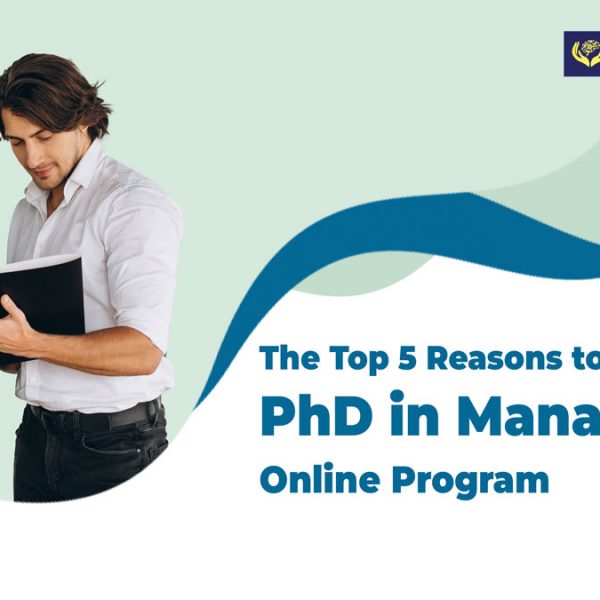
Top 5 Reasons to Pursue an Online PhD in Management Program

Unlocking Potential: Why Pursue a PhD in Management at TAU-UCN?

Unlocking Success: Your Roadmap to a Ph.D. in Management

Paving the Path to Success: Top Management Courses for Future PhD Hopefuls

Maximizing Potential: Why Working Professionals Choose an Online DBA Degree

Master Your Destiny: Propel Your Career with an Online Doctor of Business Administration
- More Networks

What makes CV different? Social Experiment by CV

#ChunoApnaSahi
Explore Programs
Top Universities

Compare India's leading universities on a single platform within two minutes.
100+ Universities
30X comparison factors
Free expert consultation
Quick Loan facility
Celebrating 1 lac admissions
Post Admission Support
CV Exclusive Community
Job + Internship Portal

Top PhD After MBA universities comparison to placement support everything at one place
- No-Cost EMI From ₹4,999/-
- Comparison on 30+ Factors

Updated at : June 25, 2024
Ph.D. After MBA
Watch Video
Listen Podcast
No. of Universities
Course Duration
3 - 5 Years
Eligibility
Graduation or Equivalent
Learning Mode
EMI Facility
- Program Overview
- Key Highlights
- Subjects/Syllabus
- Eligibility & Duration
- Program Fees
- Admission Procedure
- Education Loan/EMIs
- Career Scope
PhD After MBA Program Overview
PhD after MBA might sound new to you but its impact on a professional’s life has already created a history. After completing an MBA program in any domain in regular or online mode, you can apply for a PhD program. However, to become eligible for this course, you need to have a good score in some national-level entrance exams of GATE/UGC-NET/CSIR-NET. For a PhD abroad , you need to score well on the English level proficiency tests like TOEFL and IELTS and the entrance exam of GRE. In India, it takes around 5 years to complete a PhD program while abroad it ranges between 4 to 7 years.
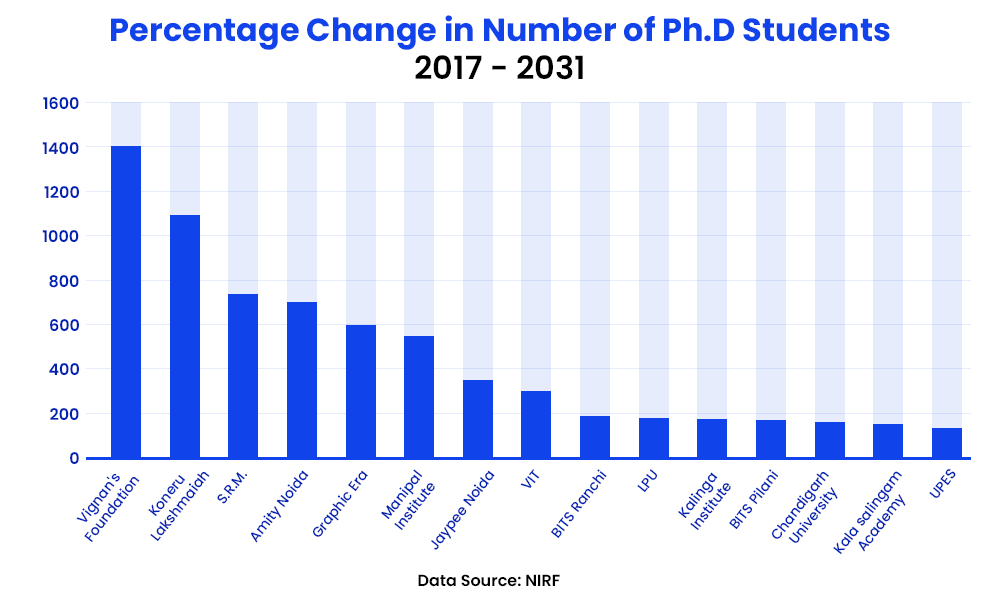
Among the top management universities in India, FMS New Delhi, IIMs, BHU, and IITs are some renowned ones offering PhD after MBA. They provide learners with a list of top specializations in the business field including PhD Finance, PhD Operation Management, PhD Marketing, PhD Human Resource Management, and many others.
Here are some key aspects that you must know about PhD after MBA:
| Course Level | Doctorate |
| Modes Available | Regular, Online, and Hybrid |
| Duration | 5 Years |
| Eligibility | Postgraduate degree with relevant subjects. |
| Admission Process | Entrance-based (GATE/UGC-NET/CSIR-NET) |
| Average Fee | INR 15,000 - INR 5,00,000 |
| Job Profiles | Managing Director, Chief Operating Officer, Finance Manager, Professor, Chief Executive Officer, etc. |
| Average Salary | INR 5-24 Lakhs |
Making it easy for PhD after MBA aspirants, some foreign universities have launched an online version of it in the name of Doctor of Business Administration (DBA) online which also adds a “Dr.” title to your name in just 3 years and is equally credible as a regular PhD program in India. An online DBA is not offered by Indian universities as it is yet not approved by UGC but on completing it from an accredited foreign university, it will be completely recognized in the global industry.
Why Opt for a Ph.D. After MBA?
Completing an MBA will help you explore senior management positions in your functional domain but doing a PhD after MBA will bring new opportunities for you! It will help you climb up the organizational ladder and become a suitable fit for CXO positions. Based on the specialization you choose in your PhD program, you will have a variety of options not only in the business sector but also in the research and teaching fields. Above all, a PhD after MBA will increase your earning potential by multiple times which otherwise would take several years to achieve.
All of the above-mentioned benefits can also be explored with an online DBA program which is a more accessible and affordable version of PhD. Its entrance-free admission procedure and short duration of 3 years encourage a large number of candidates to opt for it.
Who Should Do a Ph.D. After MBA?
All fresh MBA graduates and working professionals serving any business domain can apply for a PhD program. The only restriction that is there is they need to clear the entrance exams with the minimum cut-off score to get admission to their desired university and specialization.
With an online DBA program, you have the liberty to apply for it after your graduation, and the best part about it is that you do not have to appear for any entrance exam.
When To Do a Ph.D. After MBA?
If you are concerned about the age limit to apply for a PhD program, you must go through the age restrictions put on the entrance exams for it. For instance, for a UGC-NET exam (JRF), the maximum age limit is 30 years and on the other hand, a GATE exam has no specific age limit.
With an entrance-free admission process, an online DBA program makes all interested graduates apply for it at any age. This feature of the program has made even senior professionals apply for it.
Key Highlights of PhD After MBA In India
- Get recognized for your management expertise with a PhD after MBA program.
- Opt for your choice of specialization in PhD after completing an MBA in online, regular, or distance mode.
- Qualify for the UGC-NET or GATE Exam to take part in a reputed institute’s PhD program.
- Choose your major from a long list of PhD specializations including Finance, Operation Management, Marketing, Human Resource Management, etc.
- Develop a research-focused understanding of the business concepts and launch new methodologies for the betterment of the industries.
- Earn a “Dr.” title with the completion of PhD from top management institutes like FMS New Delhi, IIMs, BHU, IITs, and others.
- Jumpstart your career as a CEO, COO, and board of director upon completion of PhD after MBA.
- Enjoy the benefit of completing your PhD at any age with no age capping.
- Widen up your career chances in the research and teaching domain other than the business world with a PhD after MBA.
Admission Closing Soon
Compare & Enroll NOW
- To avoid paying 25% Late Fees on all the online courses
- To secure a seat in your dream university
- To avail of some amazing Early Benefits
PhD After MBA Course Subjects/Syllabus
The course structure of a PhD program is research-oriented and focused on the industrial aspects of the business. The syllabus of PhD offered at IIM Ahmedabad is provided here to help you get an overview of the program.
|
|
|
|
| |
Top Specializations of Ph.D. After MBA
There is a long list of specializations available in PhD programs based on the domain you choose. Here is a list of top specializations that you can opt for in PhD after MBA.
| PhD in Finance | PhD in Marketing |
| PhD in Healthcare Management | PhD in Accounting |
| PhD in Leadership and Strategy | PhD in Business and Data Analytics |
| PhD in Project Management | PhD in Cybersecurity |
| PhD in Sustainability | PhD in Data Science |
| PhD in International Business | PhD in Supply Chain |
| PhD in Human Resource | PhD in Generative AI |
| PhD in Social Impact Management | PhD in Technology Entrepreneurship |
All of the above-mentioned specializations are available in online DBA programs allowing you to opt for a domain of your choice.
PhD After MBA Eligibility & Duration
The eligibility criteria to apply for a PhD after MBA include the following points:
- A master’s degree in the related field from a UGC-recognized university or institution
- A minimum of 55% marks or equivalent grades in the master’s degree
- A good score in the entrance exams conducted for PhD program like NET, GATE, or any other university-specific exam
- For PhD abroad, candidates need to pass English Proficiency Tests such as IELTS, TOEFL, etc.
- A statement of Purpose (SOP), Letter of Recommendation (LOR), academic transcripts, and an updated resume are also needed for PhD abroad
- A good score on the GRE is needed for PhD abroad other than a master’s degree
To read the updated guidelines of UGC for undergraduate students, click here .
In case you want to skip these complications of understanding whether you are eligible for a PhD or not, go for an online DBA program that only demands a credible master’s or bachelor’s degree + work experience from an accredited university.
The duration of a PhD after MBA in India takes around 5 years. However, if you are planning to do it from foreign, you will be able to complete it in 4-7 years. To complete it in an even shorter period of 3 years, you can opt for an Online DBA program.
Benefits of learning from us
- Join CV Community for peer interaction
- Get placement support via webinars & networking sessions
- Dedicated CV Buddy for your queries
- One-on-One career mentorship sessions
- Ensures timely delivery of LMS & degree
- A career advisor for life
Program Fees for PhD After MBA
Starting at ₹ 6,776/month
Program Fee: ₹60,000 - ₹2,50,000
Low Cost EMI Available
Recommended
The fee package of the PhD program ranges between INR 15,000 and INR 5,00,00. This figure varies from university to university. If you have qualified for a PhD from a government institution like IGNOU or DU, your course will be completed under 1 lakhs. However, on going to a private institution, the cost of the program increases.
Online DBA programs are more expensive than regular PhD courses in India as these are offered by accredited international universities. It generally starts at INR 7 lakhs.
PhD After MBA Admission Procedure
The admission process for a PhD program begins with filling out the application form for the national-level research entrance exams like UGC-NET, GATE, etc., or university-specific ones. After cracking these exams, candidates will have to appear for an interview wherein they will present their research proposal to the mentors of the university they have been selected for. On completing the paperwork and other documentation formalities for grants or stipends, candidates will be allowed to start with their research work.
With an online DBA, you will have a simple admission process that will not involve any entrance exam or interview.
Trusted Information
We provide only authentic information from verified universities to save you from fraud.
Hassle-Free Admission Process
Enroll in your program via a simplified process guided by our expert counselors.
Pay Directly to the University
The guidance & support offered by us is completely free, so you can trust us & pay directly to the university.
CV Community at the Center
Join our telegram community to share your thoughts with other learners & alumni.
Growth of Online Education in India
- Online education in India is set to grow at a CAGR of 19.9% by 2030.
- Skill development and employment are the major driving forces for this growth.
- Higher education is gaining popularity in this online medium.
- Financially affordability is a significant contributor to this boom.
- The increased adoption of technologies, i.e., the Internet and smartphones, has increased accessibility significantly.
- The advantage of flexibility in terms of time and location is the key highlight.

Education Loan/EMI Facilities for PhD After MBA
In general, the universities offering PhD programs do not have an EMI option in their fee payment method. However, to help students financially, some of them have developed an installment-based fee structure through which they can pay their fees in part. Moreover, you can avail of a debit card or credit card EMI facility if applicable at your chosen university.
In an online DBA course, you will have the option of an education loan which adds to the accessibility of this program by making you pay the fee in easy EMIs.
Apply For No Cost EMI


Is PhD After MBA Worth it?
If you wish to retire from a respected designation in your career, a PhD after MBA is something you should think about! After an MBA, you become eligible for the senior management positions but with a PhD, you get the chance to take charge of the business strategies and model as a CEO or COO of the organization.
The research-focused learnings of the management concepts make you develop an innovative approach toward business issues. The choice of specialization in this highest degree program in the management field gives you the freedom to choose your domain. Upon completion of the PhD after the MBA, both your designation and the salary package increase by many folds. All of these offerings are also obtained after completing an online DBA after MBA. Thus, for a long-term and successful career, a PhD after MBA or an an online DBA after MBA is worth giving a shot!
- CV Advantages
College Vidya Advantages
Job Opportunity after PhD After MBA
Upon completing PhD after MBA, you not only earn a “Dr.” title but unlock some premium job designations that were not in your reach before. The career prospects that you have after a PhD will be the same after you complete an online DBA. Some of these job titles are listed below along with their annual package to give you an overview of the career prospects after a PhD/an online DBA.
|
|
|
| Market Research Analyst | 10 LPA |
| Business Consultant | 13.37 LPA |
| Business Operation Specialist | 14 LPA |
| Economist | 20 LPA |
| CEO | 24 LPA |
| COO | 37 LPA |
Top Recruiters for PhD After MBA
Top organizations in the business sector hire PhD candidates actively. These organizations admire the innovative way these PhD graduates use to tackle business issues. Their “out of the box” thinking puts them in the limelight for top recruiters globally. Online DBA holders also have a special place for top recruiters as their knowledge of global business trends adds significant value to their organizations.

Our students work at

Let's clear up some doubts about PhD After MBA
1 is phd after mba a good option.
Yes, getting a PhD after MBA adds new career opportunities to your list. It makes you climb up the organizational ladder to CXO positions and improves your salary package at the same time.
2 Which specializations can I choose in PhD after MBA?
There are numerous specializations available in the management domain of PhD for MBA graduates which include Finance, Marketing, Human Resource Management, Operation Management, and many more.
3 Which entrance exams are considered for PhD after MBA?
To qualify as a PhD candidate, you need to score well in UGC-NET, GATE, GRE, or other research-oriented entrance exams.
4 How long does a PhD after MBA take to complete?
In India, it takes around 5 years to complete a PhD but abroad, this period ranges between 4-7 years depending on your chosen university.
5 Can I do PhD after MBA without a master's?
As per the earlier UGC guidelines, online master’s degree holders with a minimum of 55% marks were eligible to apply for PhD but with the updated guidelines 4-year graduates with 75% marks can also apply for it.
Every query is essential.
Our team of experts, or experienced individuals, will answer it within 24 hours.
By clicking, you agree to our Privacy Policy , & Our Trust
The intend of College Vidya is to provide unbiased precise information & comparative guidance on Universities and its Programs of Study to the Admission Aspirants. The contents of the College vidya Site, such as Texts, Graphics, Images, Blogs, Videos, University Logos, and other materials contained on College vidya Site (collectively, “Content”) are for information purpose only. The content is not intended to be a substitute for in any form on offerings of its Academia Partner. Infringing on intellectual property or associated rights is not intended or deliberately acted upon. The information provided by College Vidya on www.collegevidya.com or any of its mobile or any other applications is for general information purposes only. All information on the site and our mobile application is provided in good faith with accuracy and to the best of our knowledge, however, we make nor representation or warranty of any kind, express or implied, regarding the accuracy, adequacy, validity, reliability, completeness of any information on the Site or our mobile application. College vidya & its fraternity will not be liable for any errors or omissions and damages or losses resultant if any from the usage of its information.
Build with . Made in India.

PhD after MBA
I was not that excited about exploring PhD domain before I had a realtime conversation with the one who is already pursuing from IIM Kozhikode. There are tons of opportunities available once you pursue a PhD after MBA. Let’s explore more about Why PhD after MBA, Eligibility Criteria and Career Scope.
The following information is pertaining to the PhD after an MBA from India – specifically to IIMs. We will add more information about PhD after MBA from Abroad as well.
Why do a PhD after MBA?
After successful completion, the PhD program can open tons of opportunities in domains like academics, corporate, research, consulting, etc.
The jobs roles available are Management Consultant, Business Professor, Policy Analyst, etc.
Eligibility Criteria for a PhD after MBA
| Entry Qualification | Minimum Duration |
| Master’s 0r Postgraduate Diploma | 2 years |
| Professional qualification – CA/ ICWA/CS with B.Com/Degree | 3 years |
| B.Tech./ 4 year Degree with 6.5 CGPA or equivalent | 4 years |
The scores of CAT 2018, CAT 2019 and CAT 2020 are considered valid for application to the PhD. Program in 2021.
Standard Test Score not required if an applicant is:
- PGP Alumni of any IIM
- PGPX/PGP-PMP Alumni of any IIM where such courses are offered
(Part-time/Distance Learning programs of IIM are not taken into consideration)
How to do a PhD after MBA?
- The candidate must fit into Eligibility criteria as discussed
- The candidate is required to take the CAT exam. The NRIs and foreign students can apply through GMAT.
- The following table will help you understand the exams accepted instead of CAT
| Area of high levels of specialization | Test accepted instead of CAT |
| Agriculture | GRE/GMAT/ UGC-JRF (Economics/ Development Studies/Development Economics/ Business Economics/ Management) ICAR-SRF (PGS – merit list for the award of SRF) |
| Finance & Accounting/ Marketing/ Strategy | GRE/GMAT |
| Economics | GRE/GMAT/GATE/UGC-JRF in relevant discipline |
| Human Resource Management/ Information Technology | GRE/GMAT/GATE |
| Innovation and Management in Education | GRE/GMAT/GATE/UGC-JRF in relevant discipline |
| Organizational Behaviour | GRE/GMAT/UGC-JRF in relevant discipline |
| Production and Quantitative Methods | GRE/GMAT/GATE/UGC- NET JRF in Mathematical Sciences |
| Public Systems Group | GRE/GMAT/GATE/UGC-JRF (in relevant discipline) |
Stipend for PhD after MBA
- The stipend for IIMs varies in the range of Rs. 30,000
- The is an additional amount entitled that covers expenses of attending international conference or workshops, etc.
*We will be adding more information to this article, please post your questions in the comment section.
List of Top MBA Colleges in Hyderabad - Fees, Salary, Admissions
Management lessons from dussehra, related articles, mba vs pgdm – which is better, which mba specialization is best highest paying mba specialization.
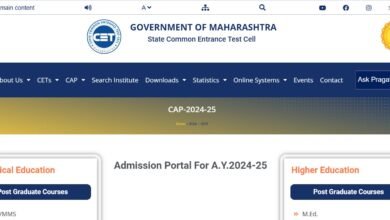
What is Institute Level Seat and How to Apply for it?

Free CAT Mock Test Series
Leave a reply cancel reply.
Your email address will not be published. Required fields are marked *
Save my name, email, and website in this browser for the next time I comment.
- MMS Syllabus Mumbai University 2022 January 29, 2022
- What is Media Planning? Job Role of Media Planner June 5, 2021
- How to select best Digital Marketing Agency? Top List in India April 23, 2023

45,000+ students realised their study abroad dream with us. Take the first step today
Here’s your new year gift, one app for all your, study abroad needs, start your journey, track your progress, grow with the community and so much more.

Verification Code
An OTP has been sent to your registered mobile no. Please verify

Thanks for your comment !
Our team will review it before it's shown to our readers.

MBA after PhD

- Updated on
- Jul 4, 2024
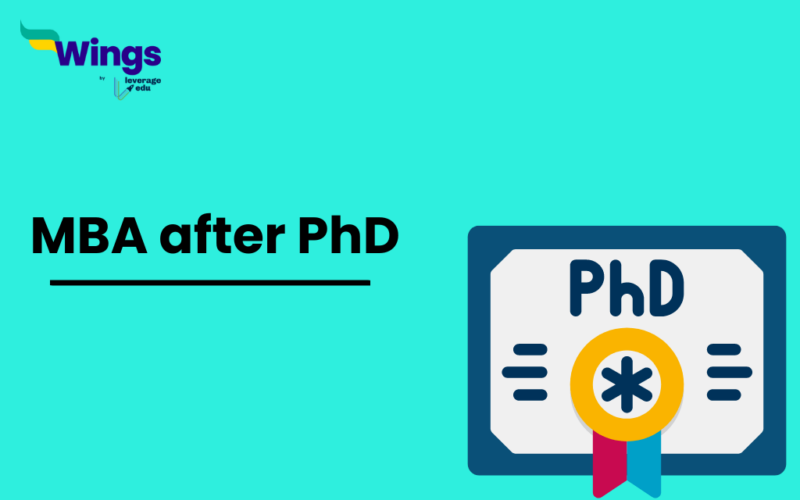
A qualification, regardless of level and field of study, will never be a waste; one just needs to realize how to use it wisely and appropriately. As we navigate through life we shift our perspective and interests, our education choices, therefore, need to reflect this.
Usually, students with PhD do not plan to study ahead, but MBA is an opportunity that it is not easy to let go of, especially as it allows professionals to enter the corporate world with great opportunities ahead. In this blog, let us understand what it takes to study MBA after Ph.D .
This Blog Includes:
Benefits of mba after ph.d., who earns more mba or ph.d., top mba entrance exams, top indian universities for mba, top foreign universities for mba, top 6 countries to study mba after phd.
Ph.D. armed you with tenacity, discipline, critical analysis of information, and knowledge unparalleled by anyone else in the exact topic of your research. It qualified one as a specialist. It provides a sound research focus, whereas MBA on the other hand provides a sound business and leadership focus.
It is understandable that a PhD is the highest degree that one can have, but there is no hard and fast rule that one cannot pursue MBA after completing their PhD. Ph.D. might restrict you in one field and does not let you explore a job in another field.
Also, some upper management positions may require some business expertise and if your Ph.D. is not based in the business field, considering an MBA can give you that push in the business area. An MBA after a PhD not only offers great career opportunities but also guarantees a highly paid job and lets you develop a strong professional network. An
MBA will offer you a wealth of advantages, especially when it’s from a well-reputed business school . There are many good reasons for pursuing an MBA after PhD and here is a detailed guide about how doing an MBA can benefit your career:
- Develop advanced and flexible management skills.
- It gives you greater business network opportunities.
- It helps you make the transition from academia to industry.
- One can start their own company from scratch.
Here is a table containing general differences between an MBA and a PhD
| is a Generalist Degree. | Ph.D. is a Specialist Degree. |
| MBA usually takes two year to complete full time. | Ph.D. can take four years |
| MBA students will usually research a broad range of subjects. | Ph.D. students will only focus on one subject. |
| MBA programs do offer some scholarships, but the total cost for this is undeniably quite high. | Ph.D. programs on another hand can be cheaper, as major universities offer full scholarships for outstanding applicants. |
| The MBA program requires students to sit for exams like , . | requires you to have an undergraduate or postgraduate degree, but you will not be expected to sit for any entrance exams. |
| MBA degree holders can have careers in both the academic and corporate sectors. | Most Ph.D. graduates will enter into research or academic career. |
| It can be done in both offline and online mode. | It can also be done in both online and offline mode. |
Incorporate sector a Ph.D. holder draws an average salary of 10 Lakhs in India. Whereas with 1 to 4 years of experience, early career MBA salary in India can grow up to 7-8 Lakhs.
There are various MBA entrance exams that are open with admission opportunities in top B-School. The list of top MBA exams is given below:
- National Level: CAT , CMAT , and MAT
- International Level: GMAT, GRE , IELTS , and TOEFL
- University/College Level: XAT , SNAP , IIFT
The table below lists the application dates and exam dates of top MBA exams:
| CAT 2024 | Likely Nov 2024 | |
| CMAT 2024 | 15th May 2024 | |
| MAT 2024 | 24 Feb to 25 Aug 2024 | |
| SNAP 2024 | December 2024 | |
| XAT 2024 | 7 January 2024 | |
| IIFT 2024 | TBD |
When we talk about MBA in India, the first university which struck our mind is IIM. However, with time numerous universities have made it to the list of top MBA colleges. Below are the top B-Schools in India with their flagship program, entrance exams, and great salary packages post-MBA.
- IIM Ahmedabad
- IIM Bangalore
- IIM Calcutta
- XLRI Xavier School of Management, Jamshedpur
- Indian School of Business (ISB), Hyderabad
- SPIMJR, Mumbai
- IIM Kozhikode
Pursuing an MBA in a foreign university offers you the opportunity to have a globally recognized degree and explore job opportunities abroad with a higher salary, and career growth. MBA abroad requires a Bachelor’s degree and work experience for at least 4-5 years. Here we have listed some of the top universities you can consider for pursuing an MBA:
- The Wharton School, Pennsylvania
- London Business School, London (UK)
- Stanford Graduate School of Business, Stanford (MA)
- MIT Management, Cambridge (MA)
- Harvard Business School, Boston (MA)
- UC Berkeley, Berkeley (CA)
- Columbia Business School, New York
- F rankfurt School of Finance & Management, Germany
- Nanyang Technological University (NTU)
For aspirants who are planning to get an MBA degree, here is the list of best places to study MBA for a successful career in the future:
- United Kingdom
- United States
Also Read: Best Country for MBA
The Ph.D. is a research-oriented path, while MBA is a practice of business. Learning more about non-profit marketing through a business program might help you advance in your career. An MBA is very general/broad in nature, it covers many subjects, most of which have an entire master’s degree path in and of itself whereas a Ph.D. is so much more about only one thing.
Leading business schools in India like IIMs, XLRI, NMIMS, etc. offer financial help to deserving candidates to complete their management studies. Different universities offer different scholarship programs for students belonging to every category. Candidates who have obtained a first degree of at least upper second class honors standard, or a second-class degree and a Master’s degree or relevant postgraduate qualification are eligible for the Ph.D. scholarships of this program.
The most basic requirement for pursuing an MBA abroad is a Bachelor’s degree from a recognized university; preferably a full-time degree from a reputed institute. The second major pre-requisite of a foreign MBA is substantial work experience of a minimum of 3-5 years.
Yes, anyone can pursue an MBA after their doctoral degree. An MBA can boost your career journey, and skills learned through MBA are geared towards the industry.
Related Reads
We hope you understand that it is possible to study MBA after PhD in this blog. Follow Leverage Edu India’s no. 1 leading educational platform for related informative blogs. Please put your comments below in the comment section.
Team Leverage Edu
Leave a Reply Cancel reply
Save my name, email, and website in this browser for the next time I comment.
Contact no. *

Leaving already?
8 Universities with higher ROI than IITs and IIMs
Grab this one-time opportunity to download this ebook
Connect With Us
45,000+ students realised their study abroad dream with us. take the first step today..

Resend OTP in

Need help with?
Study abroad.
UK, Canada, US & More
IELTS, GRE, GMAT & More
Scholarship, Loans & Forex
Country Preference
New Zealand
Which English test are you planning to take?
Which academic test are you planning to take.
Not Sure yet
When are you planning to take the exam?
Already booked my exam slot
Within 2 Months
Want to learn about the test
Which Degree do you wish to pursue?
When do you want to start studying abroad.
September 2024
January 2025
What is your budget to study abroad?

How would you describe this article ?
Please rate this article
We would like to hear more.

NEWS UPDATES | ADMISSION OPEN FOR BATCH 2024-26 >> Our MCA Student Mr. Samarth Gupta secured 1 st rank in Coding Ninjas IIT Bombay >>

Home >> Blogs Details
PHD After MBA: How to Get Admission for PHD

Pursuing a PhD after completing your MBA is an excellent choice. However, you might have many questions about how to proceed. Let me guide you through the process of obtaining your doctoral degree after your MBA. This guide is not just for MBA graduates; it can also apply to anyone with a postgraduate degree. However, it specifically focuses on pursuing a PhD after an MBA.
Today, there is a growing trend of people pursuing and considering a PhD after their MBA. This trend is also evident in the corporate world, where many directors and managers strive to obtain their PhD degrees. This article will address all your questions about how to pursue a PhD after an MBA.
Can I Do PhD After MBA?
Yes, you can pursue a PhD after your MBA. This is often the first question that arises when you complete your MBA. In fact, anyone with a postgraduate degree can apply for PhD admission. Although there are various other requirements to pursue a PhD, these requirements vary from university to university.
It is an excellent choice to pursue a PhD after your MBA. Many people prefer to continue their research in their area of specialization. For example, someone who has completed an MBA in HR may choose to pursue a PhD in HR.
It is not necessary to continue research in the same specialization as your MBA. For example, can you pursue a PhD in psychology after an MBA? The short answer is yes, but you need to convince the PhD panel that you are qualified to conduct research in psychology. If you have a bachelor's degree in psychology, you are already qualified. Another approach is to include a management perspective in your psychology research topic, such as "A Study on Consumer Psychology while Investing in State Government Bonds during a Recession."
How To Do PhD After MBA?
Getting admission for a PhD can be a tedious and lengthy process, involving multiple steps from submitting a research proposal to attending PhD interviews. Here are the basic requirements for PhD admission. Even if you have pursued a distance MBA, you can still apply for a PhD if your distance MBA was from a UGC-accredited institution or university.
The eligibility for PhD after MBA is as follows:
- PhD Requirement
- Any Postgraduation with Minimum 55%
- UGC NET or SET or MPhil
The next steps to secure your PhD admission after MBA are:
1. Select your university
Before starting your PhD journey, you need to select the university where you want to pursue your PhD. In India, there are several universities that offer PhDs in Management. Here are a few:
| Sr. No. | Name of the University |
| 1 |
|
| 2 |
|
| 3 |
|
| 4 |
|
| 5 |
|
| 6 |
|
| 7 |
|
There are more than 1,000 universities in India, most of which offer PhD programs. When choosing a university, consider its specialization in your research subject. Many industry managers opt for Executive or Part-Time PhDs while maintaining their regular jobs.
The next step is to apply for admission with your PhD proposal, which includes the title of your study, methodology, and literature review. You are eligible to apply for a PhD in the specialization you pursued during your MBA. Here are some specializations in PhD in Management:
As you have completed your MBA, you are eligible to apply for a PhD in the specialization that you had taken during your MBA. Below are the specializations that you can choose in PhD in Management:
| Sr. No. | PhD Specialization |
| 1 | PhD in Marketing Management |
| 2 | PhD in Human Resource Management (HR) |
| 3 | PhD in Operation and Supply Chain Management |
| 4 | PhD in Business Analytics |
| 5 | PhD in Financial Management |
For example, if you completed an MBA in Finance, you could pursue a PhD in Finance. When you submit your research proposal, the next step would be your PhD interview.
3. PhD Interview
The PhD admission process varies from university to university, so it is necessary to follow the specific university’s guidelines. Your PhD interview will be conducted by a panel where you will discuss your PhD topic. The panel will assess if you are qualified to conduct the research you have proposed. The interview is extensive, allowing the panel and your PhD supervisor to understand the new aspects you can bring to your research.
4. Admission Confirmation
After your PhD interview, you will be informed about your admission status. You can then process your documents and get admitted to the PhD program. Completing a PhD typically takes a minimum of 3 years and a maximum of 5 years.
Career Options After PhD
There are several career options after completing your PhD. Research and academia are the most prominent career paths after a PhD. Being a consultant is another area that can be very helpful if you pursue it.
Apart from these, you can also apply for various Tor for applying for consultancy and research projects of Government or non-Government Organisations.
How Many Years for PhD After MBA?
The duration of a PhD depends on various factors, but for social sciences, it is generally not very long. Completing your PhD after an MBA should take a minimum of 3 years and a maximum of 5 years, provided you meet all the PhD requirements and work closely with your PhD guide.
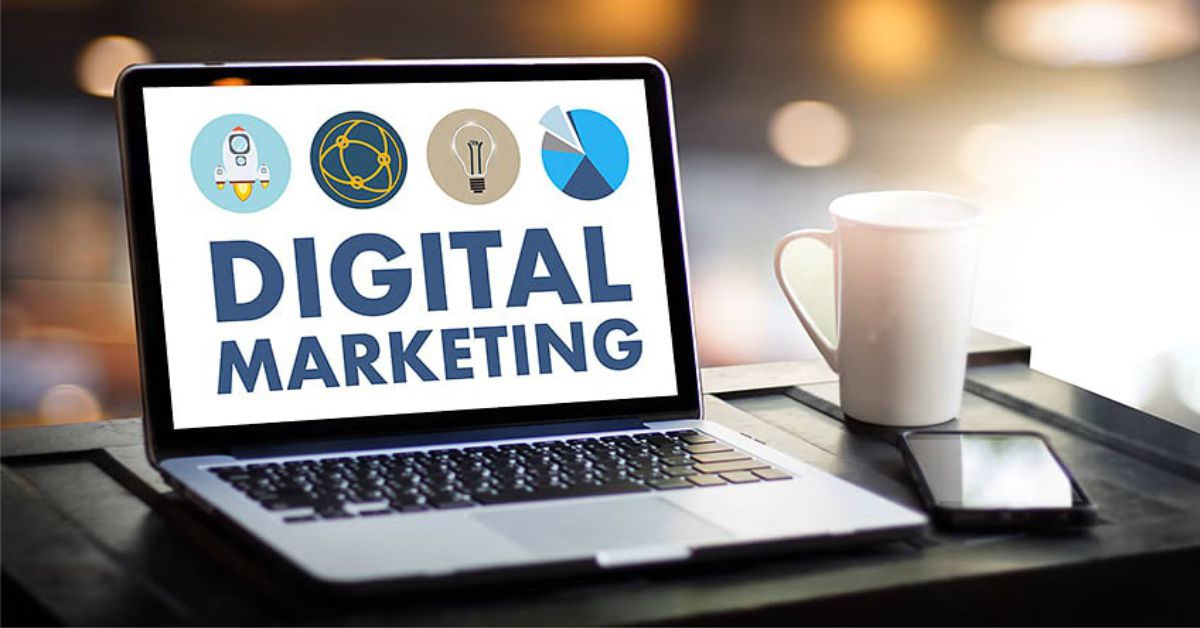
Digital Marketing Career Options
High-paying Digital Marketing Careers, Freelancing, and Agency-building Opportunities. Learn About Key Roles, Salaries, and Skills Needed
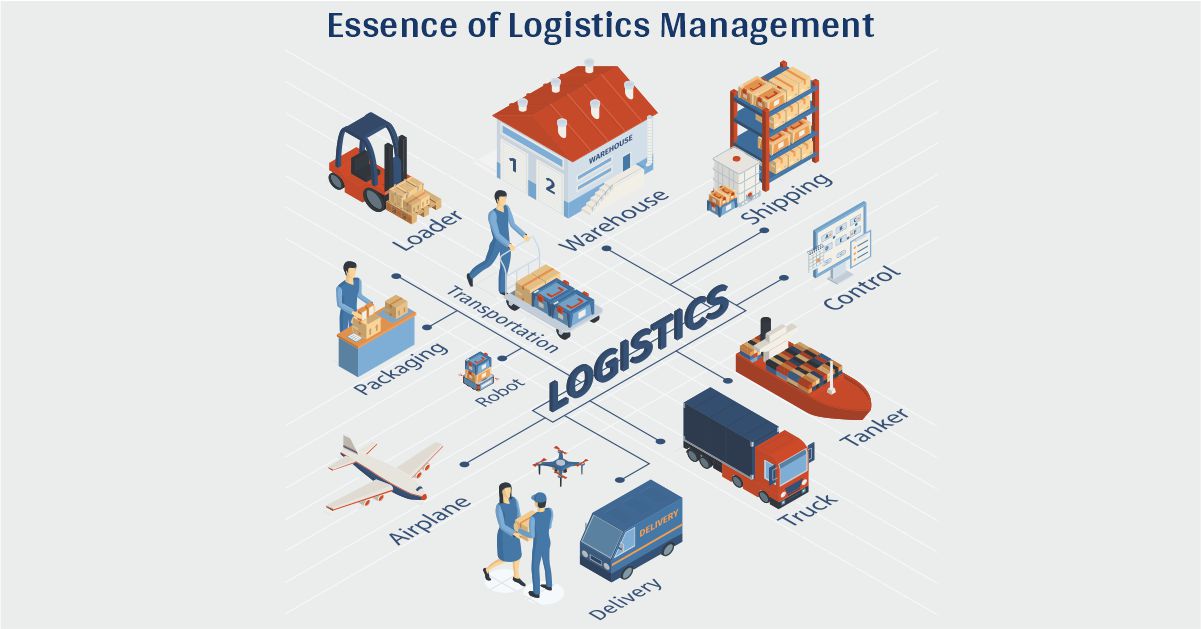
Title: Essence of Logistics Management
Explore the Pivotal Role of Logistics Management in Modern Supply Chains, Driving Efficiency, Cost-effectiveness, and Customer Satisfaction.
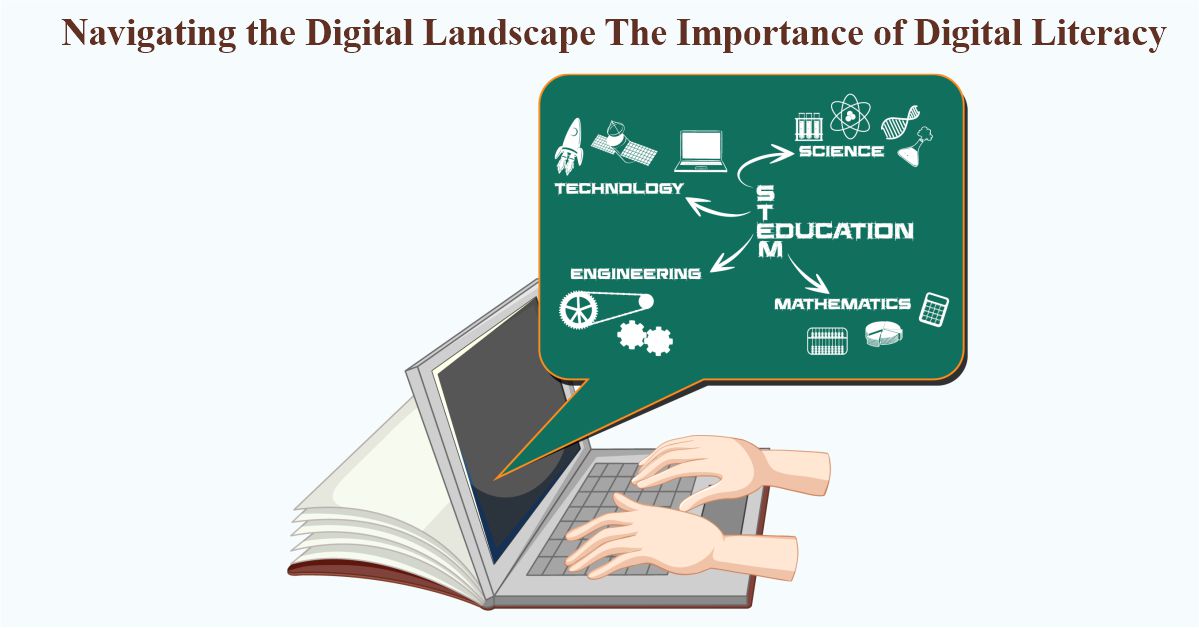
Navigating the Digital Landscape: the Importance of Digital Literacy
Explore the Significance of Digital Literacy in Our Evolving World. Enhance Your Skills to Navigate the Digital Landscape Responsibly, Fostering a Positive Online Community and Thriving in the Interconnected Society.
Question and Answer forum for K12 Students

Doing a Ph.D. After MBA | Eligibility Criteria, Career Scope, Employment And Salary
Doing A Ph.D. After MBA: The ‘road less taken’ can be simply called for Ph.D. after MBA. Not many people is seen to pursue a Ph.D. in Commerce; as it is a field that does not attract and relatively unknown many pursuers.
In the academic field, Ph.D. after MBA is more useful than a professional one. initially; The ROI and opportunity cost for this course are also not up to par, however, by saying that, it does not mean that the course is not worth it or useless. If a Ph.D. is done right then it can be quite rewarding.
Ph.D. after MBA or Management
- Ph.D. Course Duration after MBA
Eligibility Criteria for Ph.D. After MBA
Can one do a ph.d. after mba, after mba available top ph.d. courses, how to do a ph.d. after mba, ph.d. after mba in india, can i actually do a ph.d. after distance mba, ph.d. after mba – in distance education.
- Ph.D. After MBA Abroad – Entrance Exams & Admission Process
- Top-Most Abroad Universities for Pursuing PhD after MBA
- Best Countries to Study PhD after MBA Abroad
- Ph.D. After MBA in USA
Ph.D. After MBA in Australia
Ph.d. after mba in germany, ph.d. after mba finance.
- Scope Of Ph.D. after MBA in Finance
Ph.D. in Management
- Career Scope, Employment, and Salary for Doing a Ph.D. after MBA
- FAQ’s on Doing A Ph.D. after MBA
As one may expect it to be, Ph.D. after MBA may not be as advantageous. After getting done with an MBA, rather than pursue a Ph.D., many prefer to increase their work experience, but if you are interested in doing research in the field of your interest, a Ph.D. may be the perfect course for a person to take up.
Ph.D. researchers or individuals also get a chance to do individual research and study, apart from the extensive knowledge which the course provides, which puts them quite apart from other managers.
- The course requires a lot of dedication and rigorous hard work in Ph.D.
- A lot of time needs to be invested by someone with a Ph.D., which can be tedious.
- The Ph.D. course combines practical application with theoretical knowledge.
- There are many practical methods and approaches like field studies, econometrics, experimental methods, etc., which are mostly used during Ph. D.s.
- For those who want to teach Management, Ph.D. is for them.
- The profession of the Professor is most sought after and reputable.
- Ph.D. researchers also work as consultants in top firms.
- Ph.D. increases their analytical skills and trains researchers.
- Because of their skillset, positions in analytics are offered commonly to Ph.D. researchers.
- One may not quite earn much before getting tenure, and the growth is considerably slow.
Do Refer: Career Objective for MBA

Ph.D. Course Duration After MBA
Depending on the research topic, methodologies, and time and labor investment, the duration for Ph.D. after MBA may vary.
On average, it may take 4 to 5 years for the completion of a Ph.D.. Depending on the country and institution, the duration may also vary.
Country Duration (Average)
- India – 3 years
- USA – 5-7 years
- UK – 3-4 years
- Australia – 4-6 years
- Germany – 3-5 Years
Eligibility Criteria for a Ph.D. after an MBA must be an MBA degree, as one may assume. But that’s not so.
There are many other criteria for eligibility, as well. To pursue a Ph.D. after MBA, one must fulfill being eligible for a Ph.D. after MBA, and the following are the criteria.
- One must have an acceptable TOEFL or IELTS exam score to prove their proficiency in the English language.
- One must also have a respectable, which may vary as per the university of GRE/GMAT score.
- Students must also submit their essays, transcript and SOP.
- Letters of Recommendation are required. At least 2 to 3 times to be submitted by the aspiring student.
- Oftentimes, an interview is conducted either online via video call or physically to test student’s eligibility and knowledge.
- Students must have a thesis statement or an idea and a dissertation ready.
- It is crucial that the students are well versed to have a clear idea and what they want to do about their objectives.
- The acceptance rate at top-rated Business Schools is around 3 to 5%.
Yes, one actually can do a Ph.D. after MBA. There are various business schools worldwide that offer Ph.D. programs after an MBA, which can be pursued.
For the MBA itself, some years of work experience is required by many schools. The Student may already have the direction they want to take in their life by choosing to pursue an MBA.
A Ph.D. after an MBA is not quite a popular choice, but many students still decide to pursue the research either for better opportunities or out of interest. To pursue a Ph.D., the criteria for eligibility include more than 50% or more marks in your post-graduation, and students are also required to take up an entrance exam. The field of Ph.D. is open for the Student or for anyone who has done an MBA.
A student may choose from several Ph.D. courses after MBA. Due to its vast scope, there is no dearth of specialization in the field of management.
As the Ph.D. in Management is an unexplored field, each research in each area is equally important.
There are several available courses one may take, like:
- Entrepreneurship
- Human Resource Management
- Commercial Law
- Operational Research
- Healthcare and Management
- Organizational Behaviour
- Computer Science
- Engineering
- Political Science
For students who actually want to do a Ph.D. after their MBA is done, there are many options. It is important that for the duration of 2 years, the MBA course the candidate has done.
The students must choose their work and field of interest in that direction and also most important.
Students always have the choice to pursue a Ph.D. in abroad or India. The application process for both remains more or less the same. To do a Ph.D. after an MBA abroad, one has to additionally give language proficiency exams like IELTS or TOEFL and exams like GMAT or GRE.
For India, exams like CAT are applicable.

- One must have a good score in their CAT exam and a two-year MBA degree.
- For admission in their Ph.D. courses, GATE or even UGC NET may be required at some top IIMs.
- A Ph.D. may actually vary from 3 to 5 years on average, and it is important to note that the duration.
- In the first year of Ph.D., the candidates are trained in research methodologies and subjects, etc. and are mostly dedicated to the coursework.
- In the second year, one may choose the area in which they will be conduction research and their specialization.
- It is often advisable that students actually choose the area for research in which they have specialized during their MBA. It is, however, not quite compulsory.
- A Ph.D. thesis is the most essential part of any Ph.D., and during their second year only, it is important that students start developing it.
- In the third year, after they have researched and collected data, a student is asked to present their thesis statement.
- After the first six months of the third year, students are free to write their research papers and Ph.D. and do their research.
- The whole process can be quite time-consuming, but the only trick here is to be very resilient.
- Yes, you can obviously do a Ph.D. after a distance MBA.
- The institute must be recognized by the UGC.
- Universities are not allowed to differentiate between the degrees.
- The degree earned and mentioned in the eligibility criteria must be in tandem.
- As the process for regular courses, the application process is as same.
- Candidates must submit their essays, SOPs, mark sheets, documents, etc., like any other regular candidate.
- Mostly on entrance exams and interviews, the admission in a Ph.D. program is based.
- Over the ones who did pursue their degrees via distance education mode, Some institutes may prefer regular students.
- The decision is solely based on the discretion of the university to select a candidate or not.
In Distance Education, one can definitely do a Ph.D. after MBA, but few things actually need to be taken into consideration.
It is important and mandatory that the institution from where the candidate has pursued their MBA in Distance education form is recognized by any other supreme commission as relevant to the country or by the UGC.
Also, for the Ph.D. program, one is applying to, the degree must match the eligibility criteria as well.
Ph.D. After MBA Abroad – Entrance Exams & Admission Process:
If you are actually planning to pursue a Ph.D. after an MBA, especially from abroad, then the following points will help and guide you through the application process and entrance exams:
- For global universities, the application process is very different from the universities of India. You actually don’t have to give any entrance exam to pursue a Ph.D. after an MBA from abroad; rather, the GMAT / GRE score is needed to submit.
- Previous project and research work matter, LORs, SOPs, and a lot when you are actually looking to pursue a Ph.D. abroad. They increase the chances of getting selected by making your profile strong.
- For Ph.D. programs, most of the universities have a 3-5% acceptance rate. Thus, it is vital to make your application strong; get in touch with experts if you need any help regarding the same.
- You need to work on your specific thesis, submit it in the provided duration as the curriculum more or less remains the same in Ph.D., and complete your Ph.D. after MBA.
Top-Most Abroad Universities for Pursuing Ph.D. after MBA
For better assistance at the time of your research on Ph.D. Courses after completion of MBA, we have enlisted some of the significant academic universities that are globally famous for their advanced specialized courses on Ph.D. after MBA:
| Harvard University, US | Pacific States University, US |
| Technical University of Munich, Germany | INSEAD, France |
| Robert Gordon University, UK | University of Wales, UK |
| Southern Illinois University, US | ISEG, Portugal |
| Taylor’s University, Malaysia | Heidelberg University, Germany |
| Alliant International University | University of California- Berkeley |
Best Countries to Study Ph.D. after MBA Abroad
Most of the popular abroad destinations for Ph.D. studies are UK, USA, Australia, Germany, and Canada. These countries are notable for their research doctoral courses so choosing the best country to study Ph.D. is a crucial decision. So, decide carefully by doing deeper research about the course and universities in all countries. Let’s have a glance at the top countries to study Ph.D. after MBA and their popular research universities below for some idea:
Ph.D. After MBA in the USA
Ph.D. after MBA in the USA is the most popular place; because of a highly research-friendly environment, it especially is a great place to pursue a Ph.D. after an MBA.
The USA offers students unlimited data and resources to facilitate their research as it is home to the top business schools. The amenities are quite good here, which are provided to Ph.D. researchers.
- University of Pennsylvania
- Harvard University
- Stanford University
- The University of California
- Columbia University
- Kellogg School of Management
- The University of Chicago
- Washington University
- Cornell University
- University of Michigan
Ph.D. after MBA in Australia is also home to many great universities, and it is a very pleasant place to be at.
Ph.D. programs after MBA are offered by many great B-schools present. For applying practical methods, there is a lot of scopes and here because of the way corporates and businesses are run here.
Students will be provided with quite a lot of opportunities to collect primary as well as secondary data and conduct researches.
- Australian National University
- UNSW Sydney
- University of Western Australia
- University of Sydney
- University of Melbourne
- University of Queensland
- Monash University
- University of Adelaide
- Queensland University of Technology
- University of Canberra
Probably the best place to pursue a Ph.D. after an MBA in Germany because of the varieties of facilities like the grant which are made available for students studying.
Germany has the best management programs and boasts of some of the best universities in the world as well. Many universities in Germany offer great guidance to students to help them in their research work and Ph.D. in management.
- University of Berlin
- University of Hamburg
- Technical University of Munich
- Heidelberg University
- Humboldt University of Berlin
- Karlsruhe Institute of Technology
- RWTH Aachen University
- University of Freiburg
- Bielefeld University
One of the topmost and popular specializations is a Ph.D. after MBA in Finance. The scope is vast, and the opportunities are quite endless.
Though the subject for those interested may seem challenging, it has a plethora of research ideas and opportunities.
Expertise in subjects like Mathematics and Economics is required by Ph.D. in Finance.
The top universities which are offering this program are:
- Indian Institute of Foreign Trade
- Narsee Monjee Institute of Management Studies
- The Centurion University of Technology and Management
- Birla Institute of Technology and Science
- Indian Institute of Management, Ranchi
- Indian Institute of Foreign Trade (IIFT)
Scope Of Ph.D. After MBA in Finance
Opportunities after opportunities are present in Ph.D. after MBA in Finance. There is a wide and deep scope of opportunities, and many companies to hire because of their skill and both practical and theoretical knowledge do look out for such candidates. Top companies seek to recruit candidates who have completed their Ph.D. in Finance and like the ones mentioned below .
- TATA Consultancy
- Genpact Technologies Ltd
One of the highest degrees of academic awarded in the study of management is a Ph.D. in management. For those seeking teaching careers and academic research as professors or faculty in the field of management at business schools worldwide, a Ph.D. in Management degree was designed.
Following are some Benefits of PhD after MBA
- Helps you become a better thinker: More than just consume what has been taught in the classes, a good Ph.D. in Management program encourages you to do more – it teaches you to become a good thinker and create more. One will achieve newer levels of critical thinking by moving past passive learning, which you can apply in new ways in your field of interest as well as your career.
- To gain an edge: A Ph.D. in Management is essential and immediately marketable, especially in today’s workforce, provide an asset that will give you a competitive advantage. A Ph.D. in Management proves the expertise in your field of study; you have an impressive level of credibility and a lifelong commitment to learning which will help you fulfill your professional goals.
- Become a competitive scholar-practitioner: A Ph.D. in Management will give you the confidence and knowledge but present at them instead of just attending academic conferences. You’ll discover your write a dissertation, may find yourself authoring peer-reviewed articles published in your field’s leading journals, and may have a scholarly voice.
- Skills enhancement: A Ph.D. in Management can actually help you enhance valuable skills and gain that are universally applicable to any kind of field. They are empowering you to make more of an impact in your current role by giving you expertise outside of your organization by the degree, which in turn helps people around you as well. You may find colleagues turning to you for guidance, Once you begin your studies.

Career Scope, Employment, and Salary for Doing a Ph.D. After MBA
Somewhere between 8 Lakhs to 18 Lakhs per annum, Ph.D. after MBA salary in India is depending upon whether you explore the academic domain working as a lecturer or academician or working in a corporate sector.
For graduates with a Ph.D. in Commerce-related specializations and Management below, we have elucidated upon the major employment sector:
- Teaching: A Ph.D.’s most popular career path post is that of becoming a professor or teacher. Most Ph. D.s in management or business pursue it in the first place to pursue a career in particular academics. Further, to hire Ph.D.’s like business school professors, most of the research universities prefer. Suppose you aim to become a part of Ivy League schools or other prestigious academic institutions because of this striking combination coupled with a few years of professional experience. In that case, you should definitely go for a Ph.D. degree after MBA. It can make you an ideal candidate for the position of lecturer or university professor at a business school. Nearly 75% of business ‘Ph.D. after MBA’ graduates at business schools become faculty members, to give a rough statistical description, and roughly 25% take jobs in the industry.
- Research: A Ph.D. involves extensive analysis and is quite a data-driven degree and in-depth assessment as it constitutes various submissions of a multiple research thesis as its incremental element. If you have planned to pursue a career in research, but combining it with a Ph.D. might give you the knowledge and expertise of both the research world as well as corporate, and an MBA is more of a route of professional to take. You can further enter various research sectors with a versatile skill set by getting the taste of both these areas, which will prove extremely useful in carrying out path-breaking contributions and case studies with the potential of bringing a newer light to the commercial industry.
- Corporate Sector: As a common myth, you might be told that in the professional world, a doctorate degree is of no use, but it is quite the opposite as a Ph.D. after an MBA can furnish you with the outstanding business acumen to fit the role of business consultants and analysts. As many of the doctoral scholars move further to become professors or researchers, only a small proportion of them head towards the industry. As this degree provides aspirants with the understanding of employing Ph.D. s derive wisdom from their theoretical and unique methodologies for analysis, which, when combined with the pragmatic training obtained during MBA, marks for a marvelous body of knowledge. You can explore varied prospects in entrepreneurship ventures as well as companies like SEC, JP Morgan Chase, McKinsey, and Morgan Stanley, which are known to hire Ph. D.s frequently.
FAQ’s on Doing A Ph.D. After MBA
Question 1. What Ph.D. should I get after my MBA?
Answer: For students who want to do a Ph.D. after their MBA is done, there are many options. The MBA course the candidate has done must be for the duration of 2 years, and it is important. The most common career path after that is chosen is teaching.
Question 2. Is an MBA higher than a Ph.D.?
Answer: Compared to a Ph.D. that takes 4-6 years, you can complete your MBA in 1- 2 years. It allows them to start their career far sooner for the student, so the MBA is considered advantageous.
Question 3. Can I do a Ph.D. while working?
Answer: Yes, you can do a Ph.D. while working, but this can only happen if you are keen to work. Working full time and doing a Ph.D. is not easy; you won’t make progress without constant effort.
Question 4. Can I do a Ph.D. at 40?
Answer: Yes, you can do a Ph.D. at the age of 40; most of the person who does this are mostly in the education sector. The only problem that comes up is that not all programs will be open for you.

- Study Abroad Get upto 50% discount on Visa Fees
- Top Universities & Colleges
- Abroad Exams
- Top Courses
- Read College Reviews
- Admission Alerts 2024
- Education Loan
- Institute (Counselling, Coaching and More)
- Ask a Question
- College Predictor
- Test Series
- Practice Questions
- Course Finder
- Scholarship
- All Courses
- B.Sc (Nursing)
PhD Specialization: List, Admissions, Eligibility, after MBA, in India, Fees, Jobs, Salary

Satyam Purwar
Content Curator
PhD degree or also known as doctor of philosophy, is a 3-4 years of professional and academic degree. Candidates must have a master’s degree or MPhil Degree in the area they want to specialize.
PhD Specializations are available in various fields such as Science, Commerce, Humanities, Engineering and Technology, Law, Business Management, and so on. The average fees in India is INR 50,000-2,00,000. See more: PhD Admissions
PhD Course graduate can secure jobs such as University professor, Industrial R&D Lab professionals, Start-Up mentors, Authors,, Senior research scientist and others in areas such as Universities, Colleges, Science centers, Statistical units, Plant Breeding centers, Equipment manufacturers, Newsagency, Pharmaceutical industry, Publishers, Software development, etc. The average salary one can secure is INR 4-15 LPA.
PhD Specializations: Course Highlights
| PhD Humanities | |
| PhD Science | |
| PhD Commerce | |
| PhD Engineering and Technology | |
| PhD Business Management | |
| PhD Law |
Top PhD Specializations in India
Phd humanities.
Phd in humanities is concerned with critically examining human thought and culture. The course deals with how art, music, literature, the arts, and philosophy affect the world we live in. Students pursuing a PhD focus more on abstract questions than on technical skills.
The students would be taught in depth the development of ideas and concepts, the functioning of a society, behavioural patterns and the challenges faced, human interactions and relationships, etc. This degree teaches in depth about humanity and evolution of culture and historical events throughout the centuries.
| Name of the institution | Location | Average Course Fee |
|---|---|---|
| Gujarat | INR 14,860 | |
| Rajasthan | INR 45,000 | |
| Kanpur | - | |
| Rajasthan | - | |
| Rajasthan | - | |
| Arunachal Pradesh | INR 3,85,000 | |
| National Institute of Advanced Studies (NIAS) | Kolkata | - |
| Punjab | INR 3,16,000 | |
| Chennai | - |
Admission Process
- Admissions will be done on the basis of merit list. The merit list marks will be calculated by adding the scores secured in the entrance examination, direct interview and marks obtained in qualifying examination.
See more: PhD Humanities Colleges
Eligibility Criteria
- Applicant should have at least earned 55% marks and above in M.A. or any degree equivalent to Humanities (50% in the case of SC/ST candidates)
- Applicants who have completed their Master’s degree in any relevant stream either of Science/Commerce/Engineering/Technology or MPhil Degree with an aggregate of 60% marks and above can apply for admission.
- Clearing the entrance examination such as GATE, NET , MET , ICPR, ICSSR, CSIR, etc. is a prerequisite for admission.
PhD Science
PhD Science is a doctorate level course with a duration of 3 to 5 years , which students from MSc or MTech background can pursue. It involves candidates to research on any one of the Science specialisations like Physics, Chemistry, Biology, etc.
The student will have to submit the research thesis at the end of the course to earn the PhD Science degree.
| Name of the institution | Location | Average Annual Fees |
|---|---|---|
| Kolkata | INR 23,000 - 38,000 | |
| Chennai | INR 6,000 | |
| Chennai | INR 36,000 | |
| Pune | INR 52,000 | |
| Chennai | INR 85,000 | |
| Chennai | INR 1,195 |
The admission process for PhD science is based on the entrance exam followed by an interview.
- This admission process is followed by many colleges or universities.
- Some of the entrance exams are UGC-NET, CSIR-UGC-NET, GATE , etc
See more: PhD Science Colleges
Eligibility Criteria
- The eligibility criteria for PhD in science is to score an aggregate score of minimum 55% at your postgraduate level.
PhD Commerce
Ph.D in Commerce is a doctorate course with a duration of minimum two years. certain universities require the candidates to complete the course within five years of time along with the thesis or research paper. Certain universities provide part time in PhD in commerce.
The PhD in Commerce subjects provides a greater insight in the field of commerce and accounting, finance, forecasting, management and budgeting. The course provides better quality education to the students, who can serve the needs of business and industry management.
After completing the course, a candidate can find jobs in fields of business, marketing and education. The most popular job positions for such candidates are lecturer, Professor, CEO, etc.
| Name of the institution | Location | Average course Fees |
|---|---|---|
| Chennai | INR 18,000 | |
| Bangalore | INR 30,000 | |
| Mumbai | INR 1,99,000 | |
| Bangalore | INR 90,000 | |
| Mumbai | INR 41,000 | |
| Coimbatore | - | |
| Chennai | INR 30,500 |
- The admissions for PhD in commerce admissions are done mainly through entrance tests followed by a personal interview conducted by the respective university.
- National level entrance exams such as UGC NET / UGC CSIR NET / GATE / SLET or University entrance exam are conducted for admission to PhD courses.
- Reservations are applicable to SC / ST / EWS / OBC NCL / PwD candidates as per government rule.
- The eligibility criteria for this course is, candidates must pursue a masters degree in commerce/ MBA / MPhil degree with an aggregate score of 55%.
PhD Engineering and Technology
A PhD in engineering and technology often focuses on research based education. It may involve the development of new technology or the advancing of degree programs. It can also be a program that focuses on the student's own desired focus, such as on learning a very specific area of engineering or technology.
Ph.D. in Engineering and Technology is a 5-year course. Candidates who wish to pursue a PhD in engineering and technology Must have a cleared masters degree in Computer Science as a subject or equivalent to this degree from a recognized University.
| Name of the institution | Location | Average annual course |
|---|---|---|
| Chandigarh | INR 2.40 LPA | |
| Bangalore | INR 2 LPA | |
| Mumbai | INR 1.26 LPA | |
| Chennai | INR 31,810 | |
| Noida | INR 2.96 LPA | |
| Jaipur | INR 1.75 LPA | |
| Visakhapatnam | INR 1.54 LPA | |
| Hyderabad | INR 3.34 LPA | |
| Jalandhar | INR 3.16 LPA | |
| Noida | INR 1.80 LPA |
Admission to Ph.D. in Engineering and Technology is given on the basis of entrance exams conducted by various institutes. The entrance exam is followed by a personal interview round for final allotment of seats in any institute. For admission to the Ph.D. in Engineering and Technology department minimum requirements are:
- B.Tech/ M.Tech in any branch of Engineering/ BioTechnology and Interdisciplinary areas.
- B.Tech/M.Tech or equivalent degree in Engineering and Technology.
To pursue Ph.D. in Engineering and Technology course, the candidate should have a bachelor's degree in Engineering and Technology from a recognized university.
PhD after MBA
PhD in Business Management is a doctorate level business management course. Business management includes the activities associated with running a company, such as controlling, leading, monitoring, organizing and planning. The duration of PhD in Business Management is 3-years.
This course includes subjects like Banking, Accounting seminar, Global marketing seminar, Theory of finance, Advanced accounting theory, Advanced accounting theory, Seminar in banking, Strategic information systems etc.
| Name Of the institution | Location | Fee structure |
|---|---|---|
| New Delhi | INR 12,900 | |
| Gurgaon | INR 2,03,000 | |
| Mumbai | INR 57,000 | |
| Mumbai | INR 9,000 | |
| Christ University | Bangalore | INR 75,000 |
| Goa | - | |
| Noida | - | |
| Bangalore | - | |
| Bangalore | - |
PhD After MBA: Admission Process
- Most of the colleges offer admission to this course on the basis of entrance examination and direct interviews. The admission process can vary from college to college and the minimum marks requirement in the post-graduation degree of the candidate can vary from college to college.
See more: PhD Business Management Colleges
PhD After MBA: Eligibility Criteria
- The basic eligibility for this course is candidates must hold a postgraduate degree in a relevant subject with at least 50% marks in aggregate from a recognized university. The minimum marks required vary from college to college.
- Applicants should have a minimum experience of two years post their MBA or Master’s degree on the date of writing the admission test.
PhD in law gives the candidates to enhance their understanding of the legal studies. The students are rendered an overview of the subject, the nuances to proceed with the cases and also the tools to go about while studying a case, and the outlook required while looking into its details.
Ph.D. in Law is a 3-year full-time doctorate programme in the field of Law. Ph.D. in law provides students with the required training which helps them pave their way in gaining exposure in their field.
| Name of the institution | Location | Average Course Fees |
|---|---|---|
| Noida | INR 3,00,000 | |
| Karnataka | INR 2,55,000 | |
| Kochi | INR 22,000 | |
| Kochi | - | |
| New Delhi | - | |
| New Delhi | INR 97,000 | |
| Uttar Pradesh | INR 3,65,000 |
- Admission is done solely on the basis of Merit.
- The eligibility criterion is passing Masters or M.Phil in legal studies or laws or equivalent examination with 55% aggregate from a recognized university.
- They will have to pass the various state and national level examinations conducted for admission to the course
See more: PhD Law Colleges
- Candidates should have qualified Master’s degree or M.Phil in legal studies or law in the relevant field with a minimum aggregate score of 55% and above from a recognized university.
- Candidates should pass the entrance examination conducted by various institutions and universities.
- They should have a minimum experience of 5 years as a professional in the field of teaching/ administration/ industry/ professional in senior level.
Here are some more popular PhD programmes that candidates can pursue in different streams:
PhD Specializations: Job Profiles
| Job role | Job description | Average Salary |
|---|---|---|
| University professor | They instruct students in a wide variety of academic and vocational subjects | INR 10 LPA |
| Start-Up Mentors | They provide their perspective on the direction that a startup may take and they also advise on new ideas | INR 6 LPA |
| Authors | Authors holding a PhD degree write about the subject that interests readers and which they have done their specializations and researches | INR 9 LPA |
| Research Scientists | They are responsible for undertaking and analyzing information from investigations, experiments, and trials | INR 12 LPA |

PhD Specializations: FAQs
Ques. Which phd specialisation pays the most?
Ans. In India, the candidates holding PhD in Science, Engineering, Technology, and Mathematics, are highly paid PhD holders.
Ques. How is PhD different from MPhil?
Ans. M.Phil is more focussed on masters in the specified field and already given thesis, whereas PhD allows one to produce the original thesis to support their work
Ques. Can I pursue a PhD after MBA?
Ans. Anyone with an MBA degree can pursue PhD. In fact, it's a good idea to do a PhD after MBA if you are interested in exploring the arena of academics or research and you can also pursue opportunities in consulting firms in the corporate sector.
Ques. Which PhD specialisation course is easy?
Ans. Education, humanities, and the social sciences are considered the easiest fields in which to pursue degrees.
Ques. Can I do a PhD without a masters degree?
Ans. Yes, it's possible to get a PhD without first having a Masters degree. However, several students opt to bypass a Master's degree by enrolling into a doctoral programme as soon as they complete their undergraduate degree.
Ques. What is the full form of PhD?
Ans. PhD stands for Doctor of Philosophy or Doctor Philosophiae.
Ques. What is the average salary package for a PhD holder?
Ans. An average salary package of a PhD holder is up to INR 4-15 LPA.
Ques. What can be done after PhD?
Ans. PhD is the highest degree till now in Indian academia, so you can go for various types of researcher jobs.
Ques. Is it possible to pursue 2 PhD degrees?
Ans. Absolutely, people get multiple PhDs. Having multiple PhDs is uncommon, but people do to get multiple doctorates.
Ques. Can I do a PhD through distance education?
Ans. The UGC has issued a circular stating that the degrees granted through distance education for PhD programmes will no more be recognised.
Ph.D. : 43 answered questions
Ques. are master's degrees from ignou acceptable for admission into ph.d courses in top universities.
● Top Answer By Anumita Mukharjee on 28 Apr 22
Ques. Is a Phd from IGNOU worth it/valuable?
● Top Answer By Srabani Guha on 24 Jul 23
Ques. How is the Direct PhD program of IIT Madras?
● Top Answer By Arati Sinha on 29 Mar 23
Ques. What is the value of a Ph.D. degree from IIT Bombay?
● Top Answer By Karuna Nair on 13 Mar 23
Ques. Why do some students in IIT Bombay leave high-paying jobs and join grad schools for PhD?
● Top Answer By Advait Joshi on 23 Mar 23
Ques. What is the placement scenario after PhD in IIT Bombay?
● Top Answer By Advait Joshi on 17 Mar 23
Ques. Is a PhD from IGNOU valid?
● Top Answer By Pankaj Kumar on 18 Oct 22
Ques. What is the placement record of MSc applied statistics students of IIT Bombay?
● Top Answer By Poornima Sahoo on 18 Mar 23
Ques. How difficult is it to get a PhD from IISc Bangalore?
● Top Answer By Bidita Ghose on 14 Jul 23
Ques. How good is doing a PhD in BITS Pilani compared to IITs?
● Top Answer By Advait Joshi on 27 Jun 23
Ph.D. (Chemistry)
Ph.d. (physics), ph.d. (mathematics), ph.d. (biotechnology), ph.d. (zoology), ph.d. (psychology), ph.d. (business management), ph.d. (management studies), master of science [ms], ph.d. (computer science), ph.d. colleges in india.

IIMV - Indian Institute of Management
![phd in management after mba Post Graduate Institute of Medical Education & Research - [PGIMER]](https://images.collegedunia.com/public/college_data/images/appImage/10842_MEDICAL_NEW.jpg?h=150&w=320&mode=stretch)
Post Graduate Institute of Medical Education & Research - [PGIMER]

IIM Jammu Indian Institute of Management
![phd in management after mba University Business School, Panjab University - [UBS]](https://images.collegedunia.com/public/college_data/images/appImage/19071_UBSC.jpg?h=150&w=320&mode=stretch)
University Business School, Panjab University - [UBS]
![phd in management after mba PSG Institute of Management - [PSGIM]](https://images.collegedunia.com/public/college_data/images/appImage/1506339710cover.jpg?h=150&w=320&mode=stretch)
PSG Institute of Management - [PSGIM]

Krea University
![phd in management after mba Indian Institute of Social Welfare and Business Management - [IISWBM]](https://images.collegedunia.com/public/college_data/images/appImage/17894_IISWBM_NEW.jpg?h=150&w=320&mode=stretch)
Indian Institute of Social Welfare and Business Management - [IISWBM]
![phd in management after mba Bharathidasan Institute of Management - [BIM]](https://images.collegedunia.com/public/college_data/images/appImage/17354_BIM_New.jpg?h=150&w=320&mode=stretch)
Bharathidasan Institute of Management - [BIM]
Subscribe to our news letter.

- Top Colleges
- Top Courses
- Entrance Exams
- Admission 2024
- Study Abroad
- Study in Canada
- Study in UK
- Study in USA
- Study in Australia
- Study in Germany
- IELTS Material
- Scholarships
- Sarkari Exam
- Visual Stories
- College Compare
- Write a review
- Login/ Register
- Login / Register
Ph.D After MBA in India: Courses List, Eligibility, Duration, Career Scope

Mar 4, 2024
Share it on:
Ph.D. after MBA in India attracts numerous students every year. Find more information about eligibility, courses list, duration, career scope, and much more.

Ph.D. after MBA is a diversified course with various insights shared with the aspirants. The article below throws light upon various questions students would want to understand, right from Can I Do Ph.D. After MBA, to different Ph.D. courses in India and their criteria. The scope for the Ph.D. after MBA is very vivid and broader and helps in developing different skills as well.
- What kind of specializations are available in Ph.D. after MBA
- Ph.D. course duration after MBA
- How to do a Ph.D. after MBA
- Requirements for applying through Ph.D
Ph.D. After MBA in Distance Education
Benefits of ph.d. after mba.
- Why Ph.D. After MBA is better option
Career Scope and Employment Sectors
Top colleges for ph.d. after mba, what kind of specializations are available in ph.d. after mba.
There are many specializations offered in Ph.D.which carry along with them great benefits. So check out the most preferred and most popular disciplines offered in Ph.D.:
- Ph.D. in Commerce
- Ph.D. in Computer Science
- Ph.D. in Economics
- Ph.D. in English
- Ph.D. in Human Resource Management
- Ph.D. in Philosophy
- Ph.D. in Psychology
Other common Ph.D. Specializations after MBA
- Ph.D. in Accounting
- Ph.D. in Business Economics
- Ph.D. in Chemistry
- Ph.D. in Commercial Law
- Ph.D. in Education
- Ph.D. in Engineering
- Ph.D. in Entrepreneurship
- Ph.D. in Finance
- Ph.D. in Healthcare and Management
- Ph.D. in IT
- Ph.D. in Marketing
- Ph.D. in Operations
- Ph.D. in Organizational Behavior
- Ph.D. in Political Science
- Ph.D. in Statistics
Ph.D. Course Duration after MBA
The duration of the Ph.D. course duration after an MBA varies from the research topics, methodologies, institutions chosen or the time being invested by aspirants. Most of the time, the course duration also depends on the kind of country students have chosen. On average the completion of Ph.D. courses takes about 4-5 years.
How to do a Ph.D. after MBA?
A Ph.D. after MBA is a career option that is dynamic and vast. The scope for the same is as well increasing. Ph.D. after MBA can be pursued after the completion of an MBA from a recognized university with a duration of two years. Aspirants need to choose their field of research and interest. There are various entrance exams that the aspirants need to take such as CAT, UGC NET and so on.
Requirements for applying through Ph.D.
Though the specific prerequisites might vary from one university to another, there are some general criteria for a Ph.D. after MBA or any other postgraduate program that every candidate needs to fulfill. The primary requirement is that of a master's degree in the related discipline from a recognized institution in which one is applying for a doctoral degree; if you are using for a Ph.D. in Business Administration, you need to have completed a postgraduate course like, MBA, MIM, among others. Along with these, you will be required to submit the following documents.
- English proficiency test scores, such as IELTS, TOEFL, etc.
- SOP and LORs
- GRE or GMAT scores
- An Updated Resume or CV
- Academic Transcripts
Many students start their work career after the completion of an MBA and so opting for Ph.D. after MBA in Distance Education is easier. There are various criteria institutes consider before admission. It is very important aspirants have completed their MBA from a recognized University(UGC). It's also necessary that the eligibility criteria be met depending on the institution chosen by the aspirants.
Before delving into the specifics of each Ph.D. after MBA program, we'll look at the benefits of a Ph.D. after MBA and why a Ph.D. after MBA is such a great career option.
- Ph.D. after MBA allows you to conduct research and in-depth study of concepts and specializations that you would not have been able to do during your MBA.
- MBA degrees provide lucrative career opportunities on their own, but after obtaining a Ph.D., MBA degrees become much more valuable.
- The research conducted during a Ph.D. after an MBA raises awareness of new business insights and trends around the world, allowing for more efficient business management.
- A person with a Ph.D. after an MBA can earn a good living. A top MBA College professor earns far more than an MBA degree holder.
- Ph.D. after MBA allows aspirants to work in the field of research in management, finance, or business, distinguishing them from other managers who only pursue an MBA.
Why Ph.D. after MBA is Better Option?
A Ph.D. is a data-driven degree that involves extensive analysis and in-depth assessment as it consists of submitting a research thesis as it is the essential thing in the assessment element. If you have been planning to pursue a career in research, an MBA is more of a professional route to take but combining it with Ph.D. benefits you with the knowledge of both the corporate and research world.
What makes a Ph.D. after MBA the most popular option? The Doctorate of Philosophy program allows for in-depth knowledge in the specialization field. Research and the most importantly offers an opportunity to conduct independent study, which would otherwise only be limited to the more practical and commercially useful MBA degree. The research training provides an awareness of cutting-edge developments and evolving new insights and solving various problems. Doctoral graduates have years of experience in data analysis and data-driven decision-making; they are practiced with multiple research methodologies.
While most doctoral graduates find positions as faculty in reputable business schools, a fraction of them carry on in post-doctoral studies or head towards industry positions.
Ph.D. after MBA can furnish you with the quintessential business understanding to fit the role of business consultants and analysts.
As many doctoral scholars move further to become professors or researchers, only a small proportion of them head towards the industry. Listed below are some of the jobs that one can get after completing their Ph.D.:
- Scientific Writer
- Assistant Professor
- Research Assistant
- Chief Research Manager
- Senior Professor
- Senior Consultant
Ph.D. has scope for working in diverse fields right from the automobile industry to the NGOs. The areas of recruitment are:
- Chemical and Pharmaceuticals Industry
- Oil and Gas Industry
- Research Industry
So as now you are aware of the Ph.D. program, make sure you choose the best specialization that suits that motivates you to push further even harder. Make no mistake in selecting the specialization, so read thoroughly through the article and choose the best.
Some of the top colleges for pursuing a Ph.D. after MBA are listed below:
- University of Calcutta
- Amity University
- Amrita University
- Delhi University
- Andhra University
- Aligarh Muslim University
- BITS Pilani
- Manipal Institute of Technology
POST YOUR COMMENT
Related articles.
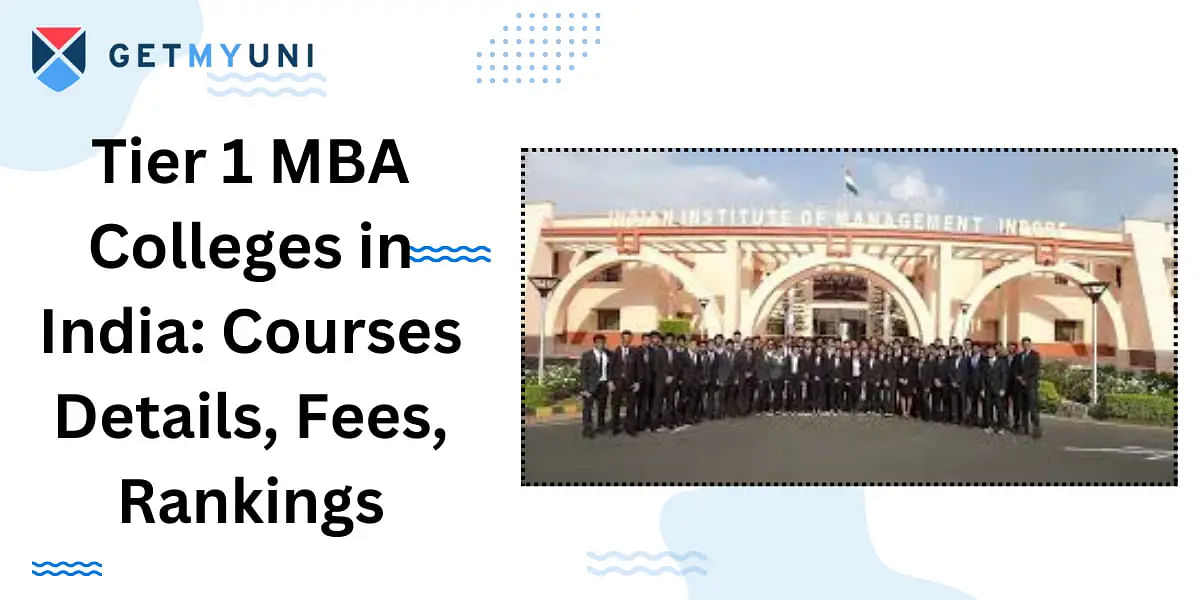
Tier 1 MBA Colleges in India 2024 | Courses Details, Fees, Rankings

Top 18 MBA Project Topics to Choose in 2024

Advantages and Disadvantages of Pursuing an MBA in 2024

Top 10 IPU BBA Colleges in India 2024

List of MBA Colleges Accepting 90+ Percentile in CMAT 2024
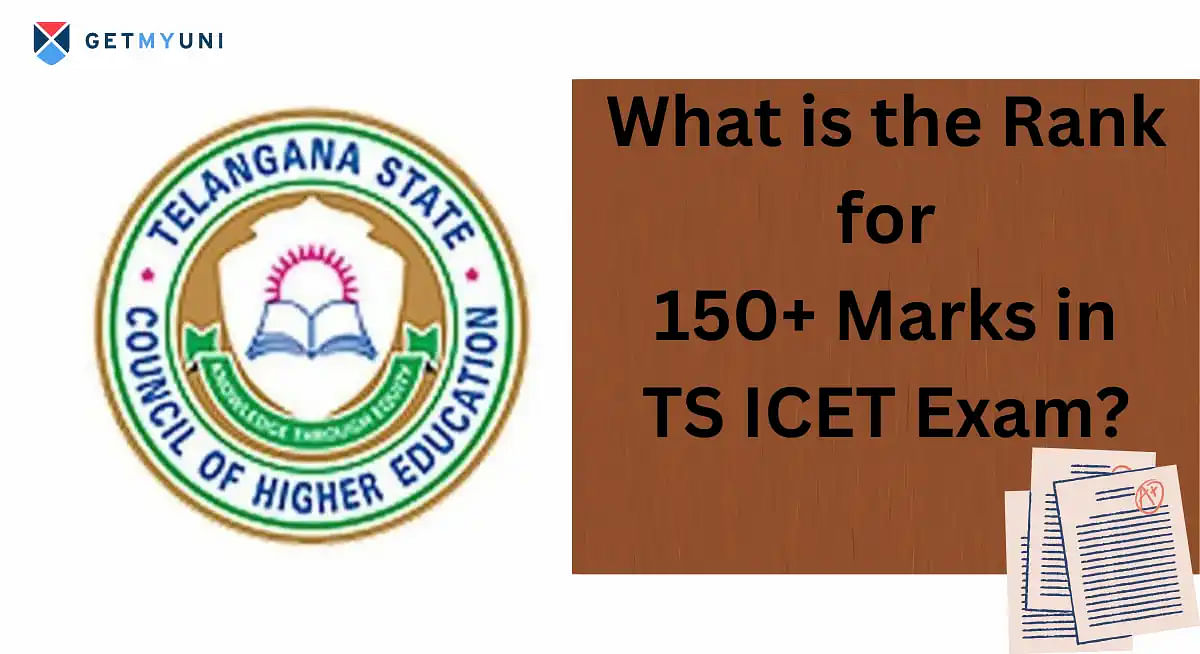
What is the Rank for 150+ Marks in TS ICET Exam?

Management Quota (Category B) MBA Admission through AP ICET 2024

Get Free Scholarship worth 25000 INR

Home > News & Articles > PhD after MBA: In India, Admissions 2024, Entrance Exams, Fees

Sheeza Khan
Updated on 20th February, 2024 , 8 min read
PhD after MBA: In India, Admissions 2024, Entrance Exams, Fees
A PhD after an MBA is an advanced program where you can become a doctor in a specific area of business Finance, Marketing, Operations, or Human Resources. To qualify, you generally need a 2-year MBA degree and you should pass exams like UGC-NET or GATE . Having a good score, a research plan, recommendations, and work experience make it more likely to get into a top MBA college. It usually takes 3-5 years to finish a PhD after MBA in India, but it could be 4-7 years abroad.
Also read: Top PhD Entrance Exams in India
In the realm of MBA dreams, institutions like FMS New Delhi , BHU , the prestigious IIMs, and the ingenious IITs stand tall as the elite havens for pursuing a PhD after your MBA adventure.
Further Reading: IIT Madras PhD Admission 2023
Venturing into the realm of a PhD after MBA opens doors to the realms of teaching and delving deep into the realms of research. Many of you might be wondering about the average salary package spanning from INR 2,00,000 to INR 14,00,000.
More PhD Courses:
|
|
|
|
More about MBA:
|
|
|
|
|
|
|
|
|
|
| - |
PhD After MBA: Course Details

|
|
Duration | 3 to 5 Years |
Eligibility | Postgraduate degree with relevant subjects |
Mode of Education | Regular and Distance |
Admission Process | Entrance Tests |
Average Fee | INR 5,000 - INR 5,00,000 |
Job Profiles | Finance Manager, Managing Director, Market Research Analyst, Customer Services Manager, Professor, Chief Operating Officer, etc. |
Average Salary | INR 2,00,000 - INR 14,00,000 |
Also read: GATE Study Material
Why pursue PhD after MBA?
Pursuing a PhD after an MBA in India can offer several compelling benefits:
- Deep Expertise: A PhD allows you to specialize and delve deeply into a specific area of business, enhancing your expertise and knowledge in your chosen field.
- Research Opportunities : A PhD program provides you with the chance to contribute to cutting-edge research in business and management, potentially leading to valuable insights and innovations.
- Academic Career : If you aspire to an academic career, a PhD is often a requirement for becoming a professor at universities and business schools, allowing you to educate the next generation of business leaders.
- Career Advancement : A PhD can set you apart in the job market, opening doors to higher-level positions and leadership roles in both corporate and non-corporate sectors.
- Personal Fulfillmen t: Undertaking a PhD is a journey of personal growth and intellectual challenge, allowing you to engage deeply with your chosen subject matter and develop critical thinking skills.
- Networking : Doctoral programs provide opportunities to connect with experts in your field, fellow students, and professionals, expanding your professional network.
- Enhanced Problem-Solving: PhD programs often cultivate advanced problem-solving skills, which can be applied to complex business challenges.
Also Read: Tips to prepare for UGC Net
More MBA Courses:
|
|
|
|
|
|
|
|
|
|
|
|
|
|
Who should pursue PhD after MBA?
Eligibility criteria for pursuing a PhD after an MBA in India can vary depending on the specific university, institute, and program. However, there are general requirements that are commonly applicable:
- MBA Degree : Candidates must hold a Master's in Business Administration (MBA) degree from a recognized university or institute. This demonstrates a foundational understanding of business and management concepts.
- Minimum Marks: Many institutions require candidates to have obtained a certain minimum percentage or grade point average (GPA) in their MBA program. This threshold can vary, but it's typically around 55% or equivalent.
- Relevant Subjects : The candidate's MBA specialization should align with the field of study they wish to pursue for their PhD for instance, if you want to pursue a PhD in Marketing, your MBA specialization should have been in Marketing.
- Entrance Exam: Some universities and institutes may require candidates to clear a relevant entrance examination specific to the PhD program they are interested in. This could involve subject-related questions, research aptitude, and general knowledge.
- Research Proposal: Applicants are often required to submit a research proposal outlining their intended area of research. This proposal should demonstrate a clear research question, objectives, methodology, and potential contribution to the field.
- Work Experience : While not always mandatory, having relevant work experience can be advantageous, especially for certain specialized PhD programs. It can demonstrate practical knowledge and a real-world perspective on the subject.
- Interview: Some institutions may conduct interviews as part of the selection process. This is an opportunity for candidates to discuss their research interests and demonstrate their commitment to the program.
- Qualifying Examinations : In some cases, candidates might need to qualify for national-level exams such as UGC-NET (University Grants Commission - National Eligibility Test) or GATE (Graduate Aptitude Test in Engineering) to be eligible for certain PhD programs.
PhD after MBA: PhD Finance Course Details
PhD in Finance is a research-focused program offering strong academic prospects. Typically pursued after an MBA in Finance , it's available at esteemed institutions such as IIMs, FMS New Delhi , ISB , and IIT. The program delves into topics like Share Valuation, Privatization, Globalization, and Management Accounting.
|
|
Specialization | Finance |
Duration | 3 Years |
Eligibility | Postgraduate degree with relevant subjects |
Top Colleges | , , |
Entrance Exams | , RMAT, GTU PhD Entrance Exam |
Average Fee | INR 50,000 - 5,00,000 |
Subjects Covered | Corporate Finance, Financial Markets, Investment Analysis |
Suggested Books | "Principles of Corporate Finance" by Richard A. Brealey, Stewart C. Myers, and Franklin Allen |
Top Job Profiles | Financial Analyst, Investment Banker, Risk Manager |
Top Recruiters | HCL, TATA Consultancy, Accenture, Genpact |
Average Salary Range | INR 5,00,000 - 14,00,000 |
Further Reading: MBA Finance Syllabus & Subjects
PhD after MBA: PhD Marketing Course Details
PhD in Marketing is a 3-year program aimed at training students for teaching and research in marketing and related domains. Admission is based on entrance exams and interviews. Candidates with relevant postgraduate qualifications, including an MBA in Marketing, can apply. The program offers diverse career paths, like Market Research Analyst, Marketing Communications Leader, and Marketing Executive.
|
|
Specialization | Marketing |
Duration | 3 Years |
Eligibility | Masters' degree in any relevant field |
Top Colleges | , , , |
Entrance Exams | , CSIR NET, ICMR JRF |
Average Fee | INR 50,000 - 4,00,000 |
Subjects Covered | Consumer Behavior, Marketing Strategy, Brand Management |
Suggested Books | "Marketing Management" by Philip Kotler and Kevin Lane Keller |
Top Job Profiles | Marketing Manager, Brand Manager, Market Research Analyst |
Top Recruiters | Accenture, Basil Lifecare Pvt. Limited, DHTC Logistics Limited, Daimler India Commercial Vehicles Pvt. Limited, and Raymond Limited, etc. |
Average Salary Range | INR 2,00,000 - 10,00,000 |
Further Reading: MBA in Marketing
PhD after MBA: PhD Organizational Behavior Course Details
PhD in Organizational Behavior is a 3 to 5-year program studying human behavior in organizations. Eligibility requires a master’s or MPhil degree with a 55% minimum aggregate after an MBA in Organizational Behavior. Graduates can secure positions in Academic Institutions, Colleges, Finance, Marketing, IT, etc., with average salaries ranging from INR 4,00,000 to INR 8,00,000.
|
|
Specialization | Organizational Behaviour |
Duration | 3-5 Years |
Eligibility | Master's degree or M.Phil. in relevant field |
Top Colleges | , |
Entrance Exams | CSIR UGC NET, DBT JRF, ICMR JRF, CET |
Average Fee | INR 40,000 - 5,00,000 |
Subjects Covered | Leadership, Organizational Culture, Team Dynamics |
Suggested Books | "Organizational Behavior" by Stephen P. Robbins |
Top Job Profiles | Organizational Development Specialist, HR Manager |
Top Recruiters | HDFC Bank, IBM, McKinsey, Boston Consulting |
Average Salary Range | INR 4,00,000 - 8,00,000 |
PhD after MBA: PhD Business Management Course Details
PhD in Business Management is a 3-year program focusing on business operations like leadership, organization, and planning. Eligibility requires a master’s degree with relevant subjects and a minimum aggregate of 50% or more, post-MBA in Business Management.
|
|
Specialization | Business Management |
Duration | 3 Years |
Top Colleges | , , DOMBITS Pilani |
Entrance Exams | , ICAR, JRF |
Average Fee | INR 50,000 - 5,00,000 |
Subjects Covered | Strategic Management, Decision Making, Organizational Theory |
Suggested Books | "Management" by Richard L. Daft |
Top Job Profiles | Business Analyst, Project Manager, Management Consultant |
Top Recruiters | Business Analysts, Data Analysts, Marketing Managers |
Average Salary Range | INR 2,00,000 - 20,00,000 |
PhD after MBA: PhD HR Management Course Details
PhD in Human Resource Management is a 3 to 5-year program focusing on teaching organizational processes for productivity enhancement. It prepares students for HR management roles, requiring a master’s degree from a UGC-recognized or foreign university post-MBA in HR Management.
|
|
Specialization | HR Management |
Duration | 3-5 Years |
Eligibility | Master's degree in relevant discipline |
Entrance Exams | , CSIR NET, JNUEE |
Average Fee | INR 5,000 - 5,00,000 |
Average Salary Range | INR 6,00,000 - 11,00,000 |
Top Recruiters | IBM, WIPRO, HCL, Infosys, TCS, Reliance, Bharti Airtel, Deloitte, Cognizant, HDFC Bank |
Suggested Books | "Human Resource Management" by Gary Dessler |
Top Job Profiles | HR Manager, Talent Acquisition Specialist, Training Manager |
Subjects Covered | Recruitment, Performance Management, Employee Relations |
PhD after MBA: PhD Management Studies Course Details
PhD in Management Studies is a 3-year program imparting management and organizational skills. Eligibility requires a master's degree in a related field with 50-60% aggregate, post-MBA in Management Studies.
|
|
Specialization | Management Studies |
Duration | 3 Years |
Eligibility | Master's degree in related stream of management studies |
Entrance Exams | , ICAR, JRF |
Average Fee | INR 50,000 - 5,00,000 |
Subjects Covered | Strategic Management, Decision Making, Organizational Theory |
Suggested Books | "Management" by Richard L. Daft |
Top Job Profiles | Business Analyst, Project Manager, Management Consultant |
Top Recruiters | Business Analysts, Data Analysts, Marketing Managers |
Average Salary Range | INR 2,00,000 - 20,00,000 |
Further Reading: BMS Course Details
PhD after MBA: PhD Banking and Finance Course Details
PhD in Banking and Finance is a 3-year program designed to provide comprehensive knowledge in domestic and international banking, economics, and investment. A master's degree from a recognized university is the minimum eligibility for PhD after MBA in Banking and Finance. Graduates can secure positions in educational institutions, stock exchanges, banks, etc., with average salaries ranging from INR 1,80,000 to INR 6,00,000.
|
|
Specialization | Banking and Finance |
Duration | 3 Years |
Eligibility | Master's degree in relevant field |
Top Colleges | PRSU Allahabad, , |
Entrance Exams | Mumbai University PET, R.A. Poddar College Entrance |
Average Fee | INR 80,000 - 5,00,000 |
Subjects Covered | Financial Markets, Risk Management, Banking Regulations |
Suggested Books | "Investment Banking: Valuation, Leveraged Buyouts, and Mergers & Acquisitions" by Joshua Pearl and Joshua Rosenbaum |
Top Job Profiles | Financial Manager, Investment Analyst, Credit Analyst |
Top Recruiters | Financial Managers, Stockbrokers, Credit Control Managers |
Average Salary Range | INR 1,80,000 - 6,00,000 |
Further Reading: MBA Finance Jobs
PhD after MBA: PhD Disaster Management Course Details
PhD in Disaster Management is a 3-year program focused on Environment and Disaster Management. Eligibility entails a master’s degree or M.Phil in the relevant field with at least 55% aggregate and 5 years of work experience.
|
|
Specialization | Disaster Management |
Duration | 3-5 Years |
Eligibility | Master's degree or M.Phil. in relevant field |
Top Colleges | Tripura, SIMATS Chennai, Jamsetji Tata School of Disaster Studies, Mumbai, Amity Institute of Disaster Management, Noida |
Entrance Exams | NET, , DET |
Average Fee | INR 49,500 - 2,95,000 |
Subjects Covered | Disaster Preparedness, Risk Assessment, Humanitarian Aid |
Suggested Books | "Introduction to International Disaster Management" by Damon P. Coppola |
Top Job Profiles | Disaster Recovery Specialist, Emergency Response Coordinator |
Top Recruiters | Disaster Recovery Specialists, Emergency Response Coordinators |
Also Read: PhD in IGNOU
PhD after MBA: PhD Commerce and Management Course Details
PhD in Commerce and Management is a 3-year program focusing on commerce and business management education. To qualify for PhD after MBA in Commerce and Management, candidates need a master's degree, MBA, or MPhil with at least 55% aggregate.
|
|
Specialization | Commerce and Management |
Duration | 3 Years |
Top Colleges | ACCF Noida, , Kanpur, BU Tiruchirappalli, Amrita Vishwa Vidyapeetam, Kochi Campus, AFU Faridabad |
Entrance Exams |
|
Average Fee | INR 1,00,000 - 3,00,000 |
Subjects Covered | Business Economics, Management Ethics, Entrepreneurship |
Suggested Books | "Business Ethics: A Stakeholder and Issues Management Approach" by Joseph W. Weiss |
Top Job Profiles | Business Analyst, Finance Manager, Chief Executive Officer |
Top Recruiters | Business Analysts, Finance Managers, CEOs |
Average Salary Range | INR 3,00,000 - 40,00,000 |
Further Reading: BMS Subjects & Syllabus
Was this Article Helpful/Relevant or did you get what you were looking for ?
👍 1,234
👎234
Similar Articles
Jobs After MBA
MBA Admission 2024-25: Eligibility, Selection Criteria, Procedure, Entrance Exams, Top Colleges, Cut Off
MBA Courses & Specializations: Full Form, Fees, Subjects, Syllabus 2024
Frequently Asked Questions
Can phd be done after mba.
Certainly, it is possible to pursue a PhD after completing an MBA. To embark on a PhD journey, an individual should possess a master's degree in relevant fields, accompanied by a minimum aggregate score of 50-60%.
What are the PhD courses after MBA?
PhD programs in Finance, Management Studies, Business Management, Business Administration, Banking and Finance, and Marketing stand out as prominent choices for further studies following an MBA.
Can I do a PhD from IIM?
Indeed, the Indian Institutes of Management (IIMs) provide PhD programs subsequent to MBA studies in disciplines such as Human Resource Management, Business Management, and Business Administration, among others.
Can I do a PhD after MBA in HR?
Indeed, undertaking a PhD following an MBA in Human Resource Management presents advantageous prospects for embarking on roles such as HR managers, executives, consultants, and various other related positions.
Does a PhD after MBA make sense?
Certainly, pursuing a PhD after completing an MBA is a strategically sound choice, offering distinct advantages in terms of enhanced job prospects and a strengthened position in the realm of teaching professions.
How many years is PhD after MBA?
PhD after MBA is normally for 4 - 6 years.
Deep Expertise, Research Opportunities, Academic Career, Personal Fulfillment and Networking.
PDF Preview
Popular searches, popular colleges/universities, top colleges by courses, top courses.

- Remember me Not recommended on shared computers
Forgot your password?
- Business School Forum
Applying to PhD in Management after an MBA
By etceteraetc September 21, 2012 in Business School Forum
Recommended Posts

etceteraetc
I am wondering if there are any PhD in Management students or grads out there who successfully got into a PhD program after having completed an MBA ? How did you demonstrate "research skills" in your PhD application ?
I have an Undergrad in Business, and am working at a major CPG company in Marketing. My long-term career aspirations, however, are to teach Marketing at university or college level. Generally a PhD is required to teach full-time at university, and is an asset for college teaching jobs.
So, my next step is a Masters program, but I want to make sure I go into the right Masters program to enable me to pursue a PhD later on, and to be employable as a business school prof. Depending on who I ask, I am getting conflicting responses, so I would love some advice from people who have actually successfully pursued a business school professor career path.
- BBA --> MBA --> PhD. I would love to get an MBA, as it will also help me advance in my current career, and make me more employable if my teaching career falls through for some reason. However, I am told that since MBA is not a research-based degree, I might have trouble applying for a PhD later and might have to go get another Masters degree (e.g. MSc) anyways.
- BBA --> MSc in Management --> PhD. MSc is seen as the prep program to PhD. I am concerned, however, that the MSc degree wouldn't be of much use for my marketing/CPG resume in case I decide to continue in my current career.
Personally, I would much prefer to get an MBA degree instead of MSc, but would love advice on what else to do to ensure my PhD application will look great.
Thanks for your adivce!
- ReidGN and Quantitative_Psychology

Link to comment
Share on other sites.

phdconfessional
To give you some additional advice:
As you already seem to understand, the focus of an MBA and the focus of a PhD program are drastically different. So will the MBA prepare you or provide you with any research experience? The answer is no. But like you, I wanted to have a marketable degree like an MBA under my belt in case this whole PhD thing didn't pan out.
That said, business colleges expect that a lot of their applicants come from an MBA background. In fact, some even build MBA classes into your program if you don't already have one. They do understand and value overall business knowledge. If you don't believe me, check out the vitas of faculty members at your current school or the schools you are applying to. You will see many of them have MBAs.
If you are dead set of getting your PhD and know research is your passion, I would recommend going the MSc route (if it is indeed research focused). There are other people in other departments that did come from research oriented masters programs, and they are a little ahead of the game because they already understand research methods, where to us MBA folks, research is brand new.
If you want to get research experience while earning your MBA, let your MBA director or a faculty member know that you are wanting to pursue a PhD after this and would love to get involved in a research project. I don't know if your MBA program has graduate assistantships, but if so, I suggest you apply for one and let it be known you want an assignment that is research oriented.
Other ways to help your chances of being admitted: NETWORK! I applied to 4 schools, all within a 3-4 driving distance of home. I contacted and scheduled meetings with all 4 of them. This gave me a much greater perspective on what programs would (or would not be) a good fit for me. Maintain correspondence with your contacts at each school throughout the entire application process.
The last tidbit: check out the research currently being conducted and see if your research interests align with any of the current faculty. When you write your SOP, you need to make specific mention of faculty you would like to work with and what areas of research you are interested in.
Hope this helps!!
- StoicMPA2017 and umairshabbir
- 3 months later...
I agree with 95% of PhDconfessionals post. Certainly, networking and research opportunities should be exploited to the hilt for anybody interested in a PhD program. The best-performing PhD students are almost always those who enter the program with already-established research capabilities, possibly even with working papers, and are already well-known to the faculty and to the academic community at large. I doubt that I have much to add to her comments in this regard.
Perhaps the lone point of contention that I have with PhDconfessional - and of which I'm not entirely sure that we actually disagree at all - is that business school PhD programs (or the business academic community at large) understand and value overall business knowledge. Sadly - and deeply ironically - this does not seem to be so. While overall business knowledge may not hurt you, it doesn't seem to help you much either. The truth is, many business faculty, especially the newer ones, simply don't know and, worse, don't care about real-world business.
Nor am I the only one to say so. Rakesh Khurana noted in his magnum opus, From Higher Aims to Hired Hands, that landed him tenure at Harvard Business School, that "many of the discipline-trained scholars joining business school faculties were not intrinsically interested in business" (p.311 - see Google Books link below). In his 2007 "Modest Proposal" piece in the Academy of Management Journal, Stanford GSB's Jeffrey Pfeffer decried business academia's "disdain for work that informs or that might inform professional practice", that "current review and status processes don’t particularly reward the production of knowledge that anyone cares about", and, that business schools, for all their ostensible focus on innovation and organizational design, would never hire somebody like IDEO founder David M. Kelley, despite the fact that "one could plausibly argue that IDEO, through both its design and its management practices and culture, has had more effect on management than scores of academic articles combined." Oddly, Kelley is indeed tenured at Stanford...in the engineering school (but certainly not GSB). As Pfeffer acidly noted: "The engineering school may have wisdom that many business schools lack." In the same spirit, Jay Lorsch of Harvard Business School published a 2009 piece in the Journal of Management Inquiry lamenting the "erosion of our faculty’s belief in the sanctity of relevance, which I think one can only attribute to an influx of discipline-educated faculty and to the shift in the belief system of the broader business academy."
http://books.google.com/books?id=v3DfpKEsNREC&lpg=PA311&ots=cedgwTFf7x&dq=from%20higher%20aims%20%22intrinsically%20interested%22&pg=PA311#v=onepage&q=from%20higher%20aims%20%22intrinsically%20interested%22&f=false
As ultimate proof of this, I would actually encourage interested readers to invoke phdconfessional's advice and carefully examine the backgrounds of business-school faculty at the top schools. Concentrate especially upon the junior faculty who, by definition, were hired under current hiring practices, rather than the established tenured faculty who are characteristic of hiring practices of long ago. While a minority of new faculty will indeed have MBA's, a strong majority will not, and indeed, many will have absolutely zero business experience whatsoever.
Indeed, I might actually argue that real-world business knowledge may indeed hurt your academic business career by poisoning your psychology in the sense that such knowledge may deter you from pursuing research questions that are irrelevant from a practitioner's standpoint. Your less experienced colleagues, on the other hand, will have no such compunctions about pursuing such questions. And their peer-review referees/editors probably won't care either. The upshot is that your colleagues will probably publish more than you will. Then when it comes time for hiring/tenure decisions, they will be picked over you because they have more pubs. The research questions of their publications may be useless for the practice of management. But that doesn't matter, because all that matters is your pub count.
- 1 month later...
JohnfromMilligan
I have to agree with Decaf. Most of the upper echelon business schools have many faculty that have all the degrees in the world, but the could not run a shift at a restaurant to save their lives. Do not get me wrong, there is nothing against theories. When I chose the small school I am going to, the professors have the Phd's and DBA's, but they have years of work experience that they can relate. To me, learning from someone that has done the job is much better, than someone that knows the theory behind the job. Just some food for thought.
sapphirerodent
I'm a BA Business Admin undergrad, and I did my MA in Economics. I'm changing majors, and I've been acccepted to solid PhD Management programs, 3 in the top 25-50 rankings of productivity, one interview at a top 10 and another interview at a top 25-50.
From what I can gather, the PhD programs look for good research fit. Things that through up red flags to adcoms is when an individual comes from industry, has an MBA and wants to pursue a PhD. In order to demonstrate research experience, it is important (if you have the time) to get on some projects, or at least work with some faculty and help them with data. This will allow them to get to know you better and understand your motivations for getting a PhD, which will ultimately come out in your letter of recommendation.
If you are deciding which master's is the best to get into, I would actually recommend you look into other programs in the business school, such as a MS in Human Resources (for example). These types of programs are more research orientated, often requiring thesis to complete, as well as courses that are focused on current research. On the other hand, MBA programs are project / case study based, which does not give you that exposure.
You can also consider if whatever school you pursue an MBA at is flexible with electives, which then you can take some of the more research oriented coursework and note that on your personal statement.
Hope it helps!
- 6 months later...
milwaukiedave
Also keep in mind you can do a DBA instead of a Phd if you want to focus on applied research. It's just another option to think about.
- 2 months later...
If you know you want to pursue a PhD, the best ways to demonstrate research relevance are:
- get a Research Assistantship during Masters, and if possible, get your name on a publication
- find a program with a Masters thesis option (our MBA at UMass-Boston has this)
- find a one year masters in management that is more theory/research based (mostly in UK, but some beginning to sprout in US too).
Remember, a PhD in business does not necessarily build on an MBA - here at UMass-Boston, the new PhD in Business Administration ( Organizations and Social Change Track ) , is very happy to see applicants from Political science, sociology, psychology etc.
Best of luck!
I have my MSc. majoring in marketing. If you aren't sure whether or not you want to go academic or commercial, I would get a MSc. (1) I didn't have any trouble finding a job, even though my masters wasn't an MBA. The ppl who interviewed me were just excited to see that I had a masters. (2) my boss loves that I know how to evaluate the success of my marketing campaigns via statistical methods - it was actually one of the main reasons I was hired. (3) it definitely shows you what to expect if you were to pursue a PhD. There will be less of a learning curve because you will already know all the basics. (4) Getting to publish my thesis and go to conferences around the world is the BEST!!
somedayprofessor
There are some PhD programs in business that award master's degrees en route to the PhD. This may be a good option for an uncertain future. Then if you decide mid-way that the PhD is not for you, your time is not totally wasted. This is a disconnected thought that came from reading through your question and all of the replies, but it may be something for you to investigate.
- 9 months later...
nehalnavande
I have completed my MBA in operations management and logistics from UK. Also after completion I have joined family business since last 8 months. But my aim is to pursue a doctorate degree from US or CANADA. Should I go for a DBA or a PHD. I'm a bit confused. Do I need a research proposal before I apply. Also should i search the universities first and then attempt for GRE. I'm planning for applying in spring 2015 or fall 2016. Please help
- 2 weeks later...
if you are applying to phd management programs you should be aware that one of the most difficult and time consuming things is to find a topic and get really helpful tips for writing your mba paper
i personally spent several days till i came across to http://www.mbathesis.biz/top-5-tips-for-your-management-mba-thesis/
i must admit these tips helped me much in writing
- 4 weeks later...
umairshabbir
I started my PhD in Management this fall after completing my MBA this past summer. So the answer is yes, you can get into a PhD program with an MBA To give you some additional advice: As you already seem to understand, the focus of an MBA and the focus of a PhD program are drastically different. So will the MBA prepare you or provide you with any research experience? The answer is no. But like you, I wanted to have a marketable degree like an MBA under my belt in case this whole PhD thing didn't pan out. That said, business colleges expect that a lot of their applicants come from an MBA background. In fact, some even build MBA classes into your program if you don't already have one. They do understand and value overall business knowledge. If you don't believe me, check out the vitas of faculty members at your current school or the schools you are applying to. You will see many of them have MBAs. If you are dead set of getting your PhD and know research is your passion, I would recommend going the MSc route (if it is indeed research focused). There are other people in other departments that did come from research oriented masters programs, and they are a little ahead of the game because they already understand research methods, where to us MBA folks, research is brand new. If you want to get research experience while earning your MBA, let your MBA director or a faculty member know that you are wanting to pursue a PhD after this and would love to get involved in a research project. I don't know if your MBA program has graduate assistantships, but if so, I suggest you apply for one and let it be known you want an assignment that is research oriented. Other ways to help your chances of being admitted: NETWORK! I applied to 4 schools, all within a 3-4 driving distance of home. I contacted and scheduled meetings with all 4 of them. This gave me a much greater perspective on what programs would (or would not be) a good fit for me. Maintain correspondence with your contacts at each school throughout the entire application process. The last tidbit: check out the research currently being conducted and see if your research interests align with any of the current faculty. When you write your SOP, you need to make specific mention of faculty you would like to work with and what areas of research you are interested in. Hope this helps!!
I want to know your years of education at completion of your MBA as universities require at least 18 years to get enrolled in P.hD programs
- 4 months later...
I am looking for a Masters en route to PhD program and list of Universities that offers a program like that. I will appreciate any advice on this program. Thank you. I am done with my Bachelors in Business Management and will like to pursue a program that lead to PhD. But I know it take time and I taught sine financing a PhD would be a problem for me, getting a masters will enable me finance my PhD program.
I therefore wish to take the Masters degree leading to PhD program and I need your advise, suggestions, contribution, and help. Thank you.
- 8 months later...

I think using a MBA to a PhD is wise. It gives practical business knowledge. The program that I went through had core classes, breadth electives, and concentration. You could add directed research into any of these areas (in your discipline or not). I elected to add a directed research to my concentration. I was also a dual MA candidate that required a research project, so I got experience on that side as well. Now the waiting begins for the Doctoral applications.
I want to do my PHD in USA. I have completed an integrated BBA+ MBA course with Specialization in Finance and Marketing. I am currently working in an e-commerce company in India. I want to switch to Academics as a career option. I will be appearing for GMAT end of this year and planning to apply for 2017 fall session.
Can anyone help me understand the scopes of research in this field and good institutes I can apply? I am mainly looking at applying in USA.
Create an account or sign in to comment
You need to be a member in order to leave a comment
Create an account
Sign up for a new account in our community. It's easy!
Already have an account? Sign in here.
- Existing user? Sign In
- Online Users
- All Activity
- My Activity Streams
- Unread Content
- Content I Started
- Results Search
- Post Results
- Leaderboard
- Create New...
Important Information
This website uses cookies to ensure you get the best experience on our website. See our Privacy Policy and Terms of Use
- QUICK LINKS
- How to enroll
- Career services
What is an MBA?
By Michael Feder

This article has been vetted by University of Phoenix's editorial advisory committee. Read more about our editorial process.

Reviewed by Kathryn Uhles , MIS, MSP, Dean, College of Business and IT
In this article
What is an mba program.
- Should you pursue an MBA?
- How to pursue an MBA
Exploring specialized MBA programs
- MBA at University of Phoenix
This article was updated on 02/20/2024.
A Master of Business Administration (MBA) program is a graduate degree that emphasizes leadership, management and marketing skills across a range of business operations.
Applicable to a wide range of business careers, an MBA is well known among graduate business degrees and can feel like a natural next step to those who already have a BS. As a highly recognized credential around the world, it can feel like a natural next step for business professionals looking to enhance their knowledge and career potential.
If you’re asking yourself, “Should I get an MBA?” read on to learn more about what you’ll learn in an MBA program, plus its costs, career alignment and more.
An MBA is a type of graduate degree in business. Business administration refers to managing the operations of a commercial enterprise.
As a master’s-level degree, an MBA program typically requires a bachelor’s degree for admission. However, every university has its own admissions requirements. Some universities require prospective students to take certain courses before enrolling if they have a non-business-related undergraduate degree. University of Phoenix does not necessarily require this, although prospective MBA students must hold an undergraduate degree from an accredited university and meet a certain GPA threshold, among other factors.
MBA coursework typically covers areas like accounting, finance, marketing and operations, as well as “people skills” like leadership and communication. There are different types of MBA programs, such as online, flexible and competency-based (CB) MBAs. Unlike a traditional MBA, a competency-based degree is designed for professionals with a business degree and experience working in the field. This allows students to apply what they already know to earn their degree faster.
MBAs can also be earned with an accounting or HR certificate, giving graduates specialized knowledge in a critical business function. Unlike undergraduate degrees in business , which tend to focus on foundational knowledge, MBA programs emphasize more in-depth expertise.
Interested in a business career? Explore business degrees at University of Phoenix!
What is the difference between an MBA and a master's?
An MBA is a type of master’s degree. But unlike business-oriented master’s degrees that focus on a single subject, such as a master’s in management or finance, an MBA covers multiple areas of business for a comprehensive understanding of operations. Knowing what is in an MBA degree can help you decide if it’s right for you.
MBA coursework is designed to prepare students to manage business operations effectively and successfully by emphasizing strategic planning, marketing analysis, entrepreneurship and more. Students gain an overview of each function as well as how they work together to develop strategic leadership skills.
What can you do with an MBA?
An MBA is often a stepping stone to managerial and leadership roles. It may even be required for executive-level jobs.
The job outlook for these kinds of positions is promising: The U.S. Bureau of Labor Statistics (BLS) has projected more than 1 million openings in management occupations each year from 2022 through 2032. This can include positions such as business manager , general manager (GM), operations director and administrative director. Employers may prefer an MBA for some positions.
An MBA on a resumé may enhance career opportunities by showing proof of business expertise and an ability to handle critical business decisions and planning. Knowing what you can do with an MBA may help you decide if it’s the right degree for you.
Should you pursue an MBA?
Pursuing an MBA is a personal decision. If you want a leadership position in a business, an MBA can be a good investment. But it’s important to consider several factors first.
For example, MBA tuition can be significant, and you must decide if that investment in your education is worth it to you in terms of career goals and personal fulfillment. Earning an MBA enhances your practical and theoretical knowledge in the field of business and can be useful to various career paths. You’ll have to make time in your schedule to focus on coursework, however, even for a limited time while earning your degree, and this may be difficult if you also work a full-time job. This could impact time with family and other personal obligations.
Some people may decide they will benefit more from an MBA with a few years of work experience, while others may want to start a program right after earning a bachelor’s degree.
Consider the application process as well. Some programs require applicants to take the Graduate Management Admission Test (GMAT) or the Graduate Record Examinations (GRE) and submit a personal essay and letters of recommendation. However, at University of Phoenix you don’t need the GMAT, GRE , recommendation letters or essays for the standard MBA program — just a bachelor’s degree with a minimum 2.5 cumulative GPA. See further requirements on the University of Phoenix admissions page .
Is getting an MBA hard?
Many people have concerns and misconceptions about how hard it is to earn an MBA. Consider that the MBA is the most popular graduate degree in the United States. While coursework is designed to be challenging, it may not be as demanding as specialized degrees in science or engineering, for example. However, students do have to analyze and synthesize information, conduct research, write papers and collaborate on projects.
Perhaps one of the biggest concerns about earning an MBA is managing the time requirements. Students need to be able to meet deadlines for studying and assignments while also finding time for family and other responsibilities, such as work.
Here are some tips to help navigate this balancing act:
- If you’re already a professional working in the business field, you can choose a self-led or flexible program, such as University of Phoenix’s Competency-Based MBA.
- Block out time every week for studying and homework.
- Talk to a partner or family members about how they could help, such as by taking on more household tasks.
- See where you can temporarily cut back on social or volunteer commitments.
It’s important to take time to relax as well. Managing stress effectively is essential to quality learning and getting the most out of an MBA program.
How much does an MBA program cost?
An MBA program’s cost depends on a number of factors, such as the type of institution (private, public, online) and whether you have to pay out-of-state tuition fees.
At University of Phoenix, the 2023–2024 Cost of Attendance (COA) estimates that the tuition and fees for a master’s degree are $16, 128* for the academic year. This does not include costs like books, supplies and other course materials that may be needed. Review the master’s COA breakdown further on the UOPX website . If you’re interested in a master’s credit-based CB, the 2023–2024 COA tuition and fees are estimated to be $7,200. Review the master’s credit-based COA breakdown on the UOPX website
Students may be eligible for financial aid to help cover the cost of their program. In addition, some employers may have tuition reimbursement programs or be willing to pay full or partial tuition for employees they want to promote internally, although CB programs at UOPX are not eligible for employer tuition discounts or military tuition rates.
*The tuition component of the cost of attendance is based on a per-credit weighted average for the credential level across the entire University.
Estimated salary ranges
An MBA can help prepare you to pursue management and leadership positions. For example, according to BLS, the annual wage range for all management occupations, such as business manager, occupational manager and sales manager, was $50,290 to $220,500 as of May 2022 . Of course, salary ranges vary by occupation and other factors, such as location, experience and company, among others.
In general, research shows that higher levels of education translate to higher pay . Workers with more education are also less likely to face unemployment.
Salary ranges are not specific to students or graduates of University of Phoenix. Actual outcomes vary based on multiple factors, including prior work experience, geographic location and other factors specific to the individual. University of Phoenix does not guarantee employment, salary level or career advancement. BLS data is geographically based. Information for a specific state/city can be researched on the BLS website.
How to pursue an MBA
The first step to pursuing an MBA is to have a bachelor’s degree. For those whose undergraduate degree is not in an area of business, it can be helpful to have at least a few years of work experience.
Research the types of MBA programs, their curricula and costs. Decide if you want to take an online or in-person program, study part or full time and whether you want a standard, accelerated or self-paced course of study.
Knowing how long it takes to get an MBA can help narrow your options, so compare credit requirements and average completion times for programs you research.
When you’ve decided on the programs you are interested in, look at the application and admission requirements. Some programs may require you to take the GMAT or GRE as a condition of admission.
Fill out the application, which may ask for your academic records, work history and reasons for pursuing an MBA. When you’ve gathered all the application materials, submit them as directed.
What is an MBA progrma like?
MBA programs provide a well-rounded business education that prepares students to tackle the challenges of business leadership. Their structure usually includes a core curriculum and electives. At UOPX, however, electives are not offered. MBA programs may also include optional specializations.
Core courses focus on fundamental business areas as well as topics like statistics, economics and quantitative analysis. If electives are provided in a specific program, they provide the option to explore areas of particular interest in more depth, such as international business, entrepreneurship or digital marketing.
Many classes in online master's business degrees offer hands-on learning by incorporating real-world business cases and projects into coursework. Coursework often culminates in a major project, which may be a written report, thesis or presentation. Although this may vary depending on the specific program.
Duration of MBA programs
Many prospective students ask, “How long does it take to get an MBA?” Depending on the type of Master of Business Administration program and the number of classes you take, an MBA usually takes about two years.
The MBA program at University of Phoenix can take as little as 16 months . Some students complete the degree faster by taking an accelerated program, doubling up on classes or being a full-time student.
The MBA-CB program can be completed in less than 12 months. The primary difference between the traditional program and the CB program is how the courses are scheduled. In the CB program, students take four courses at one time over 16 weeks, while in the traditional program, students take one 6-week course at a time.
Dual degree programs offer a way to combine general business expertise with advanced studies in a specific area in less time than it would take to earn two master’s degrees separately. There are also competency-based programs.
Dual MHA/MBA degree program
A dual Master of Health Administration/Master of Business Administration program provides the comprehensive business administration education of an MBA with studies focused on the administrative and business aspects of the healthcare industry, such as the regulatory environment and the impact of economic and financial factors.
An MHA/MBA program can prepare students to work effectively as leaders of healthcare and health-related facilities and organizations.
Compentency-based MBA degrees
In a Master of Business Administration Competency-Based (CB ) degree program, students earn credit by demonstrating their ability in core skills rather than through traditional classes and homework. These programs are usually self-paced and emphasize practical ability.
Because students can gain credit for competencies they already have, competency-based MBAs are usually less expensive and take less time than traditional MBAs. Tuition for the University of Phoenix Competency-Based MBA is roughly estimated to be $11,000 and can be completed in 12 months.
MBA at University of Phoenix
An MBA can be a smart investment in preparation for future opportunities. But it’s important to understand all that goes into pursuing an MBA, including the demands on your time and finances. Knowing what an MBA entails and how to find the best program are key to making an informed decision.
If you’re ready to take the next step, get started by learning more about your MBA options at University of Phoenix.

ABOUT THE AUTHOR
A graduate of Johns Hopkins University and its Writing Seminars program and winner of the Stephen A. Dixon Literary Prize, Michael Feder brings an eye for detail and a passion for research to every article he writes. His academic and professional background includes experience in marketing, content development, script writing and SEO. Today, he works as a multimedia specialist at University of Phoenix where he covers a variety of topics ranging from healthcare to IT.
want to read more like this?

December 05, 2023 • 9 minutes

May 04, 2021 • 4 minute read

November 02, 2022 • 5 minutes
Partner Sites

Inspiring and informing your business school journey
New survey reveals average mba starting salary and highest paying masters degrees.

MBA starting salaries are higher in the US than those earned by business school graduates of the highest paying Masters degrees ©nirat/iStock
Wondering how much you can earn after business school? This survey breaks down the average MBA starting salary and lists the highest paying Masters degrees in the US

Fri Jun 28 2024
Several Masters degree types help students earn significantly more than that, while if you’re a more experienced candidate and choose to enroll in an MBA you could earn six figures in your first role post-graduation, the study also revealed.
The 2024 Corporate Recruiters Survey quizzed more than 900 recruiters—over half of whom were responsible for hiring at Fortune 100 or 500 companies—about their perspectives and plans for business school graduates today. It covered trends such as the importance of artificial intelligence for employers , recruiters' views of online education , and the most desirable...
The survey asked respondents to estimate the average base starting salaries they would pay new hires of various program types including Masters degrees in finance, management, and accounting. It also delved into employers’ hiring expectations for the year ahead.
What is the average MBA starting salary and what are the highest paying Masters degrees?
The median starting salary for graduates of MBA programs across the US is $120,000, the survey revealed.
Of course, this figure will fluctuate considerably between institutions. Some of the most prestigious institutions such as M7 schools Wharton and Harvard Business School see grads earn more than twice that on average .
Unsurprisingly, as a degree that caters to professionals who already have experience before enrollment, the MBA is also the program that helps business school students earn the most after graduation. Most pre-experience Masters degrees will be populated with students who have little (maximum two-years) to no work experience.
Among the pre-experience programs, the list of the highest paying Masters degrees is dominated by four popular programs. The generalist Master in Management (MiM), and the more specialized Master in Finance (MiF), Master in Business Analytics (MSBA), and Master in Data Analytics all have a median graduate starting salary across the US of $80,000.
They are closely followed by the Master of Marketing, which helps graduates earn median starting salaries of $79,500. The lowest paying of all of the programs that were assessed during the survey was the Master of Accounting (MAcc), which helps grads earn $75,000 on average.
Revealing the value of a graduate business degree, the survey compared the average starting salary of graduates of Masters degrees versus bachelor’s programs, finding that undergrads earn less at around $69,000.
What are recruiters’ hiring plans for 2024?
Corporate recruiters taking part in the survey also revealed their plans to hire MBA and Masters graduates in 2024, highlighting whether they expected to increase, decrease, or maintain their hiring levels when compared with 2023.
MBA hiring stood out prominently ahead of the rest of the program types: as many as 36% of recruiters said they had plans to increase hiring in 2024. Data analytics and business analytics followed, with 32% of recruiters planning to up hiring from these program types. The Master of Finance proved less attractive to recruiters (28%), while 27% of recruiters planned to increase hiring of MiM, MAcc, and Master of Marketing grads, respectively.
It was a similar story when it came to recruiters who planned to maintain hiring levels. This figure stood at 43% for MBA grads, higher than grads of MiMs (40%) and MiFs (37%). In total, 35% of recruiters planned to maintain their hiring levels of MAcc, Master of Data Analytics, and Masters of Marketing grads. A further 34% had plans to keep hiring of MSBA grads the same as in 2023.
In terms of recruiters who planned to reduce hiring or not hire any graduates at all, the percentage was lowest for MBA programs (21%). This was followed by MiM and Master in Data Analytics degrees (33%). MAcc and MSBA degrees were less in favor among 34% of recruiters, respectively, while the Master of Marketing (37%) and MAcc (37%) were the degree types where recruiters were most likely to reduce or avoid hiring graduates.
Register for free to continue reading
The best of our Premium Articles

How Are IIM Placements And Average Packages For MBA Graduates In 2024?

Who Are The M7 Business Schools?

UK Two-Year Graduate Visa Set To Remain
- In The News
You might like:

Best IIMs In India For Women? Gender Diversity Shifting At Top Indian B-Schools

HBS Application: 3 New Essays Announced For Incoming Harvard Candidates

Reviewing Social Media Posts During Admissions: Should B-School Applicants Be Worried?

IMAGES
VIDEO
COMMENTS
To answer the budding question: yes, you can pursue your PhD after earning your MBA, and choosing to earn a doctorate is entirely up to you and your aspirations. To help you better understand if getting a PhD is the right choice, we look at the path an MBA graduate can take to earn their PhD, one of the higher purposes of a doctorate, and the ...
DBAs also stand out because they represent only 2% of all people who hold higher degrees in business. In 2021, more than 250,000 students graduated with MBAs or specialist degrees in business ...
Students in our PhD programs are encouraged from day one to think of this experience as their first job in business academia—a training ground for a challenging and rewarding career generating rigorous, relevant research that influences practice. Our doctoral students work with faculty and access resources throughout HBS and Harvard University.
A PhD in management is a pathway to specialization or even sub-specialization, depending upon the candidate's MBA. PhD after MBA would allow professionals to tackle specific research areas and answer questions with the potential relevance to the business world. Here are some of the fields of PhD after MBA specializations: Accounting.
Professor /Lecturer. Academician. Chief Financial Officer (CFO) Chief Executive Officer (CEO) The salary of PhD after MBA in India is somewhere between INR 7 Lakhs to 17 Lakhs per annum depending upon whether you work in the corporate sector or explore the academic domain working as a lecturer or academician.
The goal of the MIT Sloan PhD Program's admissions process is to select a small number of people who are most likely to successfully complete our rigorous and demanding program and then thrive in academic research careers. The admission selection process is highly competitive; we aim for a class size of nineteen students, admitted from a pool ...
The majority of our PhD in Management students pursue careers in academia. After graduation, many land tenure-track teaching positions at top-tier business schools and continue to advance knowledge through original research. Johnson School PhD students often field multiple offers and see starting salaries range from $150,000 to $250,000.
1. PhD = specialist in a subject, research skills, critical mind MBA = Broad generalist, management, problem solving. The focus and scope is not the same. Also like it was said most researchers who want to climb the ladder need to take the management track which often require an MBA. Put simply an MD is an MD but a hospital manager needs to be ...
Discover a focus and intensity greater than you may have thought possible. As a PhD student at Stanford Graduate School of Business, you will be inspired and challenged to explore novel ideas and complex questions. Fall 2024 applications are now closed. Applications for Fall 2025 will be available in September 2024. Fields of Study.
PhD Management Studies after MBA. PhD Management Studies is a 5 Year doctorate program that aims to teach students about management and organizational skills. A masters' degree in a related stream of management studies with a minimum aggregate of 50-60% makes a candidate eligible for Ph.D. after MBA in Management Studies.
Valid reasons to go from an MBA to a PhD include: Ensuring you achieve the deepest level of expertise on a subject matter, which can then be leveraged in the private sector, public sector, and consulting. Sometimes a graduate certificate or even an MSc is not enough for the kind of career you seek out. Getting the opportunity to teach in higher ...
PhD after MBA allows people to work in the field of research in management, finance, or business, distinguishing them from other managers who only pursue an MBA. PhD after MBA in Management opens the door to becoming a professor at one of the world's top business schools, which is the most searched job. 4.
Blog SummaryUnlock the potential of your career with a PhD after MBA in Management. Discover how this esteemed degree can elevate your expertise and impact in the business world. From gaining credibility to refining leadership skills, explore the myriad benefits outlined in our comprehensive guide. Dive deeper into the advantages of online learning and accreditation, ensuring a seamless ...
After an MBA, you become eligible for the senior management positions but with a PhD, you get the chance to take charge of the business strategies and model as a CEO or COO of the organization. The research-focused learnings of the management concepts make you develop an innovative approach toward business issues.
Eligibility Criteria for a PhD after MBA. The scores of CAT 2018, CAT 2019 and CAT 2020 are considered valid for application to the PhD. Program in 2021. Standard Test Score not required if an applicant is: (Part-time/Distance Learning programs of IIM are not taken into consideration)
MBA Vs PhD. Here is a table containing general differences between an MBA and a PhD. MBA. PhD. MBA is a Generalist Degree. Ph.D. is a Specialist Degree. MBA usually takes two year to complete full time. Ph.D. can take four years. MBA students will usually research a broad range of subjects.
The next steps to secure your PhD admission after MBA are: 1. Select your university. Before starting your PhD journey, you need to select the university where you want to pursue your PhD. In India, there are several universities that offer PhDs in Management.
Career Scope, Employment, and Salary for Doing a Ph.D. After MBA. Somewhere between 8 Lakhs to 18 Lakhs per annum, Ph.D. after MBA salary in India is depending upon whether you explore the academic domain working as a lecturer or academician or working in a corporate sector.
PhD after MBA. PhD in Business Management is a doctorate level business management course. Business management includes the activities associated with running a company, such as controlling, leading, monitoring, organizing and planning. The duration of PhD in Business Management is 3-years.
The duration of the Ph.D. course duration after an MBA varies from the research topics, methodologies, institutions chosen or the time being invested by aspirants. Most of the time, the course duration also depends on the kind of country students have chosen. On average the completion of Ph.D. courses takes about 4-5 years.
PhD after MBA: PhD Business Management Course Details. PhD in Business Management is a 3-year program focusing on business operations like leadership, organization, and planning. Eligibility requires a master's degree with relevant subjects and a minimum aggregate of 50% or more, post-MBA in Business Management. ...
Posted September 24, 2012. I started my PhD in Management this fall after completing my MBA this past summer. So the answer is yes, you can get into a PhD program with an MBA. To give you some additional advice: As you already seem to understand, the focus of an MBA and the focus of a PhD program are drastically different.
An MBA can help prepare you to pursue management and leadership positions. For example, according to BLS, the annual wage range for all management occupations, such as business manager, occupational manager and sales manager, was $50,290 to $220,500 as of May 2022. Of course, salary ranges vary by occupation and other factors, such as location ...
4. Bellevue University - MBA - Tax Concentration. Bellevue University's online MBA with a Tax Concentration is tailored for professionals aiming to integrate advanced tax expertise with strategic business management. The program provides a robust curriculum that includes corporate taxation, tax research, and strategic tax planning.
The online MBA in IT at Campbellsville University is designed to advance careers in the IT field by focusing on network security, database management, project management, and essential business management skills. This affordable, accredited program spans two years, comprising 36 credit hours, with each course lasting eight weeks.
Landing a place at business school could see you earn more than $70,000 straight after graduation, according to a new survey from the Graduate Management Admission Council (GMAC).. Several Masters degree types help students earn significantly more than that, while if you're a more experienced candidate and choose to enroll in an MBA you could earn six figures in your first role post ...